100 Best Movies on Kanopy Right Now
Kanopy is a platform that allows you to stream movies for free with your library card or university login. It’s just like making a trip to the library to borrow DVDs, except without the trip or the DVD part – just the watching. And like your library, Kanopy is full of classics. That’s a great thing if you’re into older movies, but if you’re looking for quality recent titles, you have a lot of digging to do. That’s where we come in. In this list, we’re gathering excellent recent movies available on Kanopy in one place. All 100 of these movies, like everything else on agoodmovietowatch, are highly rated by viewers and acclaimed by critics, so make sure you visit our other lists, or browse the site by mood, if you want more recommendations.
Jump to the top 10:
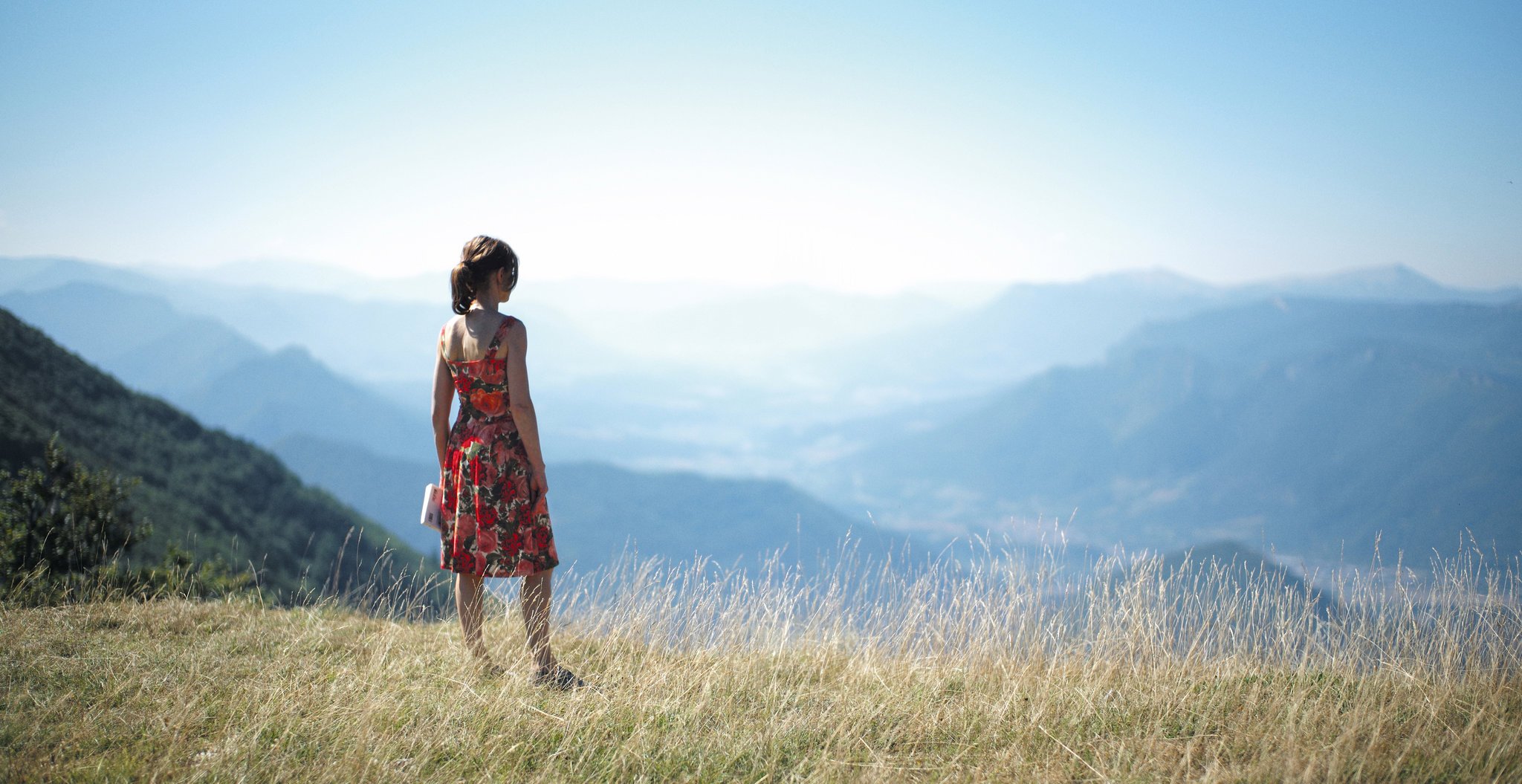
In Things to Come, life tests a philosophy professor on the very same subject she teaches. For Nathalie (Isabelle Huppert) — who has two grown-up children, a husband of 25 years, and a recurring publishing contract — the future isn’t something she gives much thought, because she assumes it’ll be more of the same. When her students protest against a law to raise the pension age, this middle-aged ex-anarchist can’t bring herself to engage with their apparently far-sighted cause; unlike them, all she can think about is the present. But then a series of events overturn her life as she knew it and she finds herself, at middle age, staring at a blank slate.
This is a movie about our surprising ability to deal with disaster — the instincts that emerge when we least expect them to. What’s more, it’s about the insistence of life to keep going no matter how difficult a period you’re experiencing — something that might initially seem cruel but that is, actually, your salvation. The film’s academic characters and philosophical preoccupations never feel esoteric, because Hansen-Løve’s gentle, intelligent filmmaking puts people at its center as it explores human resilience — not through stuffy theory, but an intimate study of someone coming to terms with a freedom she never asked for.
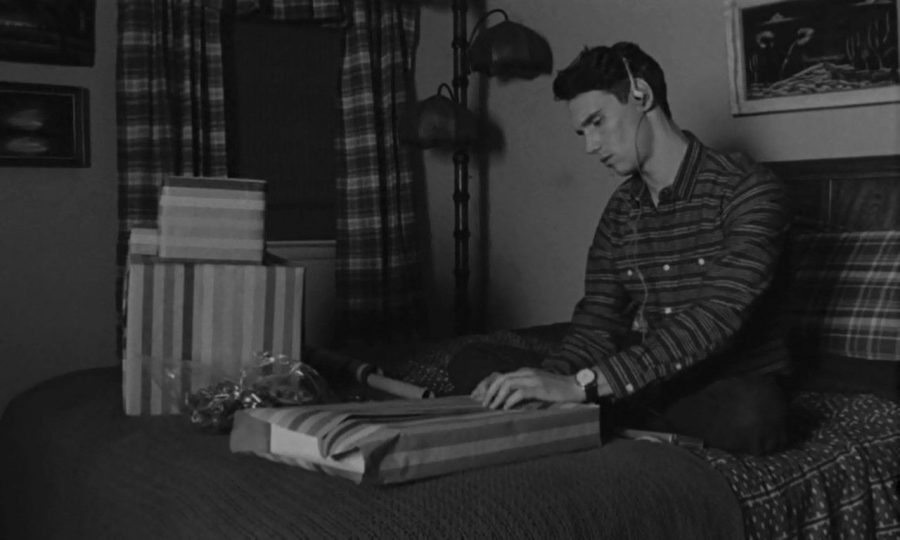
1985, a movie from 2018, was made like it was filmed during the year it’s about: it’s shot on gorgeous black-and-white Super 16mm film.
Not that it would be needed, but this minimalist setting puts a spotlight on the ensemble cast of this well-acted drama based on an award-winning short film.
In particular, the central one by Cory Michael Smith (Gotham, Camp X-Ray). He plays Adrian, a man visiting his conservative family in Texas from New York, so gently at times and explosively at others, it’s a sight to behold.
Adrian, estranged from his family for three years, visits them to find a way to tell them that he has AIDS.
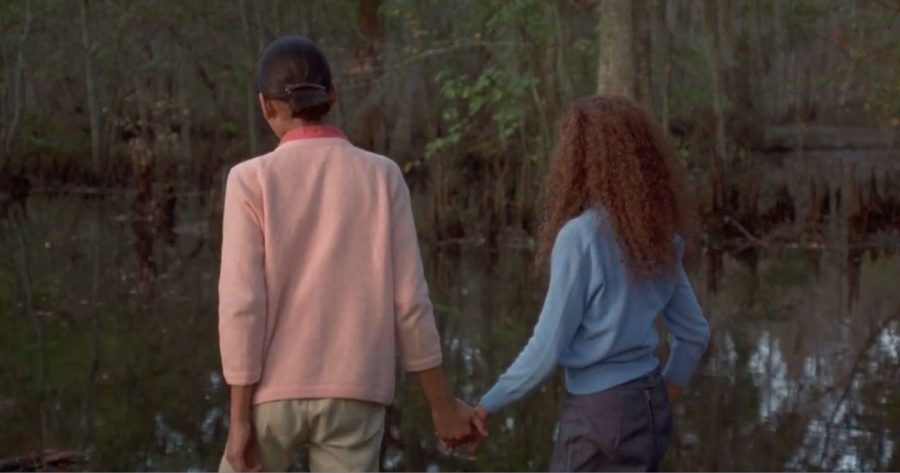
Eve’s Bayou is a Southern Gothic tale of spirituality, family, secrets, and the ties that bind them together. The story follows the awakening, both spiritual and emotional, of young Eve Baptiste. The middle sibling of the Baptiste family, 10-year-old Eve, navigates childhood while enduring the tumultuous relationship between her mother and father.
What lurks beneath a seemingly ordinary marital conflict is an insidious betrayal that could tear her entire family apart. Eve’s Bayou should be considered one of the greatest Black American epics of the past 25 years. I adore this film because it is unflinchingly real – and honest about the sometimes rocky reality of familial bonds.
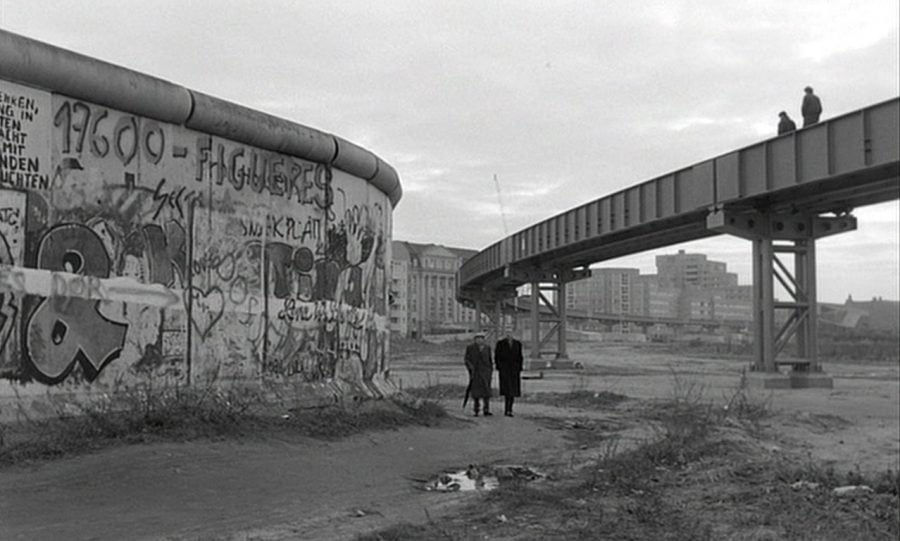
Two angels wander the streets of a monochrome Berlin, invisible to the colorful world that bustles around them. When one of them falls in love, he begins to question his place and yearns to give up immortality to join the ranks of the living. Wim Wender’s exceptional film is a poetic meditation on faith, cinema, and a mournful tour of a city in the grip of the Cold War.
Wings of Desire is bursting with poetry and heartbreaking humanism emphasized by the tender performances by Bruno Ganz, Otto Sander, and Peter Falk, while serving as a beautiful love letter to a city yearning for change. If you’ve only seen City of Angels, the loose American remake, then you owe it to yourself to experience the raw poetic power of the real deal.
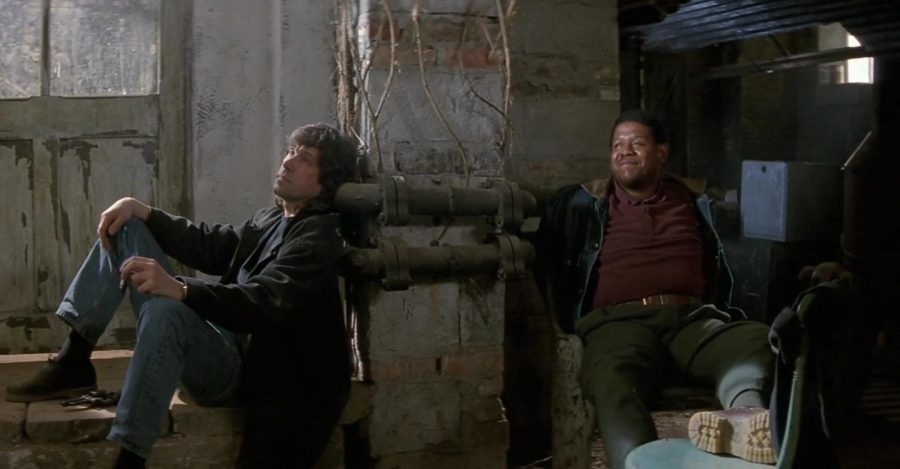
IRA terrorists kidnap a British soldier to negotiate an exchange for one of their own imprisoned members. Among them is Fergus (Stephen Rea), whose ambivalence is amplified by his interactions with the hostage soldier Jody (Forest Whitaker) while guarding him. After the terrorists’ plan goes awry, Fergus tracks down a woman Jody spoke of during his captivity, only to become confronted with even more complications.
The film, its cast and crew won a slew of awards and nominations in 1993, including the Academy award for Best Original Screenplay. It’s a knockout. Each act presents an increasingly challenging psychological and emotional conflict for Fergus: conflicts that require him to question the choices he makes and his beliefs, even about himself. It’s a dark but deeply touching thriller that is ultimately unforgettable.
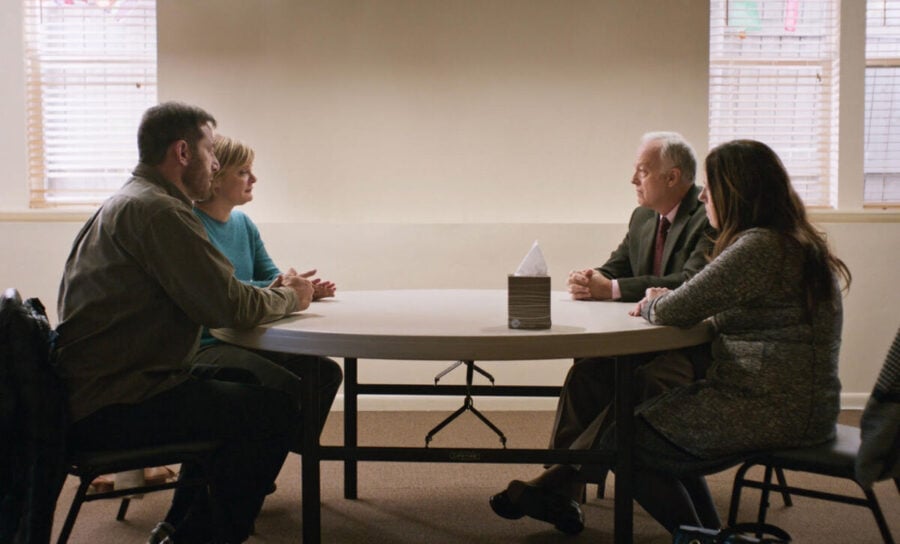
In the first few minutes of Mass, hushed tones, solemn movements, and awkwardly averted eyes hint at an unspoken tragedy that haunts everyone in the film. The four main characters discuss it during a sit-down, but even then it remains unspeakable; such is the dedication of first-time full-length director Fran Kranz in depicting the reality of tragic events. Not much is done in the way of plot twists and shocks, but in place of those, Mass makes clever use of close-up shots and unmoving settings to portray the privacy and paralysis of grief. For this reason, Mass often feels like a masterful play brought to life, but also more than that, a brilliant portrait of healing—or at the very least, coping with the everlasting aftermath of loss.
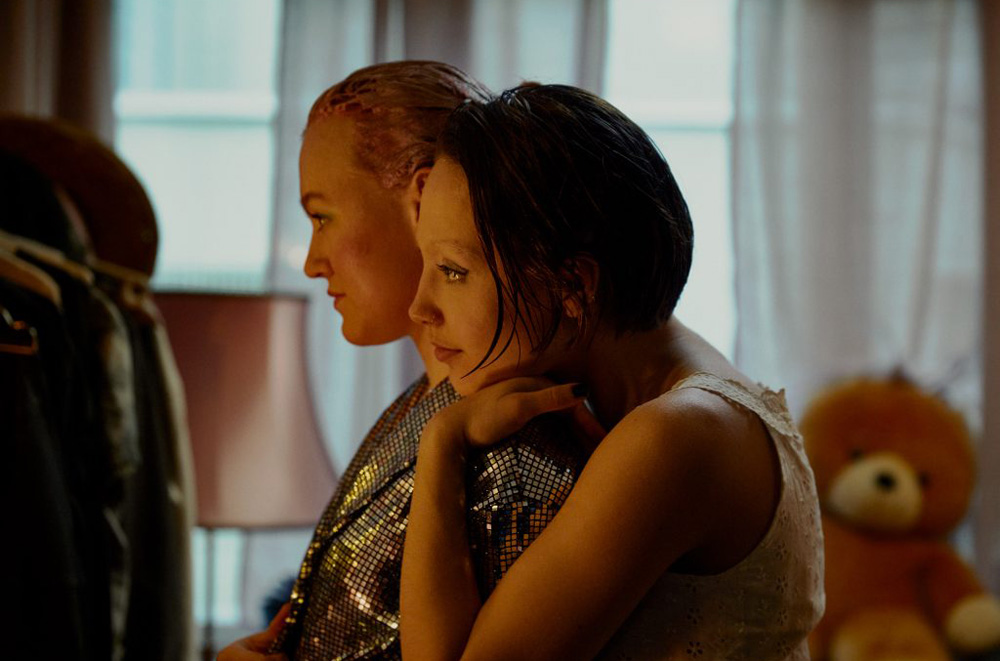
Understandably, Mimmi, Rönkkö, and Emma, the teenage girls who lead this Finnish coming-of-age drama, are bursting with emotional urgency. On the cusp of adulthood, they plunge into house parties and romantic affairs in the hope that exploring love, sex, and adventure leads them closer to being self-aware adults.
Of course, that’s a lifelong process, but they don’t need to know that just yet. For now, they’re explosive and ecstatic and awkward and angry. They’re at a point in their lives where falling head over heels is still an endearingly fresh experience and not a frustratingly repeated mistake.
The film is intense in this way, but it’s leavened by a beautiful naturalism that’s seen in the young cast’s performances, the setting’s soft lighting, and the camera’s boxy ratio and grainy finish, the latter of which recall a disposable camera capturing the indiscriminate moments shared between teens. Girl Picture is an intimate and authentic portrait of girlhood—see it if you can.
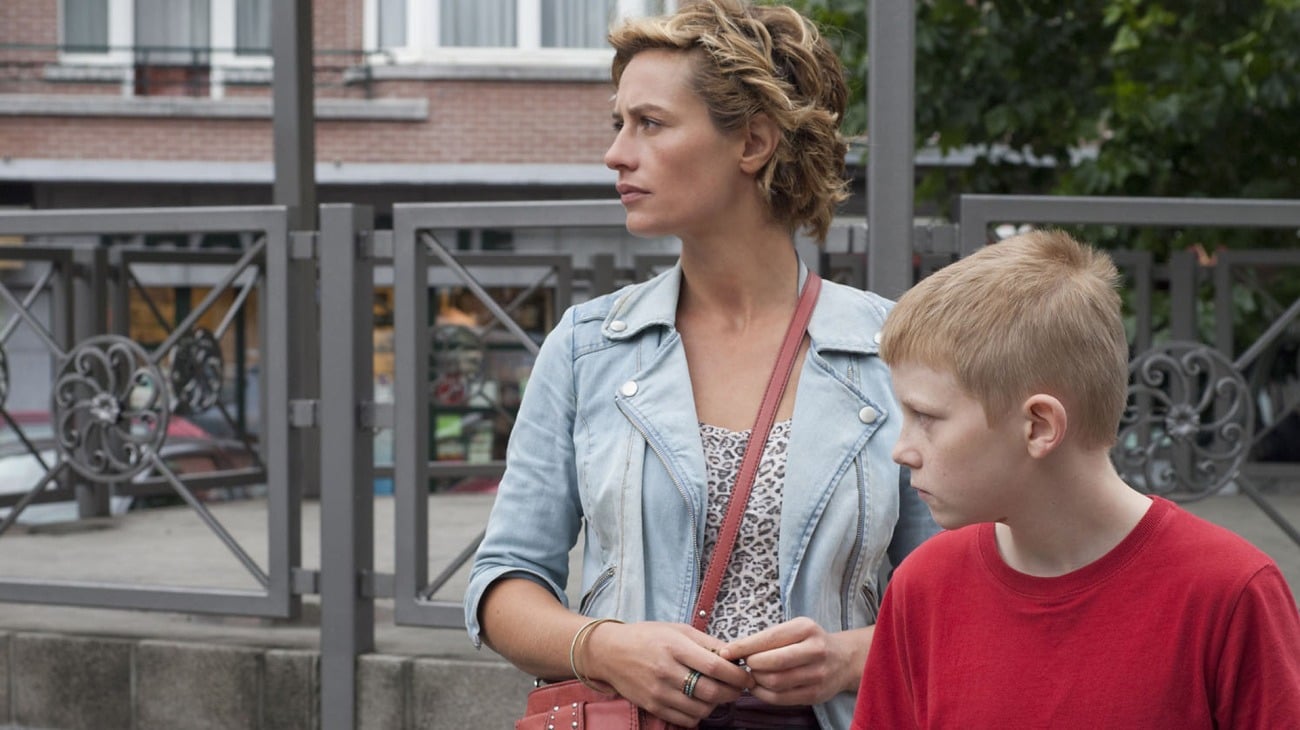
The Kid With A Bike is a deceptively simple title for a film this stirring. At 12 years old, Cyril (Thomas Doret) has been abandoned to social care by his father (Jérémie Renier) — but what’s really heart-wrenching is that he’s in denial about the finality of their separation. Cyril’s muscles are seemingly always coiled, ready to spring him away from his carers and onto the next bus that’ll take him to his disinterested dad, who has secretly moved away to “start anew.” It’s only through the random force of Cyril’s few words — like the moment he asks the first stranger to show him some kindness (Samantha, played by Cécile de France) if she’ll foster him on the weekends — that we get to sense the depth of his desperation, because neither the film nor Doret is showy in that regard.
The film pulls off transcendency because of these restrained performances and its unfussy realism. In the quietness of the storytelling, emotion hits unexpectedly — and deeply. The everyday tragedy and miraculous hope of Cyril’s life are set off by some enormously moving orchestral Beethoven, the very grandeur of which underscores the effect of the humanist filmmaking: affirming the inherent preciousness of his troubled, oft-rejected child.
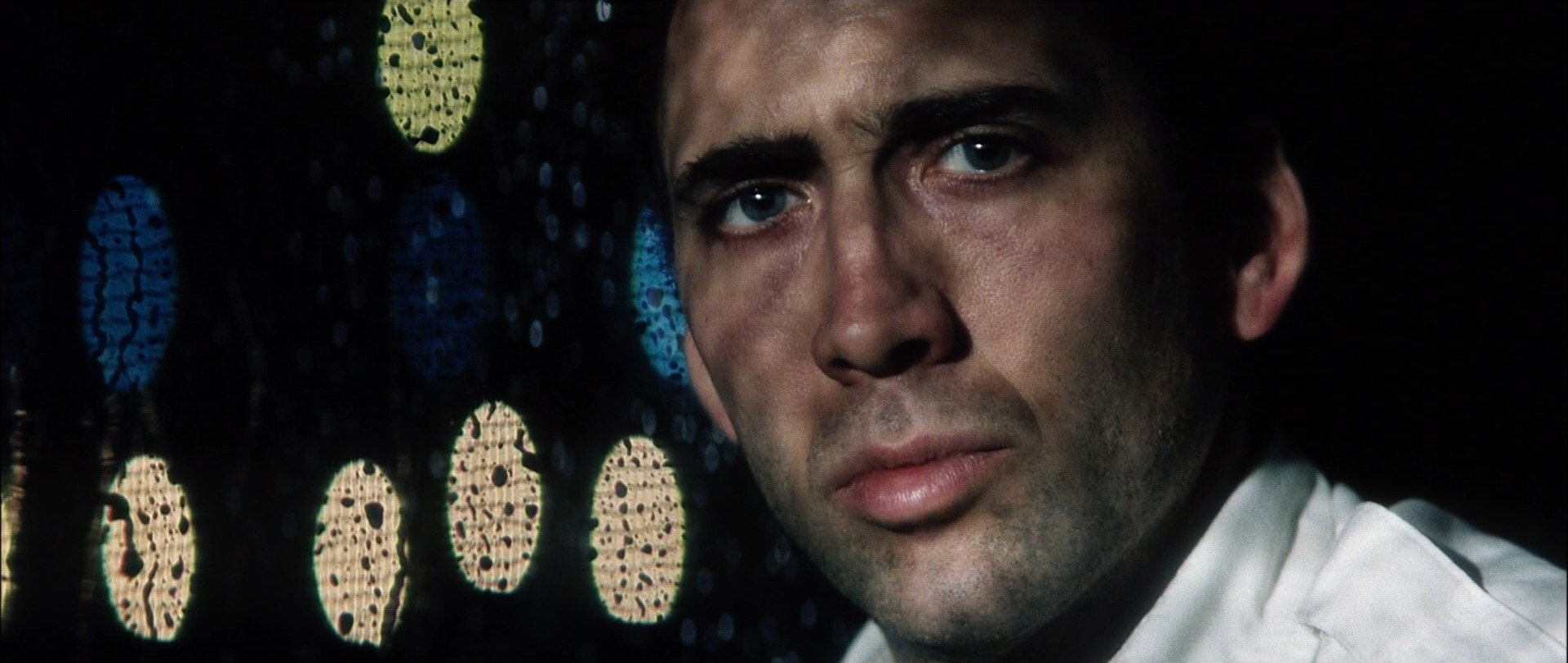
Martin Scorsese — plus screenwriter Paul Schrader, editor Thelma Schoonmaker, and cinematographer Robert Richardson — reimagine nocturnal New York City as an eternally flaming circle of hell in this darkly funny fever dream. Frank Pierce (Nicolas Cage) is an insomniac paramedic who’s haunted by the ghosts of all the lives he couldn’t save and is on a nightmarish run of losing every patient he tries to help. There’s no respite for him anywhere; he’s so burnt out he begs to be fired, but the city is so desperate they won’t let him leave their tired ranks of medics, who are mostly jaded, sometimes sadistic, and yet still addicted to the euphoric high of saving a life.
As Frank is pushed ever closer to breaking point, the film takes on the hallucinatory qualities of his perspective, the cinematography growing feverish and the editing powered by a wild, manic energy. What stops the movie from feeling like a spiral into actual hell is the strange light that keeps Frank returning to work — the perpetual need for redemption and grace that prevents him from becoming cold to his job but makes his sanity fragile. In typical Scorsese-Schrader style, this is a raw, visceral, and very human search for grace in an unsparing urban hellscape.
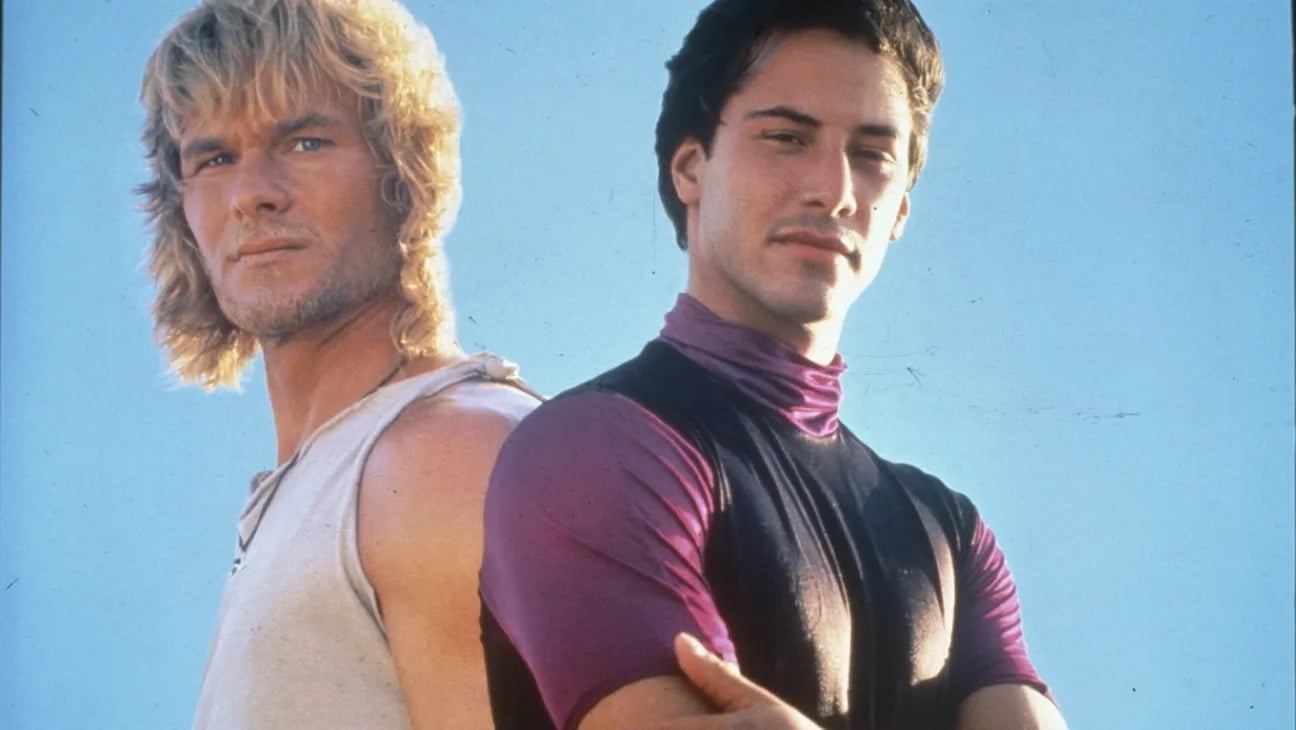
Kathryn Bigelow has a knack for action-packed scenes without compromising on the affective qualities of film style. It is precisely this combination that makes her a rare gem in American cinema, where the values of entertainment soar high. Point Break is one such example of controlled chaos, impeccable framing, and a convincing use of fast-paced editing to really get you as close to the action as possible. But what gives the film its flavour is how developed and synced the characters are and the Reeves-Swayze duo here belongs in the pantheon of equally hot frenemies, providing an apt, but subtle comment on the dangers of toxic masculinity.

Here’s a biopic that focuses on capturing the feel of the era it depicts, rather than all the facts — and is all the better for it. 24 Hour Party People takes the same punk approach to storytelling as its subjects did to music, playfully throwing off the dull constraints that often make based-on-a-true-story movies feel like uninspired celluloid translations of a Wikipedia page.
In the film’s opening scene, Steve Coogan’s Tony Wilson breaks the fourth wall to address us directly and semi-spoil the movie’s ending. But it doesn’t matter, because the ride is so fun: we’re taken on an immersive trip through the heyday of the Manchester music scene: the births of Joy Division, New Order, the Happy Mondays, and Wilson’s Factory Records label and legendary Hacienda nightclub, an incubator for acid house and rave culture. The era’s hedonism is brought to life by the movie’s frenetic editing, documentary-style cinematography, and strobe-heavy visuals. For all its onscreen anarchy, though, the movie remarkably never feels loose or self-indulgent. Its irreverence is grounded by the ironic filter of the meta filmmaking, which frequently breaks the fourth wall to draw attention to its own conceits. A refreshing rejection of biopic tropes, but also a thrilling transportation into and evocation of the Madchester era.
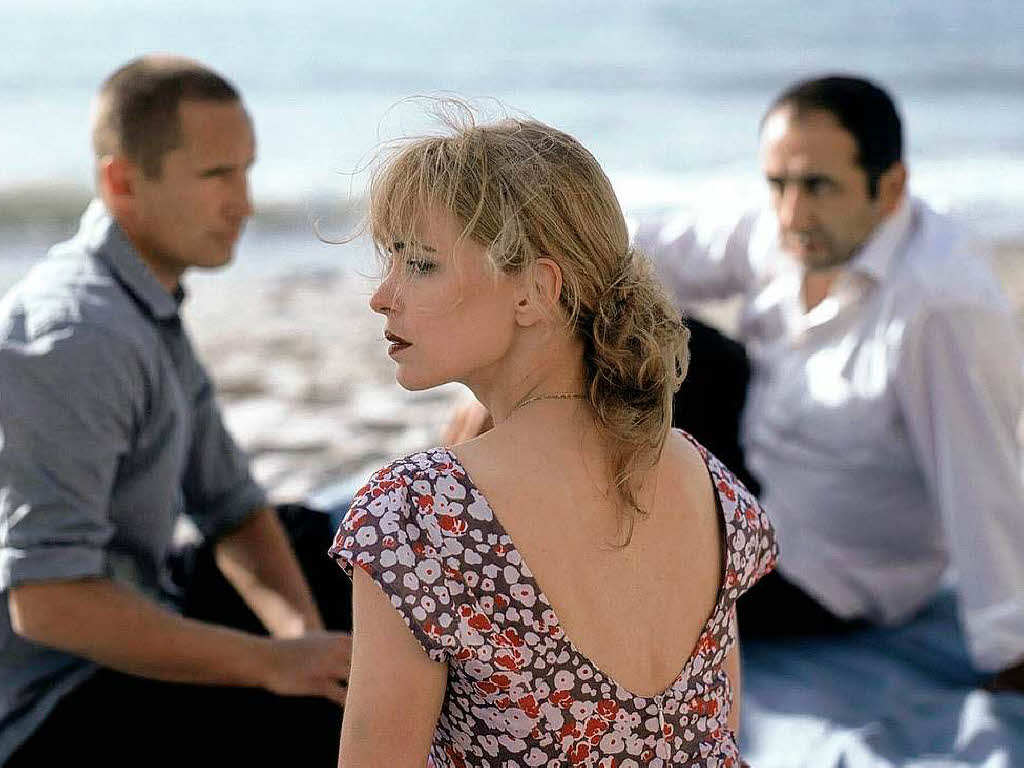
German writer-director Christian Petzold tells a story of a fateful encounter trapped in a love triangle. Thomas, Laura, and her husband Ali quickly become enmeshed in a three-way relationship rich with desire, pressure, and betrayal. Another Hitchcockian tribute by Petzold, Jerichow has all the elements of a neo-noir, but it’s set in broad daylight. The plotting, the secret love affairs, the femme fatale with no back up plan: all the necessary ingredients for a chaotic tale, wrangled by desirous tensions, to say the least. A film whose mystique is rather haunting, but far from spectral, Jerichow doesn’t conceal its clear references to “The Postman Always Rings Twice”.
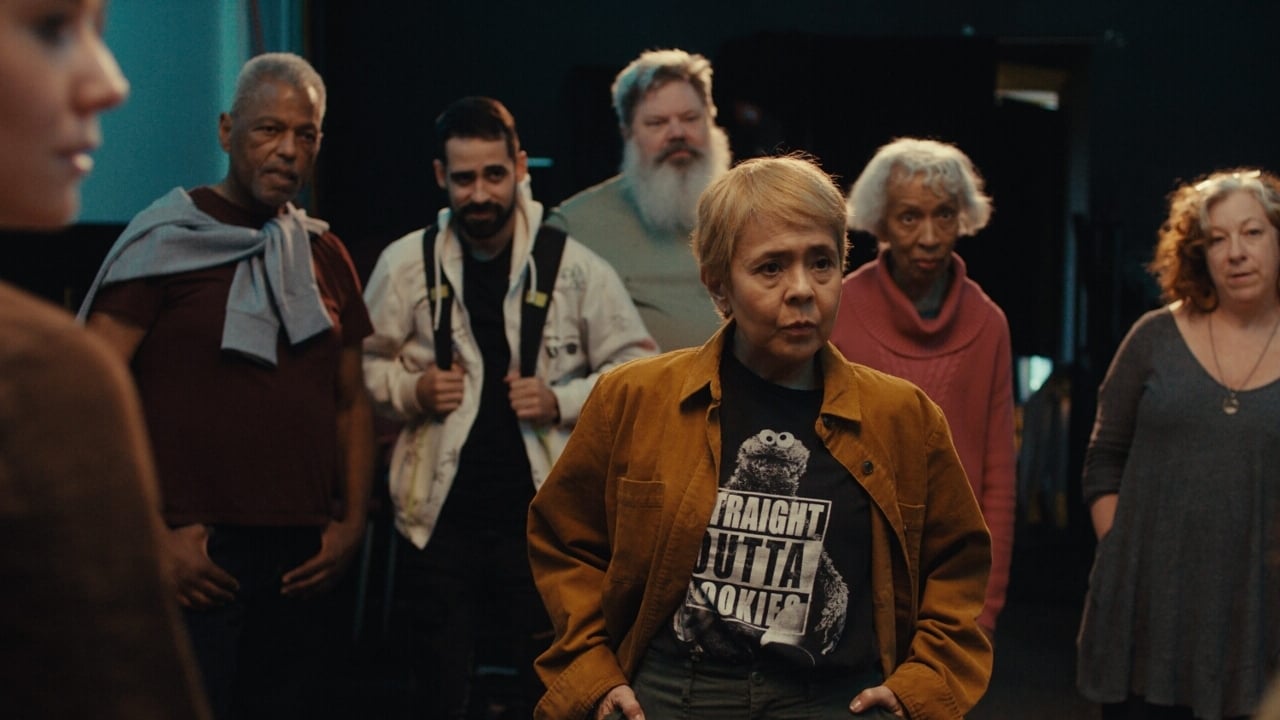
“The healing power of art” sounds cheesy, but it’s a statement made beautiful and true in Ghostlight. It’s the sensitively told and wonderfully performed story of an ordinary man who, up until this point, doesn’t even know how Romeo and Juliet ends. That’s how detached he is from art. But when Rita (Dolly de Leon) pushes him into the arena, he surprises himself and his family by being receptive to it. It’s the only way he can get in touch with his feelings, which is vital since he’s gone through an unspeakable loss recently. What that loss is isn’t immediately revealed in the film, but the small details snowball and eventually pummel you to the ground with its sheer tragedy. You’re either grinning or crying watching this, there’s no in-between. But if there were, you’d probably be marveling at the trio at the heart of this film: the family played by a real-life family. Keith Kupferer, who plays Dan, Tara Mallen, who plays Sharon, and Katherine Mallen Kupferer, who plays their daughter Daisy, are all compelling and dazzling in their own ways.
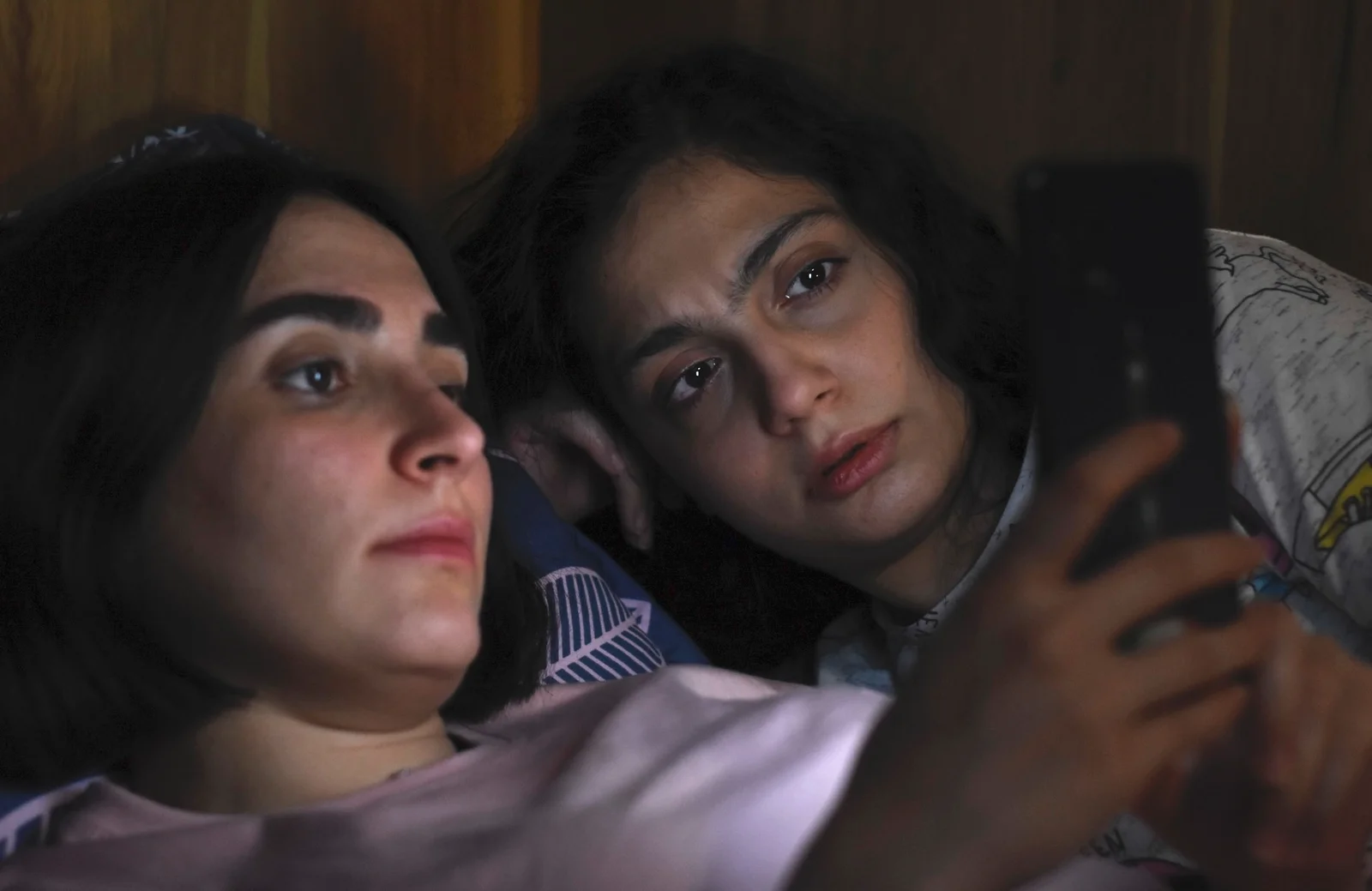
The Seed of the Sacred Fig bravely takes on the increasingly violent patriarchy and theocracy in modern-day Iran. It follows a family of four—Iman, Najmeh (Soheila Golestani), Rezvan (Mahsa Rostami), and Sana (Setareh Maleki)—and reveals how the political can creep into the personal. Iman, the father, has just been promoted at work (he’s one step closer to being a judge), while his two daughters are budding revolutionaries. The educated girls see through the lies of state television and challenge their conservative parents’ ideas on government and religion. It sounds straightforward, but director Mohammad Rasoulof lets everything unfold subtly and sharply. By the second half, the film transforms into a slow-burn thriller as the family home becomes a microcosm of Iran itself. It’s a brave film helmed by even braver people. Rasoulof and his cast, who filmed in secret to avoid the film ban in Iran, had to escape to Europe after they were interrogated and sentenced in their home country. The Seed of the Sacred Fig can’t encapsulate the entirety of Iran’s troubles, nor does it try, but it’s a good place to start.
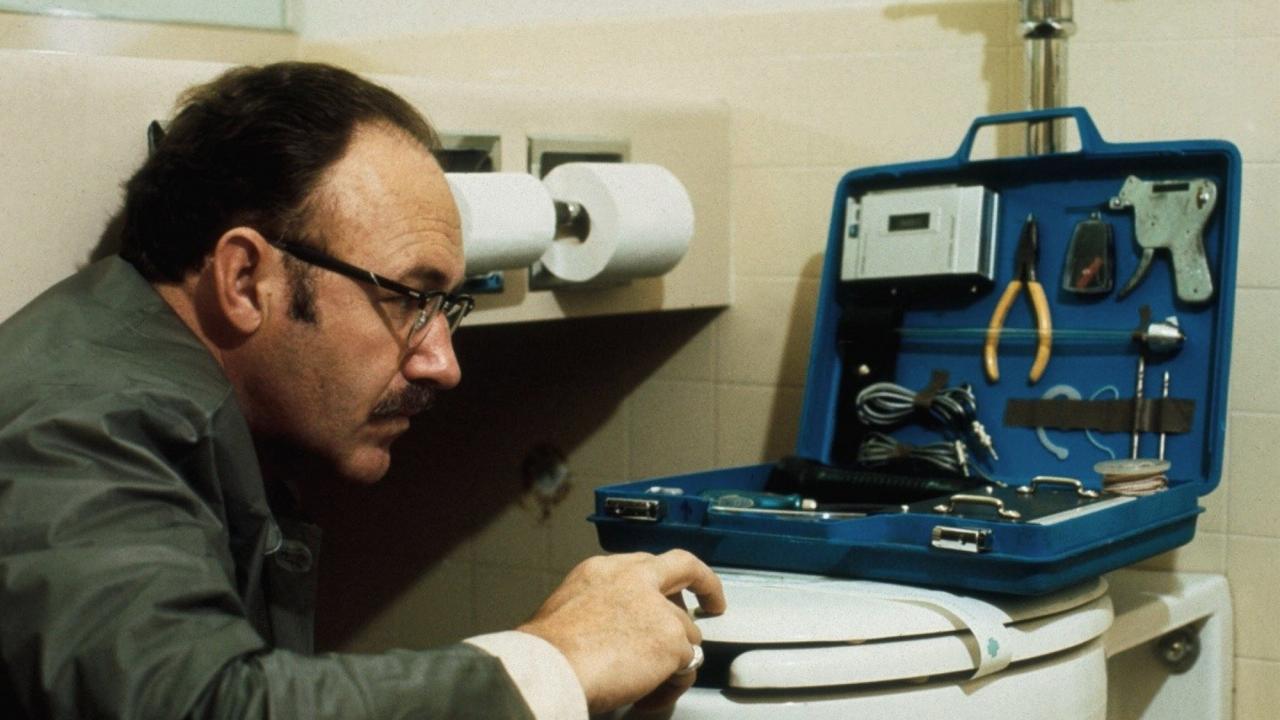
Released in between Francis Ford Coppola’s famed Godfather trilogy, The Conversation is the director’s undersung gem of a film. It follows surveillance agent Harry (Hackman) as he obsesses over a conversation he’s asked to record. Hyperaware of how privacy is rendered useless by people like him, he starts to get overly suspicious about everything and everyone. A birthday card is greeted with hostility instead of warmth. A lover interested in his inner life is seen as a threat to his guarded persona. Paranoia eats at him from the inside, and yet he loves what he does. He’s great at it after all. The Conversation poses a moral question—should Harry interfere and save someone he thinks might be in danger?—but it works best as a thriller. The pacing is slow then sudden; the climax crashes onto you with a severity that will make you hit pause. Crucial to all this is the impeccable score and editing, both by Walter Murch. Fewer films than this have been able to make those two aspects stand out. The ending is also one of the most memorable in recent cinema.
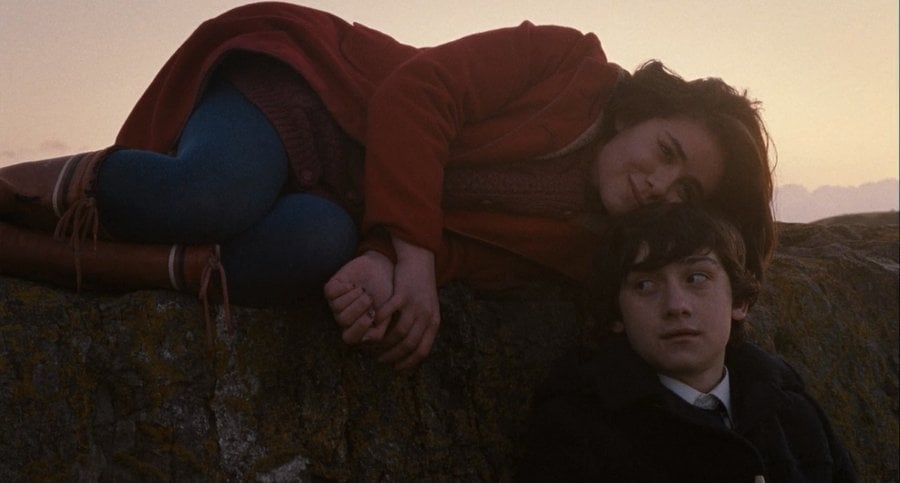
Awkward. That is how Oliver Tate can be described, and generally the whole movie. But it is professionally and scrutinizingly awkward. Submarine is a realistic teen comedy, one that makes sense and in which not everyone looks gorgeous and pretends to have a tough time. It is hilarious and sad, dark and touching. It is awesome and it’s embarrassing, and it’s the kind of movie that gets nearly everything about being a teen right, no matter where you grew up.

A thoughtful drama about the financial crisis, Margin Call is gripping. Seriously, even something as convoluted as the 2008 global economic meltdown is not only accessible and understandable, but it’s gripping. Margin Call transports you to the heart of Wall Street, both the financial institutions and the street, literally. It is exciting, well-acted and informative. Uh, also: Kevin Spacey.
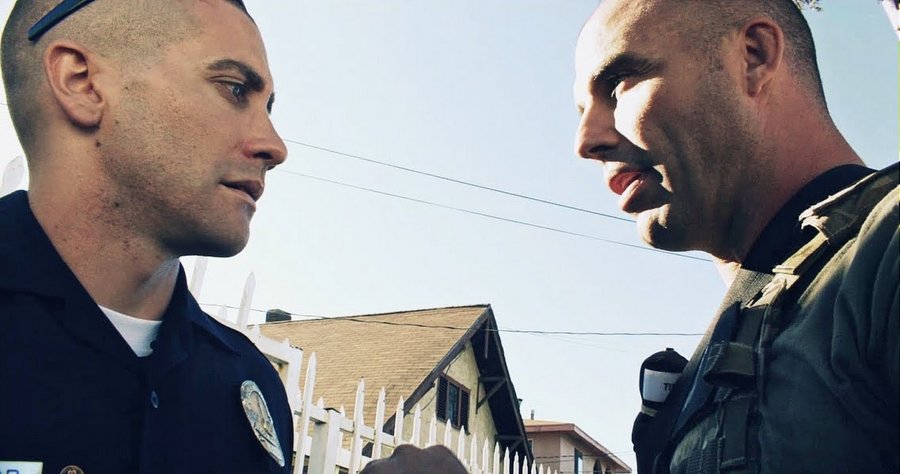
First off you have to remember it is the same writer as Training Day. Then you have to believe that he must have gone to a joint training camp between the Taliban and Mexican Cartels or something since Training Day to come up with such a tense, unpredictable script. But End of Watch is more than that. It is warm and sweet (yes), and a great showcase of Gyllenhaal and Pena’s talents — which thanks to a documentary-style cinematography, and the actors’ 5-month immersion program with actual LA cops, make for a very authentic, rich, and overall exciting film.
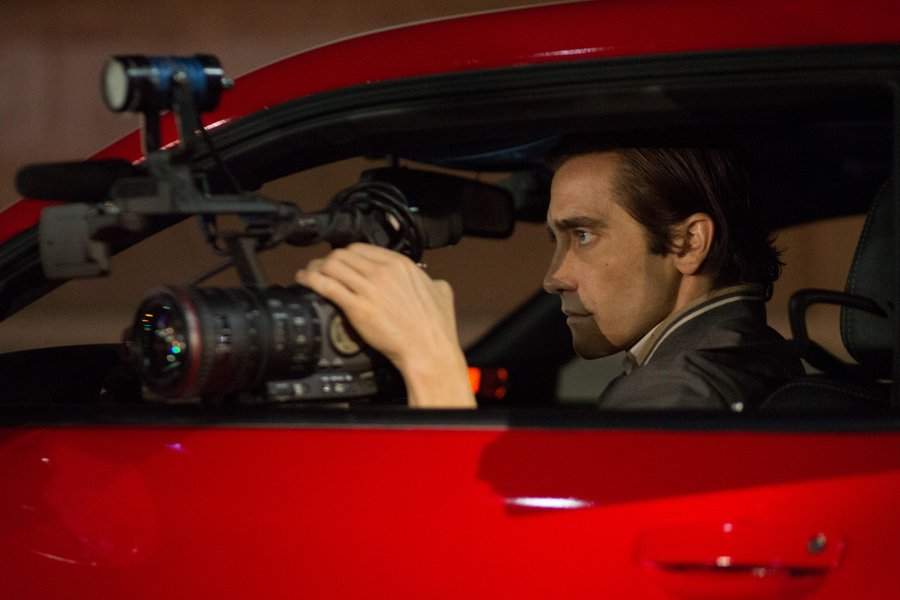
The film stars Jake Gyllenhaal as Lou Bloom, an impromptu freelance videographer who begins covering the crime world in LA for a local TV station. Almost as dark as a mystery can get, it is disturbing, and plays out as a combination of “Drive” and “The Network”. The film is visually stunning as well as immensely suspenseful. It then becomes almost impossible to look away, even when you’re the most horrified by just how far Bloom is willing to go to reach success. Gyllenhaal’s performance is widely compared to that of Robert De Niro in Taxi Driver, which should give you an idea of its caliber.
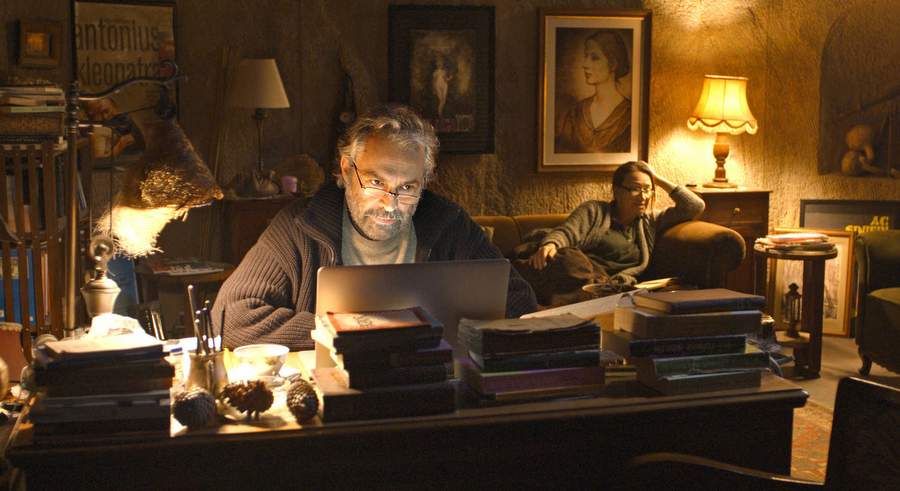
An absolutely beautiful film about superficiality, arrogance, and heartbreak. It focuses on the life of Aydin, a retired actor who now lives very comfortably managing a small hotel and a number of other small properties. Throughout the film Aydin’s image shifts as he tackles the problems of his rather typical life. Having said this, there is nothing else typical about this film. It captures human relationships with an almost frightening precision. It almost feels as though you have an inside view into someone’s actual life as Aydin battles it out with his sister Necla and his young wife Nihal. To me this is easily one of the best dramas of the decade, and if you so much as like movies that focus on humans and their interactions, it will be that for you too. Nuri Bilge Ceylan will make 3 hours pass more quickly than they ever have before.
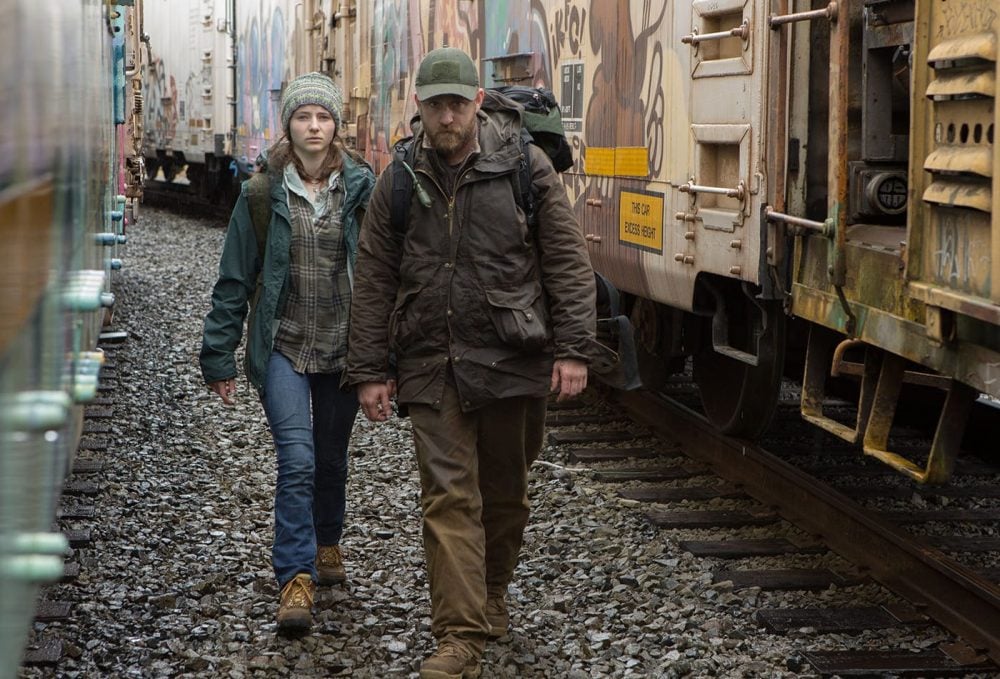
Leave No Trace is the amazing new movie from the director of Winter’s Bone, Debra Granik. It’s the story of a father and his daughter who live completely off the grid in a national park in Portland, and their quiet quest to not be separated and remain off the grid. It’s not the sensational, tear-jerker story that you’d expect something with this premise to be. Rather, and like Winter’s Bone, it chooses a humane and realistic approach to the subject matter. The decision to live outside society is almost irrelevant to this movie. More so, its inevitability for certain people with certain mindsets is what is interesting. A stunningly quiet movie, really well-acted too.
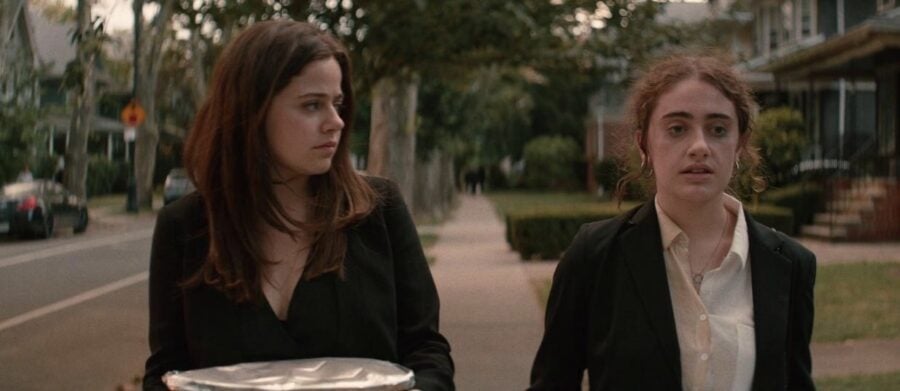
A young bisexual woman attends a shiva, caught between her parents and their expectations, her ex, and her sugar daddy. Rachel Sennott’s Danielle is yet to find her path in life and everyone is determined to remind her of that. Taking place almost entirely in real-time, the film’s sharp wit is contrasted with constant anxiety, complemented by Ariel Marx’s horror-like score, full of discordant pizzicato that sounds like every last bit of sanity snapping.
It’s a sex-positive take on 20-something life, treating bisexuality as wholly unremarkable and passing no judgment on Danielle’s sugar daddy income. Its specificities about Jewish customs and traditions are non-exclusionary, while its social claustrophobia is achingly universal. It’s comforting in the way it portrays the social horrors we all face, the feeling that everyone but you has life figured out, and that – ultimately – those who matter will pull through, eventually. One of 2021’s best.
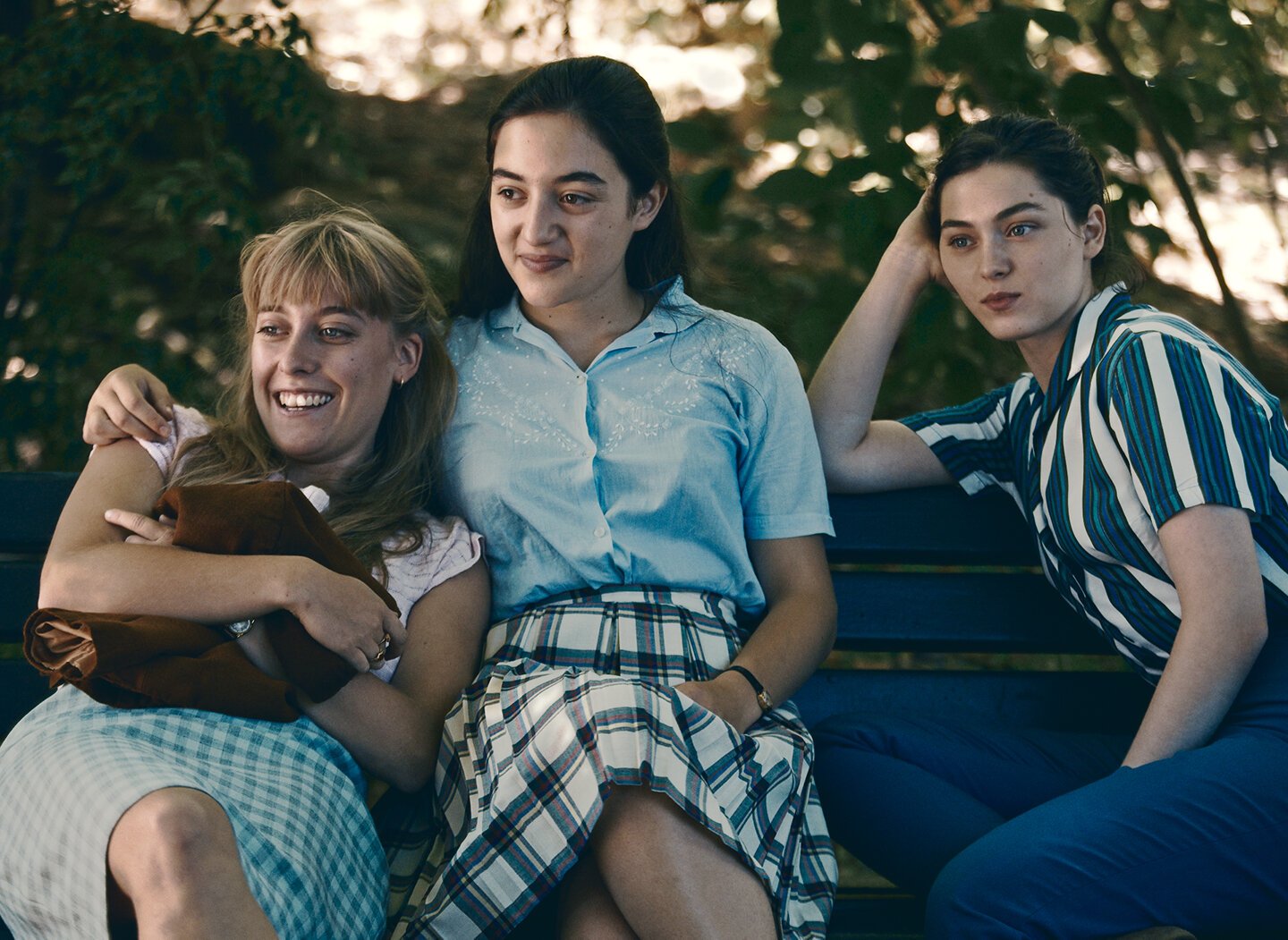
It’s heartbreaking to realize that Happening, a film set in 1960s France tracking a young woman’s journey to dangerously and desperately terminating her pregnancy, is still very much relevant and relatable to this day. Around the world, abortion is still inaccessible, if not completely illegal, and women still struggle to lay full claim to their bodies. A lot of girls grow up with pregnancy statistics meant to instill fear, but Happening brings all that to brilliant life in intimate and unrestrained detail. The fears and wants of our protagonist Anne (played precisely by Anamaria Vartolomei) are palpable throughout. Nothing is held back in this film, and if you find yourself sick in parts, then it has achieved its goal of realistically conveying what it’s like to stay alive in a society that fails to recognize your needs.
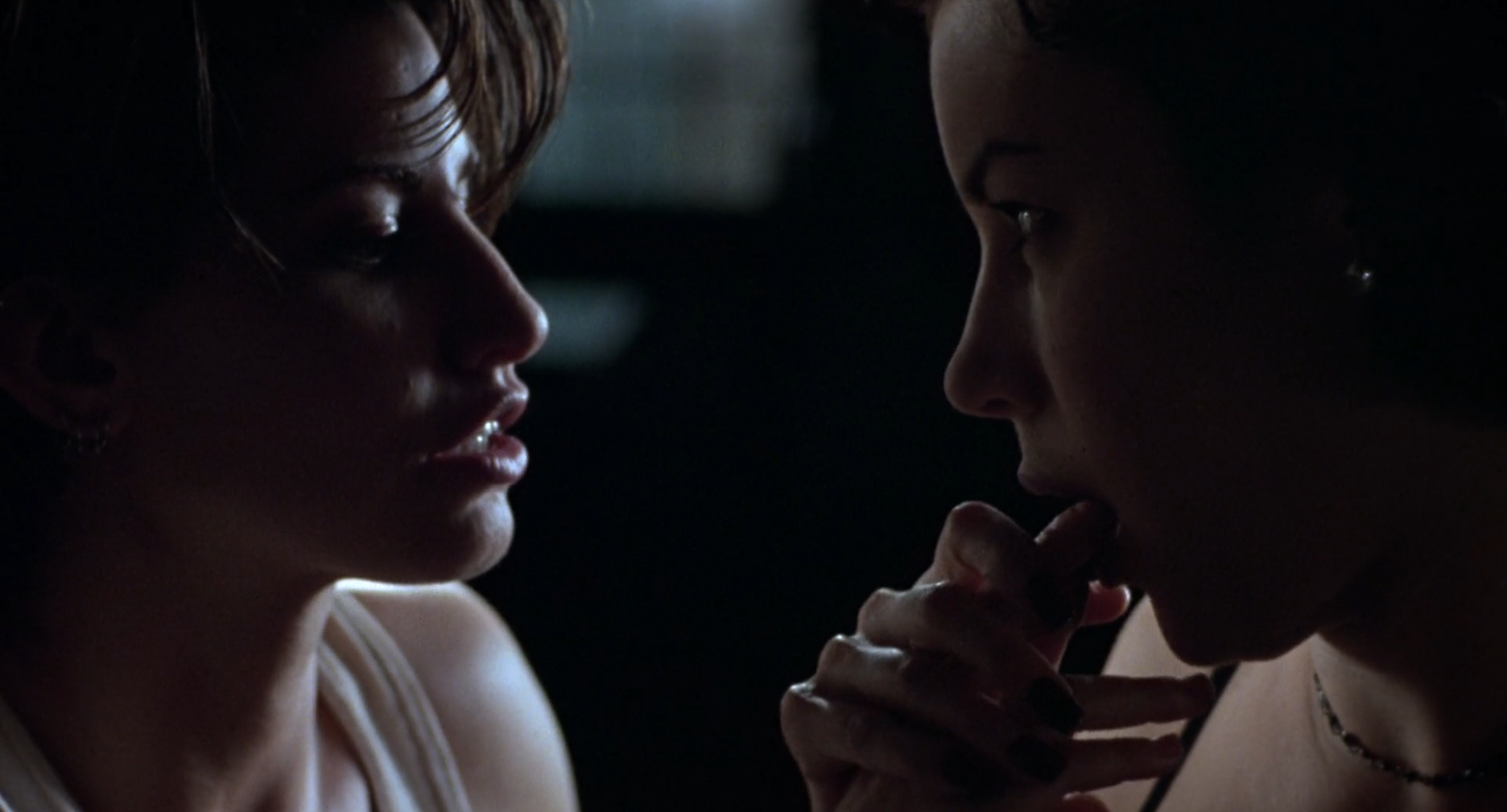
Three years before the Wachowskis released The Matrix, their debut, Bound, was already one of the most visually stunning crime thrillers of the 1990s. If you look at the film as a straightforward genre piece, it’s as thrilling as the best of the genre: vulnerable heroines, suspenseful sequences taking place mostly in one enclosed location, and a plot driven by mind games and careful manipulation. Every scene is marked by one breathtaking image after another, from the atmospheric use of lighting and color to intelligently placed cuts linking the two protagonists together no matter how much they’ve been kept apart.
But Bound only takes on more meaning when you look at it through the queer and trans perspective that the Wachowskis undoubtedly placed over the film years and years before their own coming out. By focusing on how Violet and Corky (a captivating Jennifer Tilly, and a sensual Gina Gershon, respectively) use their femininity and their gender as tools to break free from these patriarchal gangster narratives, Bound becomes a timeless expression of queer yearning and freedom.
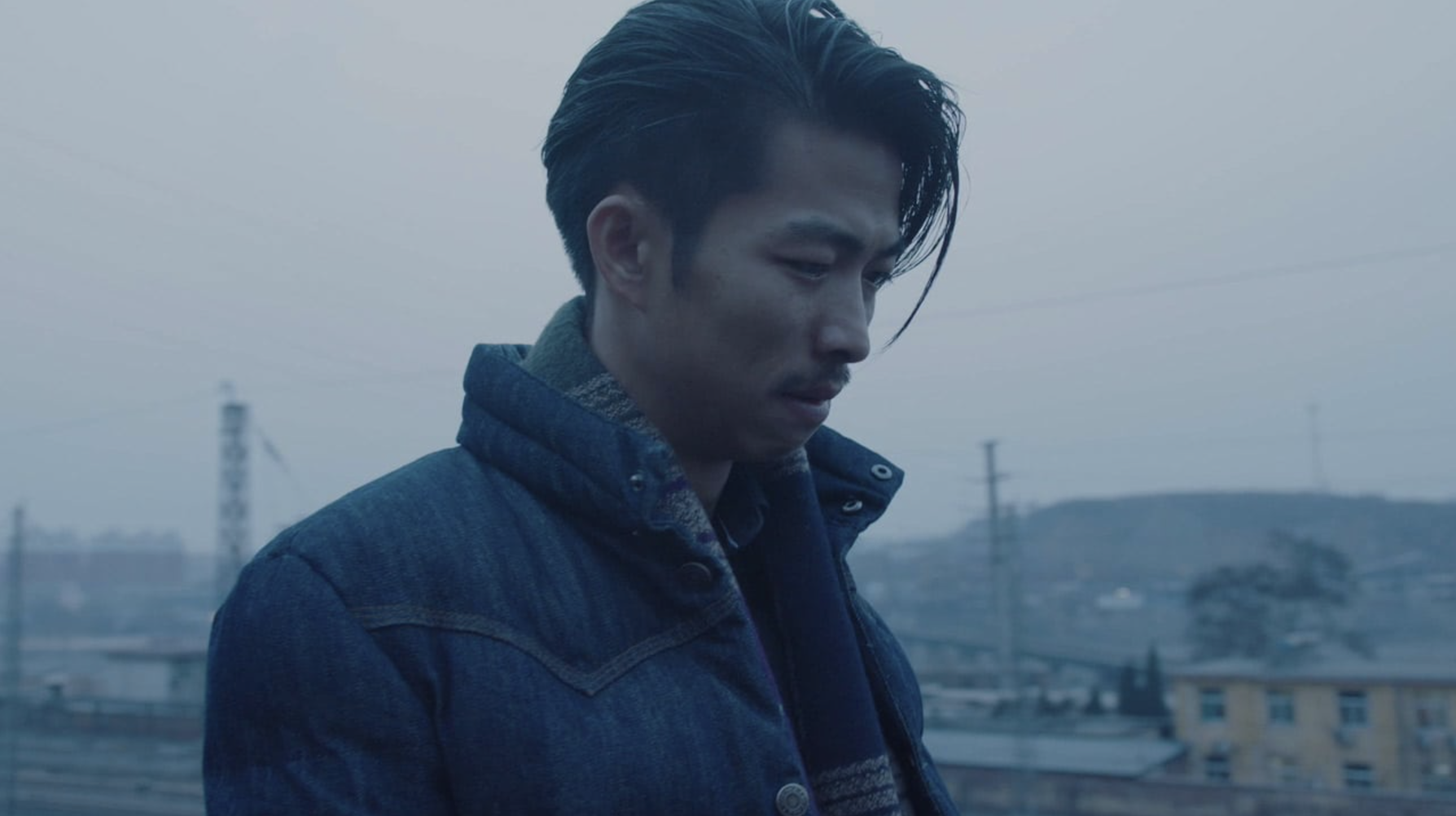
Clocking in at just under four hours, Hu Bo’s first and last feature film—before his tragic death at the age of 29—is a sprawling indictment of a country that the filmmaker must have viewed as positively hostile and suffocating. Following several characters whose paths intersect as they try to escape their current circumstances, An Elephant Sitting Still creates a truly oppressive atmosphere that may not lead you to the answers you expect, but it should leave you feeling haunted for a long, long time. Beautifully scored, shot, and acted, Hu’s film offers practically no hope but it keeps on moving with a sense of freedom and determination all its own. This is as honest a film can get; Hu has left behind a moving legacy.
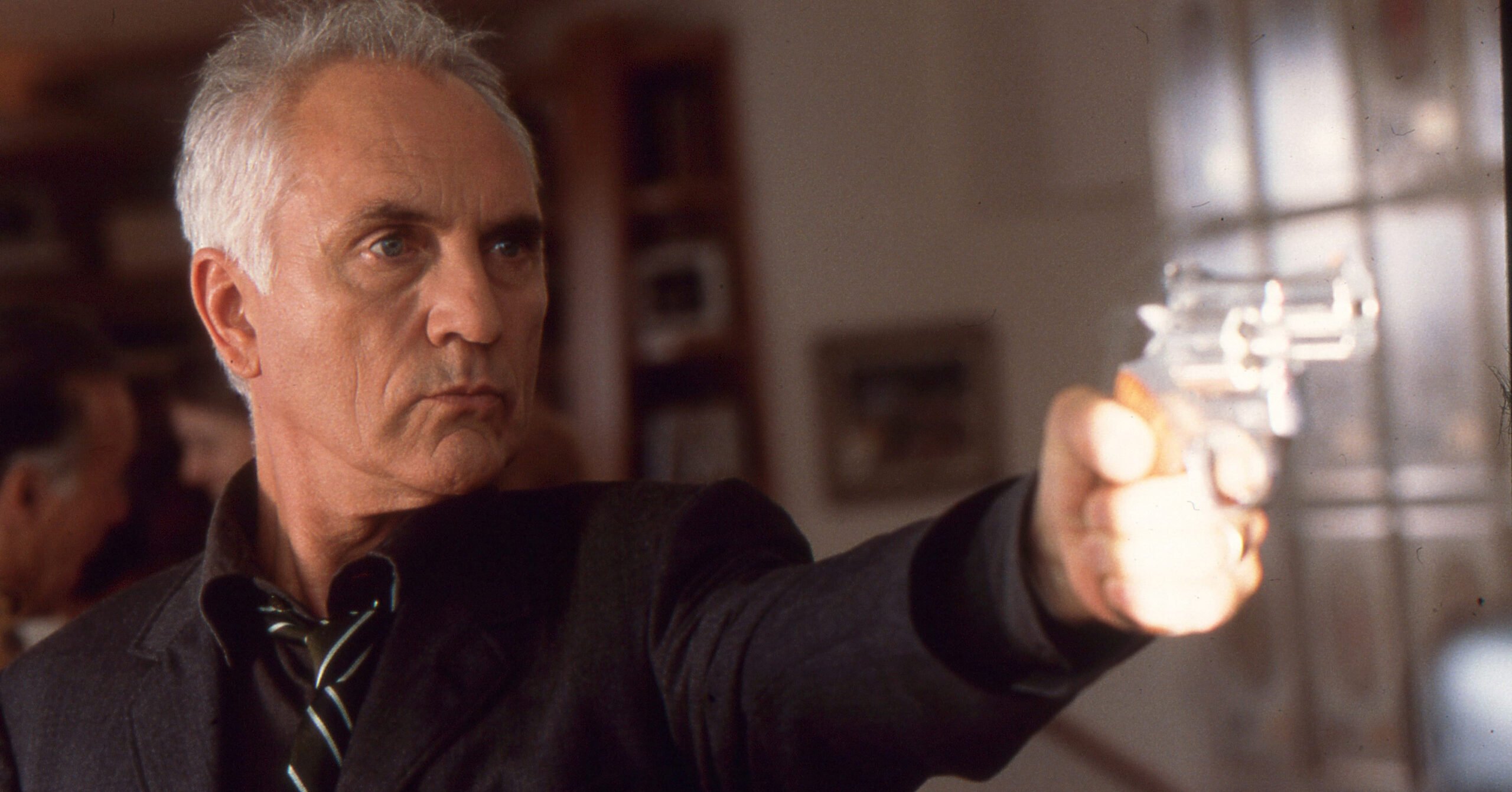
The bare bones of The Limey’s story — vengeful Cockney ex-con Wilson (Terence Stamp) flies to LA to investigate the suspicious death of his daughter Jenny — are gripping enough, but what Steven Soderbergh does with them elevates this neo-noir thriller into something utterly singular and stacked with layers upon layers of meaning. An icon of London’s Swinging ‘60s scene, Stamp is pitted against laidback symbol of ‘60s American counterculture Peter Fonda (as Jenny’s sleazy older boyfriend), giving their face-off grander cultural stakes. The extra-textual significance of the casting is deepened by Soderbergh’s ingenious references to the actors’ heyday: in flashbacks to Wilson’s happier past, for example, we’re shown the actual Stamp in his younger years (courtesy of scenes borrowed from 1967’s Poor Cow).
The Limey is also a brilliant showcase for editor Sarah Flack’s technical inventiveness: though the narrative is largely linear, the film cuts to and from scenes and sounds at unexpected points, giving the film an almost David Lynch-like sense of eerie fragmentation. Conjuring up a nightmare LA atmosphere isn’t all the editing does, either, as the film’s puzzle pieces are expertly reassembled to reveal an emotional gut-punch of an ending. In short, this high point in Soderbergh’s filmography is a must-see for any fan of cinema.
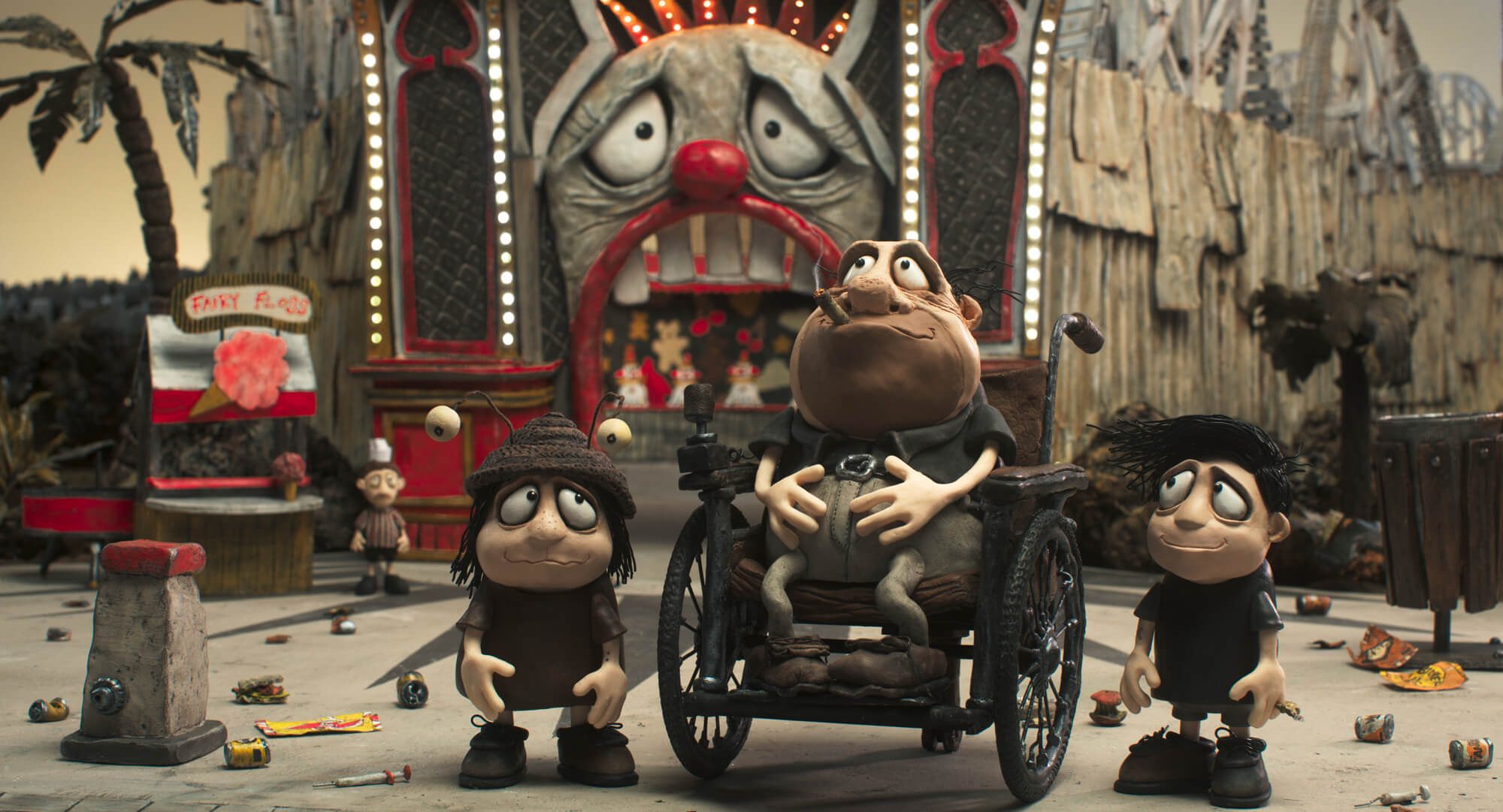
The worst possible things that could happen, happen to orphaned twins Gracie and Gilbert but still they power on, motivated solely by the hope of being reunited once more. It’s a sweet premise, young siblings on opposite ends of the country encouraging one another with heartfelt letters. And with the soft-spoken Gracie (Snook) narrating the whole thing, it’s easy to be lulled into a sense of ease and comfort. But those familiar with director Adam Elliot’s work know that it’s never that simple. The film is as dark and edgy as it is sentimental and hopeful. It’s a complex piece of work, one that asks: is life worth living? After all the hardships, misfortune, depravity, and brutality, must we go on? You probably know what answer the movie will give you, but how it gets there is a heart-shattering journey that’s worth taking nonetheless.
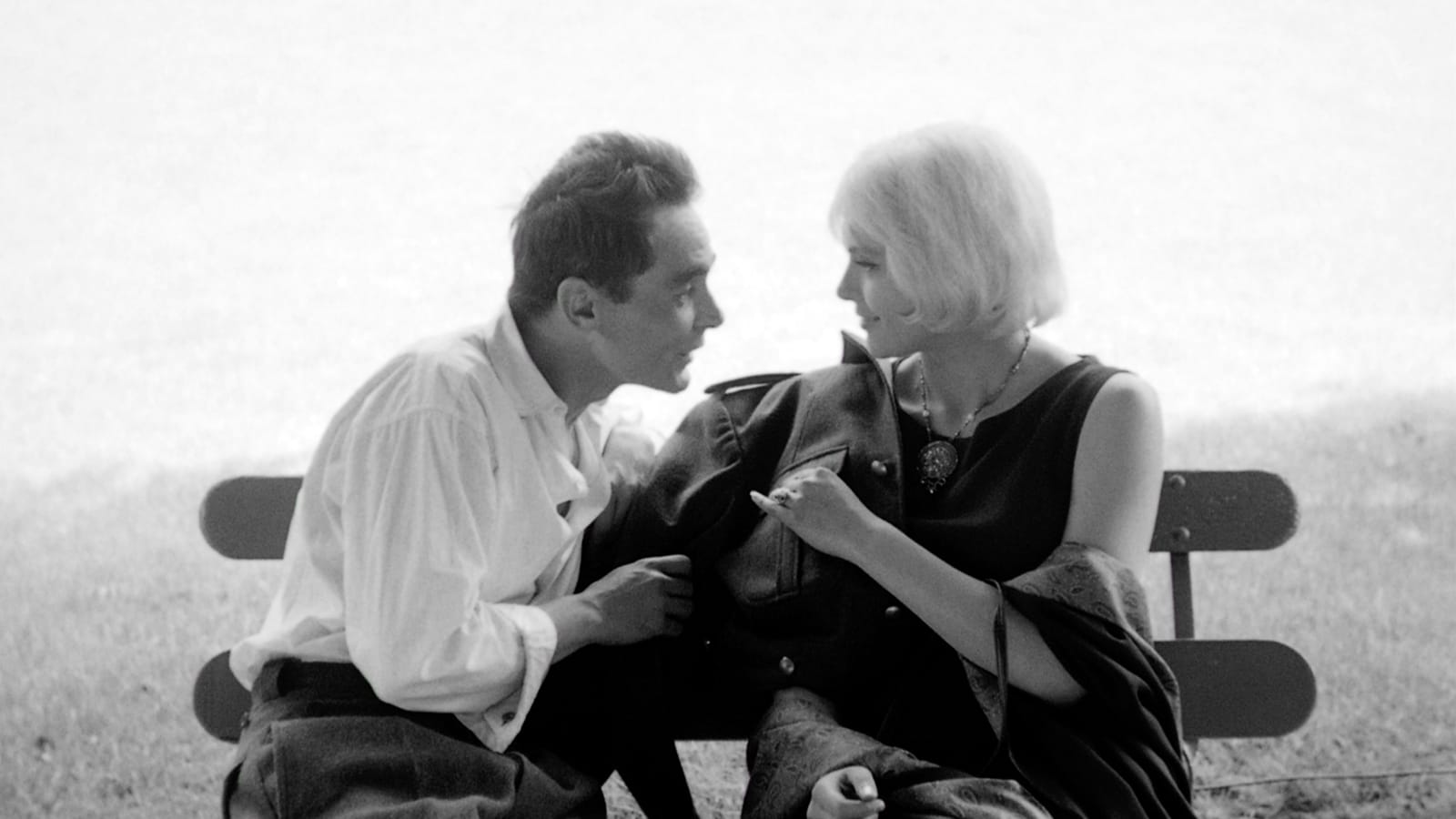
The prospect of death puts everything into perspective, but Cléo from 5 to 7 crafted a totally new one altogether. As it says in the title, the titular singer wanders the French capital in real time, with an ominous tarot card reading turning Cléo’s world into black and white, shifting the mood even as she tries to ease the worry by going through her regular day-to-day. But as she does so, filmmaker Agnès Varda crafts memorable images that subtly depict Cléo’s inner world. The camera pivots, swaps angles, changes point of view, and only moves into the conventional images and score when Cléo performs, whether that be in literally practice of her craft, or in the presence of other people depending on the role she plays in their life. It’s this thoughtful use of the camera, gaze, and of time itself that makes Cléo from 5 to 7 a standout drama from the French New Wave.
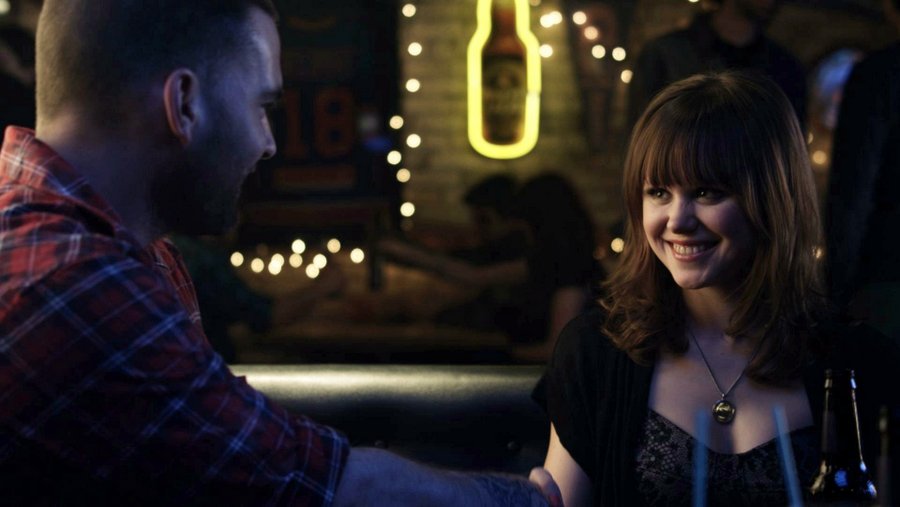
Goon is funny, violent, and sweet as hell. You’ll be surprised by how nasty it is but at the same time you won’t care. What you will want to do, on the other hand, is rip through the screen, and hug the main character. It is also a great example of a feel-good movie that isn’t solely focused on being a feel-good movie. It’s also great love story, with all its absurdities and highly emotional load. The story shines a light on the players who join hockey teams not for the game but for the fights that may erupt. They are called goons. Doug Glatt (Seann William Scott) is a new goon and this movie is his journey towards success both on the ice and off.

Donnie Darko is a cult film by director Richard Kelly, starring Jake Gyllenhaal. It’s about the troubled teenager Donnie who lives in a suburb and suddenly faces a person in a giant rabbit costume who tells him that the world is going to end in 28 days. If that didn’t make sense to you, don’t worry – it’s not about making sense. The film is a gorgeous exploration of a bizarre chain of events, a deep rabbit-hole of meaning and expression, fate and acceptance that practically begs for a second, third, or fourth watching.

Adam Sandler, though currently imminently marketable, incredibly played out and boring, used to be a real actor. This is the film by which his legacy will be judged, where we see the funnyman drop the mask and actually show real feelings besides bumbling rage. Sandler’s hurt and confused performance is beautifully vulnerable and true and is complimented by P.T. Anderson’s incomparable direction (the man behind Boogie Nights and There Will Be Blood), creating a true masterpiece of American cinema. This beauty also stars Philip Seymour Hoffman and Emily Watson.
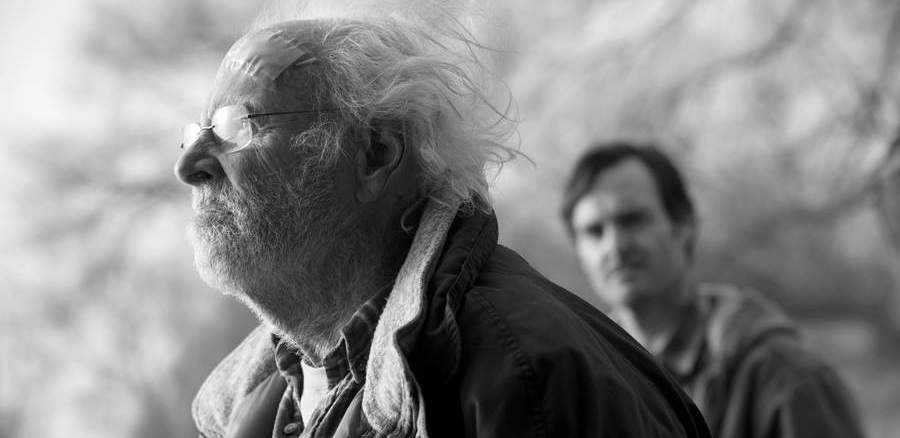
Nebraska is a poem distilled into a film. Peter Travers from Rolling Stone says “is it a comedy or a drama? Both at the same time, as life itself.” Everything about it is perfect: the acting, the photography, the story. In case that’s not enough and you need to know the plot to get convinced, I’ll tell you that it’s a road movie about a senile old man and his son. If you still want more information, you can Google it, but come on! You’ll just be wasting time that would be better spent on watching this masterpiece.
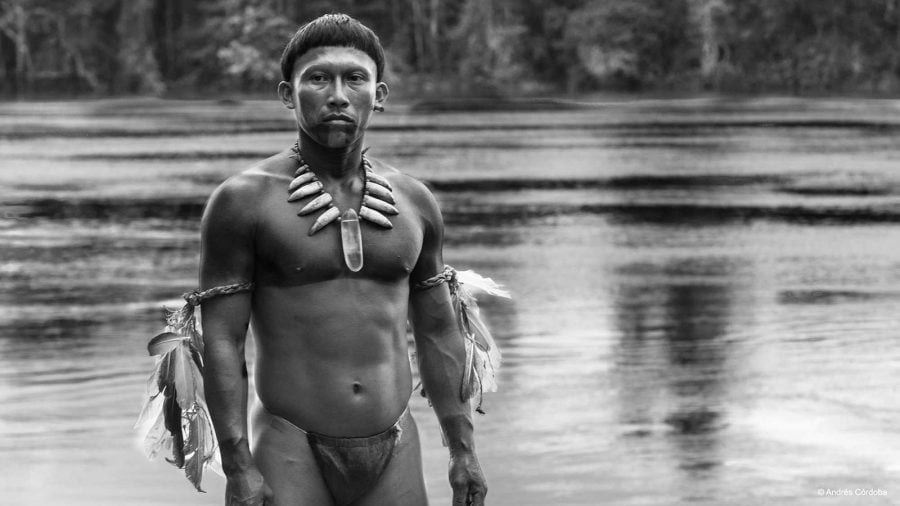
This movie is gentle and utterly chaotic, intimate and massive, beautiful and ugly… it tries to be so many things and somehow pulls it off. It tells two stories parallel in time, based on the real-life diaries of two European scientists who traveled through the Amazon in the early and mid-twentieth century. Their stories are some of the only of accounts of Amazonian tribes in written history. The main character and guide in the movie is a shaman who met them both. At times delicate to the point of almost being able to feel the water, at times utterly apocalyptic and grand… to watch this movie is to take a journey through belief systems, through film… and to be brought along by cinematography that is at times unbelievably and absurdly beautiful. Meditative, violent, jarring, peaceful, luminous, ambitious, artful, heavy handed, graceful… it’s really an incredible film.
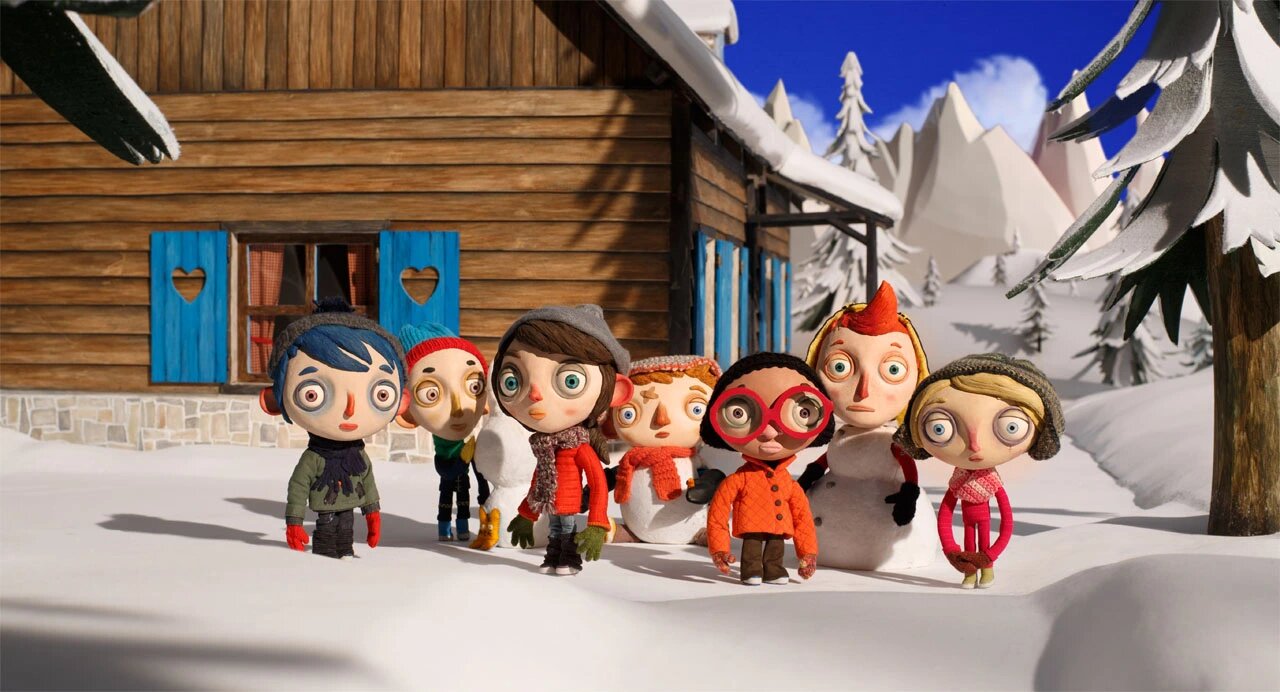
My Life as a Zucchini (or Courgette in Europe) is unlike any kids’ movie you’ll see in America. It isn’t afraid to be honest about children’s feelings, no matter how dark or sad, nor is it afraid to be frank about things like intimacy and abuse. It understands that kids need these kinds of narratives too, and sometimes they need to hear them without being pandered to.
There is an openness to it that makes it comforting to adults as well. Lines like “Sometimes, we cry because we’re happy,” are so deceptively simple and tender that they’ll catch you off guard. Couple this seemingly endless reserve of empathy with adorable, almost melancholic stop-motion animation and you get a film that will have you floored for days, regardless of your age.
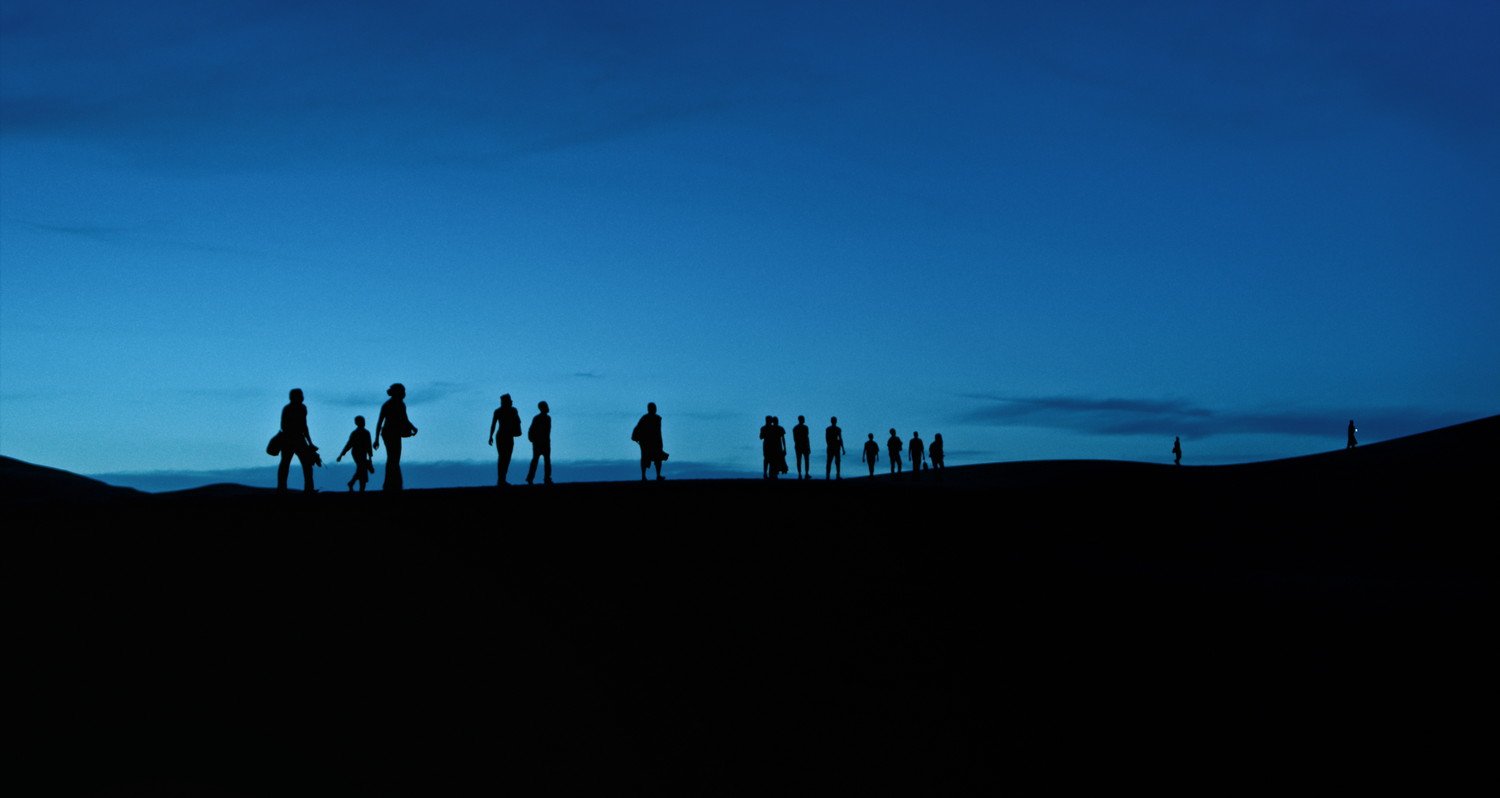
Journeying from Africa to Europe without an official permit isn’t just risky, it’s dehumanizing, if not lethal. And though we’ve heard about the many unfortunate ways migrants have suffered, never has the crisis been as intimately and intensely portrayed as in Io Captain. Here, we get to see who Seydou and Moussa were before the voyage out of Senegal, before they were reduced to anonymous bodies bound to torture, slavery, and racism. Director Matteo Garrone takes care not to exploit their lives and instead highlights the joy and hope they left behind and continue to find in small but meaningful portions. Garrone achieves a delicate balance between stark, depressing reality and heartwarming hope, and it’s beautiful to watch. All this in addition to stunning cinematography and unbelievable performances by the two young leads makes Io Capitano easily one of the best films in recent years.
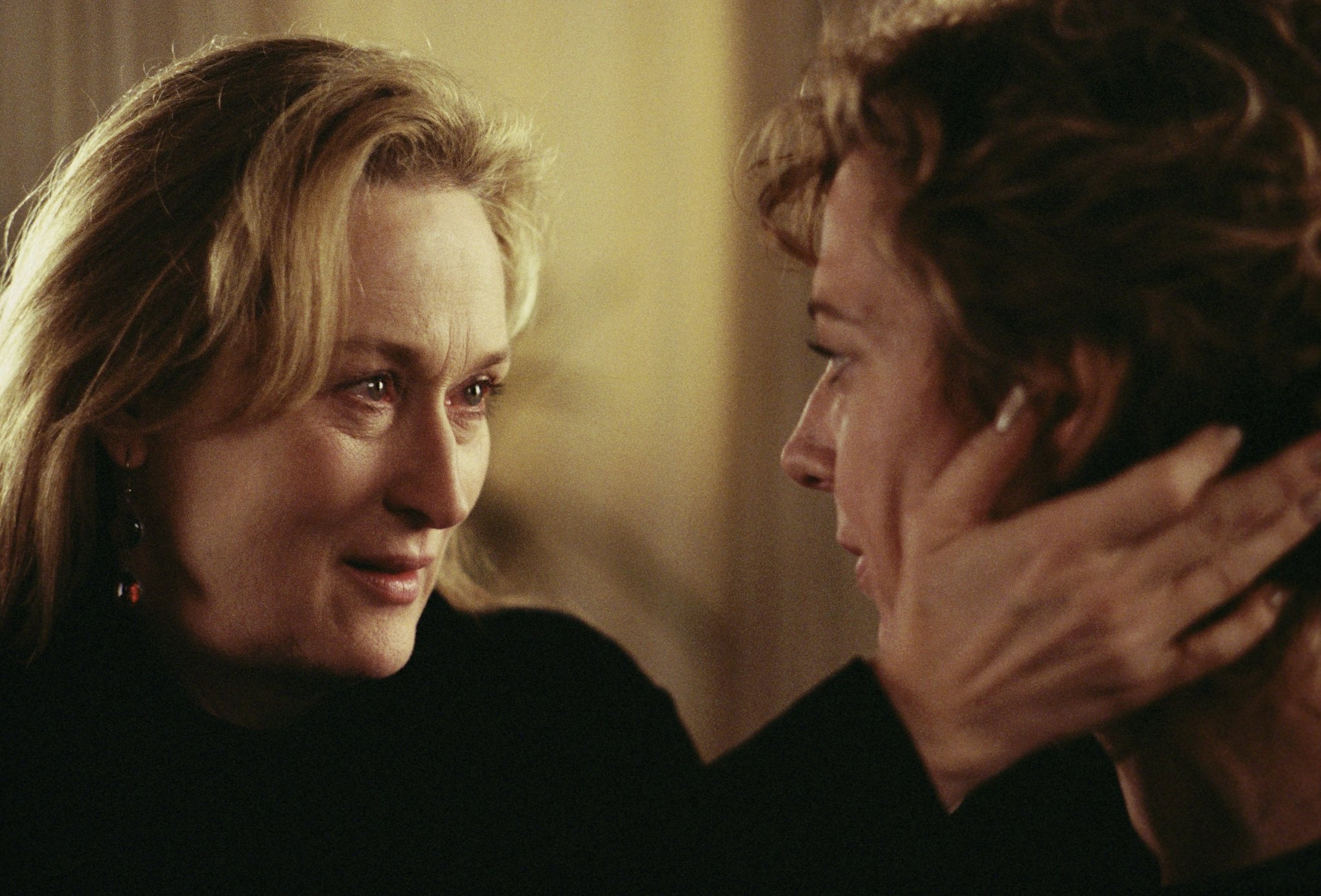
Why do we stay alive? Do we owe it to people to stay alive? Not everyone thinks about these existential questions, and even less are obsessed with them. But the characters in The Hours, who span centuries, do. It’s one of the few things that tie them together, along with female malaise and a love for literature. The film is so seamlessly stitched together, you barely notice when it slips into another era, or speaks to us through another character. It feels natural to jump into different timelines and collect all these different memories and observations, in the same way it feels natural for everything to happen all at once in life. Some reviews claim that, because of the dark themes the film covers, it can be hard to watch, but I don’t think I’ve had an easier time watching anything. The script is poetic, the performances heart-wrenchingly good (what a trio!), and the editing so smooth. This is a thoughtful film through and through, not just in content but in delivery too.

This surprising documentary follows Jiro, an 85 year old Japanese chef, his Michelin-starred restaurant in the Tokyo underground, and his eager sons. While ostensibly about sushi – and believe me, you’ll learn about sushi and see absolutely gorgeous images of the raw-fish creations – the film’s dramatic impetus is carried by the weight of tradition, the beauty of a labor of love, obsession, and the relationship between father and son. Truly a must-watch.
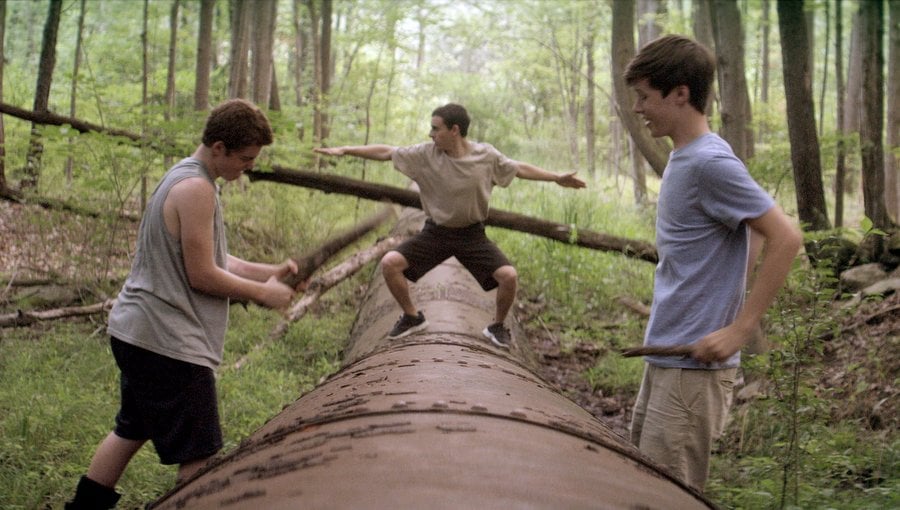
A quirky and lovely coming of age film, the Kings of Summer celebrates the beauty and madness of adolescence and the sheer joy of long summer days. The plot follows three teenage friends, who, in the ultimate act of independence, decide to spend their summer building a house in the woods and living off the land. The house soon becomes a microcosm of their relationships with each other and the world at large, prompting conflict and mirroring their own transformations as they grow. Simple yet powerful, the Kings of Summer has a lot to say.
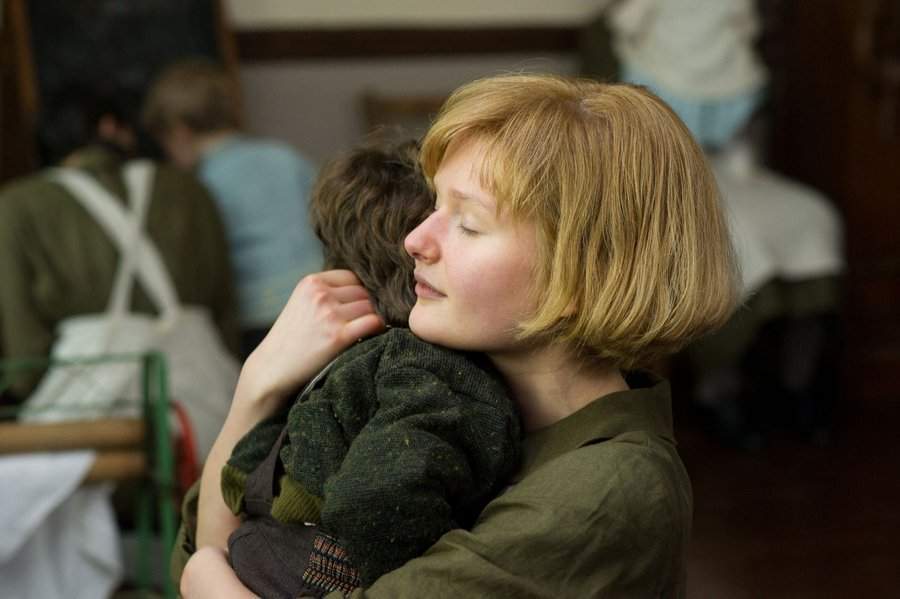
An inspired by true events tale about an elderly Irish woman trying to find the child she was forced to give up many years earlier. Steve Coogan co-wrote the script and, though the base story is a tragic one, his special brand of very subtle, wry wit is apparent in the dialogue throughout. Judi Dench plays the mother who had kept her “sinful” past a secret for fifty years and, being Judi Dench, I don’t need to bother going on about her exemplary talent, suffice to say she’s charming beyond measure in the role. Steven Frears directs, as usual, deftly, and keeps the story compelling scene after scene, intensifying the emotions inherent to each, whether they be heart-warming, comedic, or outright enraging. Whoever decided to let Steve Coogan have his way with the script, it was a brave and wise choice and together this cast and crew have produced a wonderful and important piece of cinema.

Like all great documentaries, Angry Inuk is about way more than its tagline. At first glance, it’s about how anti-sealing activism has been harming Inuit communities since the 1980s, to the point of instituting the highest rates of hunger and suicide anywhere in the “developed” world. But beyond, it’s about the complicity of the government of Canada. A crushed seal-based economy means that the Inuit have to agree to oil and uranium mining in the Arctic.
Angry Inuk is also about the corrupt behavior of animal rights organizations like Greenpeace: seals are actually not on the endangered animal list but NGOs focus on them because they make them money.
It’s an infuriating but incredibly important documentary. One that is not about how Canada has a bad history, but about how Canada is harming the Inuit right now.
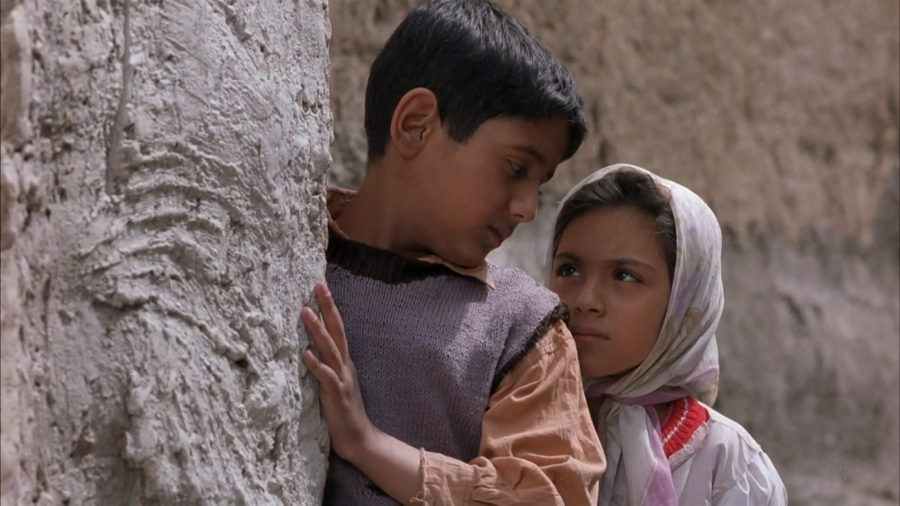
After third-grader Ali loses the only pair of shoes his sister Zahra owns, the siblings agree to share Ali’s sneakers for school. Zahra uses the tattered, ill-fitting footwear in the morning, and in the afternoon, she hands them over to Ali, who then races to get into school in time. The siblings wait for things to get better at home before they mention anything to their already-burdened parents, but in the meantime, they persevere, scooping up every bit of silver lining they find, whether it’s popping soap bubbles or taking in the city’s ultramodern sights.
In this way, Children of Heaven is neither cynical nor cheesy. It presents the harsh reality of Tehran’s poor without robbing them of hope and agency, giving the movie the right amount of self-aware and feel-good that elevates it into a classic. Thanks to this masterful balance, plus many awe-inspiring shots and lines, it should come as no surprise that Children of Heaven is the first Iranian film to be nominated for Best Foreign Language Feature at the Oscars.
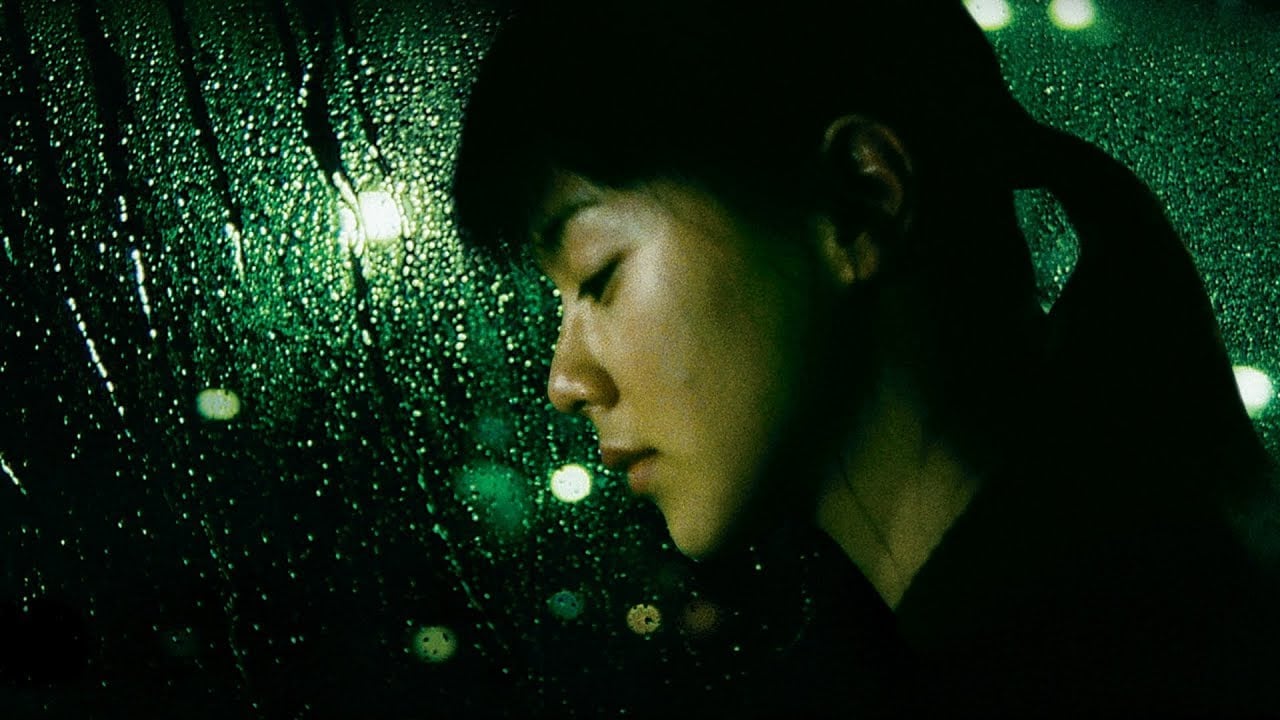
Director Hirokazu Kore-eda’s feature debut is nothing short of a masterpiece, his style of serenity apparent from the get-go. With Kore-eda’s still frames and touching, relatable stories, it’s almost impossible not to find yourself caring for his characters like they are your own family.
In Maborosi, Yumiko (Makiko Esumi) is haunted by one loss after another and struggles to accept these tragedies and move on with her life. Her story is probably the toughest Kore-eda has had to tell, yet there is still a certain beauty to it, especially in its quietness and moody atmosphere. Not forcing any of his characters’ feelings on the audience, Kore-eda manages to tell a harrowing tale in the gentlest of ways.
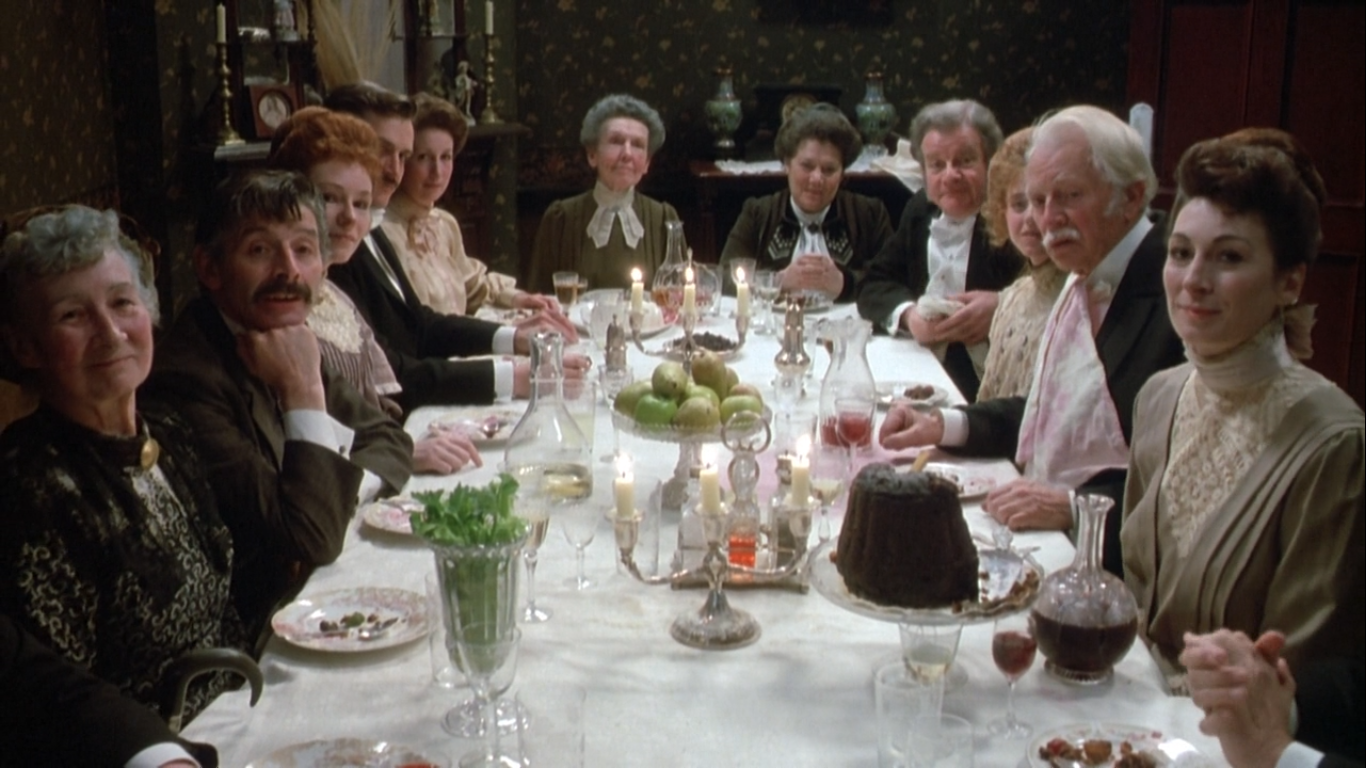
The last work by legendary American director John Huston is this exquisitely rendered adaptation of a James Joyce short story. The Dead is nestled inside an intimate festive dinner shared by the family and close friends of the Morkan sisters, two well-to-do elderly spinsters living in Dublin in 1904. The film is a family affair in more ways than just that, too: for Huston’s final feature, son Tony wrote the script and daughter Anjelica (as Gretta) was its star.
As with so many end-of-year gatherings, the prevailing mood of the dinner is one of sentimental nostalgia, as the hosts and their guests swap memories, toast each other, and tearily reminisce about the way things were. Anjelica Huston’s performance is also a quiet architect of that atmosphere, as Gretta slips in and out of dreamy reveries throughout the evening to the puzzlement of her husband Gabriel (Donal McCann) — something that surges to the fore in an astonishingly moving final revelation. Huston directed the film on his proverbial deathbed, which infuses it with significance — but, even if it wasn’t the capstone to his illustrious career, The Dead would still stand as one of the finest treatments of mortality and longing ever committed to the screen.
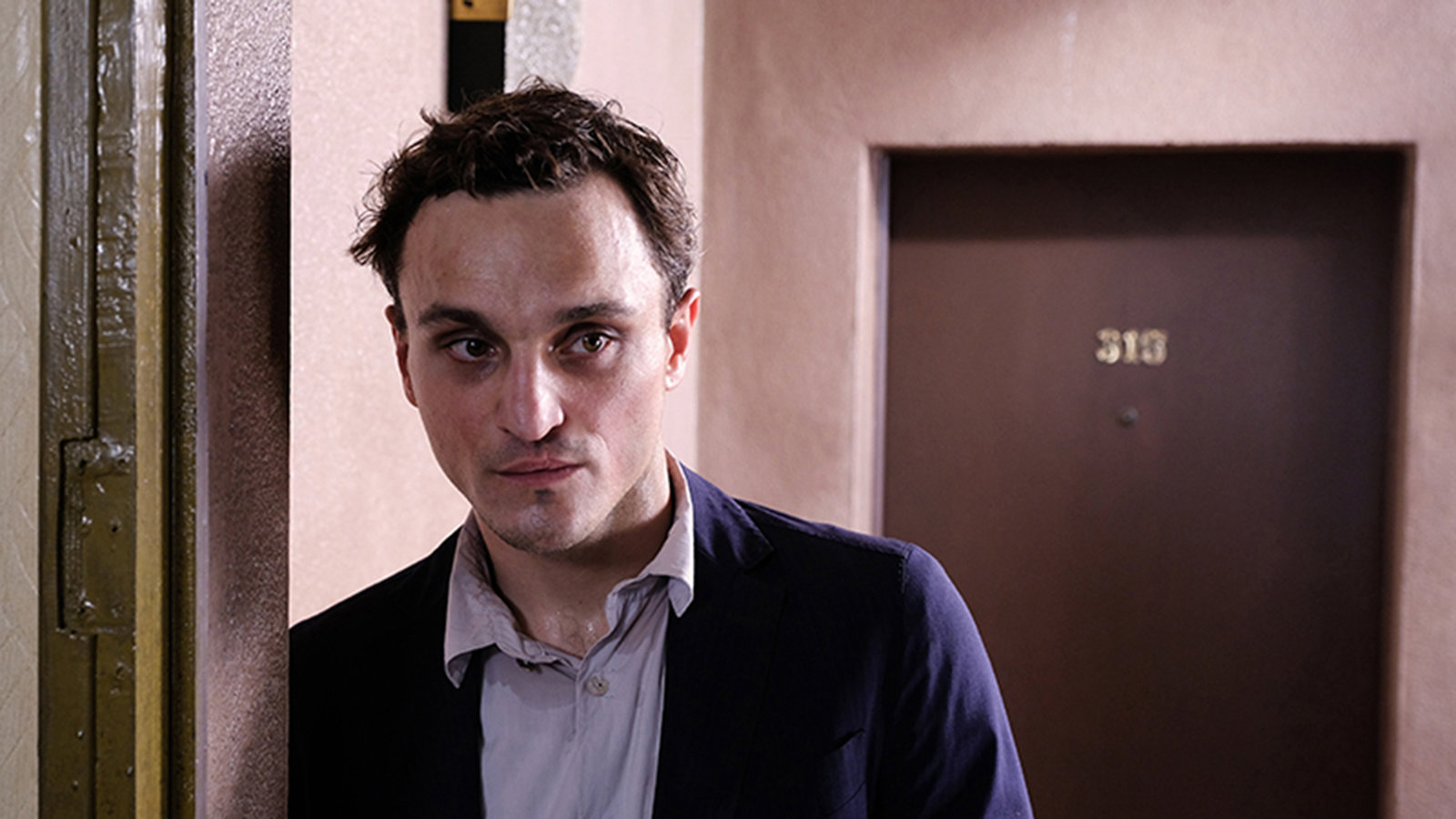
Transit is based on a WWII novel — though you wouldn’t be able to tell from first glance. While the characters talk of German fascists occupying France, anachronistic details (like modern technology and clothing) suggest we haven’t gone back in time at all. Director Christian Petzold isn’t trying to confuse us: by blurring the backdrop, he’s making the terror and the desperation of the story more immediate — removing the distance that might have prevented us from really feeling what happens.
The uncanny historical echo effect works as intended, because the parallels Transit subtly draws between the past and today are horribly clear. What’s more, the movie’s intentionally ambiguous framing suffuses the plot with an otherworldly sense of mystery, a quality that gradually intensifies as Georg (Franz Rogowski) desperately searches for a one-way ticket out of hellish bureaucratic limbo before he finds himself waylaid by that most mysterious emotion of all: love. Unshakably haunting and undeniably poignant, this is a movie that will live under your skin.
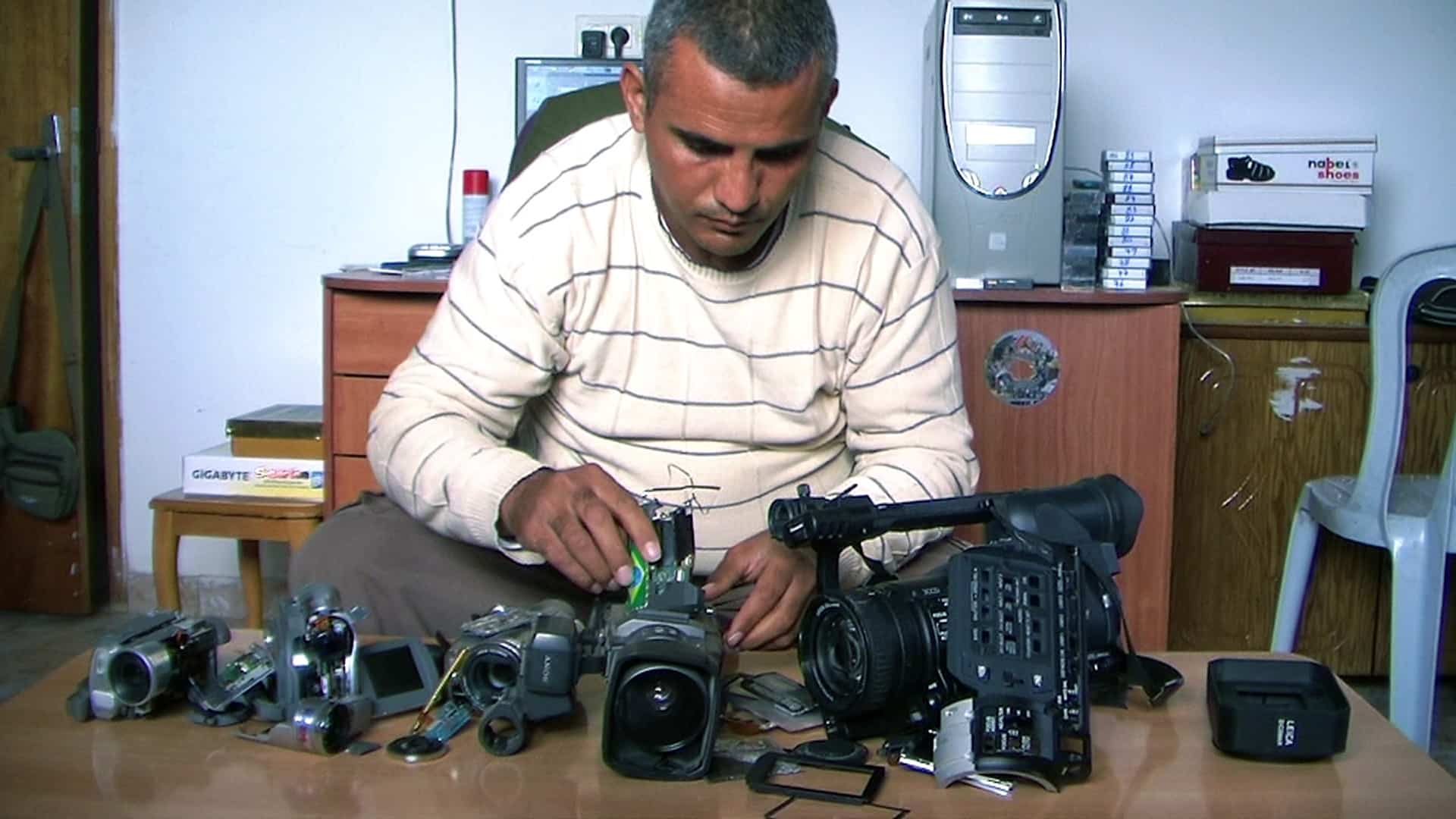
In 2005, Palestinian olive farmer Emad Burnat bought a camera to document the birth of his new son, Jibreel. But what was intended as an act of celebration quickly grew into something else, as Burnat inadvertently became a documentarian of the oppression his West Bank village faced when a wall was erected through it and Palestinian farmland illegally appropriated by Israeli settlers. As we come to witness, this reluctant pivot is just another example of everyday life in Bil’in being forcibly reoriented by the occupation, as Burnat captures the daily struggles of life in the village and charts the innocence-shattering effect the occupation has on young Jibreel’s burgeoning consciousness.
Over his footage of encroaching illegal settlements, the arrests of Palestinian children in the middle of the night, the point-blank shootings of blindfolded and handcuffed peaceful protestors — plus tender snapshots of nature and joyful events in the village — Burnat delivers a poetic, reflective narration that miraculously ties these horrible and hopeful images together. It’s this intimacy of perspective that makes 5 Broken Cameras profoundly harrowing and unexpectedly transcendent — a personal document of oppression that is also a testament to the miraculous persistence of the human spirit, the resilience of life and the urge to seek beauty even under truly awful circumstances.
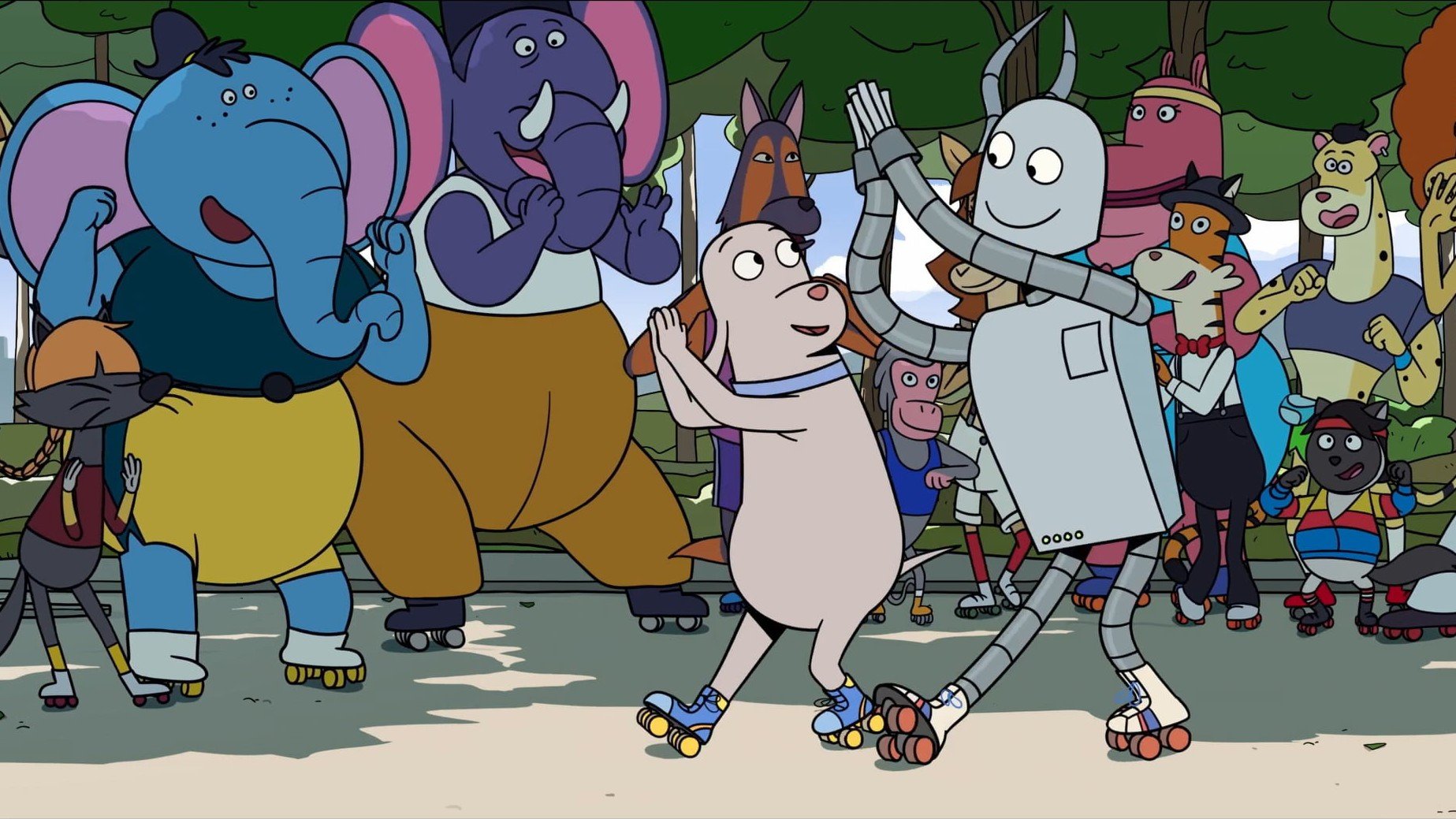
The first few minutes of Robot Dreams are so deceptively simple and pleasant that it’s hard to think of a conflict that could keep the film moving. But something does happen—life happens, which sounds annoyingly vague, but it’s true. Life happens, and the rest of the film is about how Dog and Robot survive the specific pain of living. It’s at once poignant and delightful, filled with surprising moments that shouldn’t work, but do. It feels incredibly human even though there are no people in sight. It says a lot about the crisis of loneliness and the importance of moving on even though it’s a silent movie. And then there’s that one scene that breaks the fourth wall most adorably, proving that Robot Dreams is anything but the straightforward film it seemed to be in the beginning. Consistently, however, it is a touching movie. Whether it ends up breaking or warming your heart is just something you have to look out for.
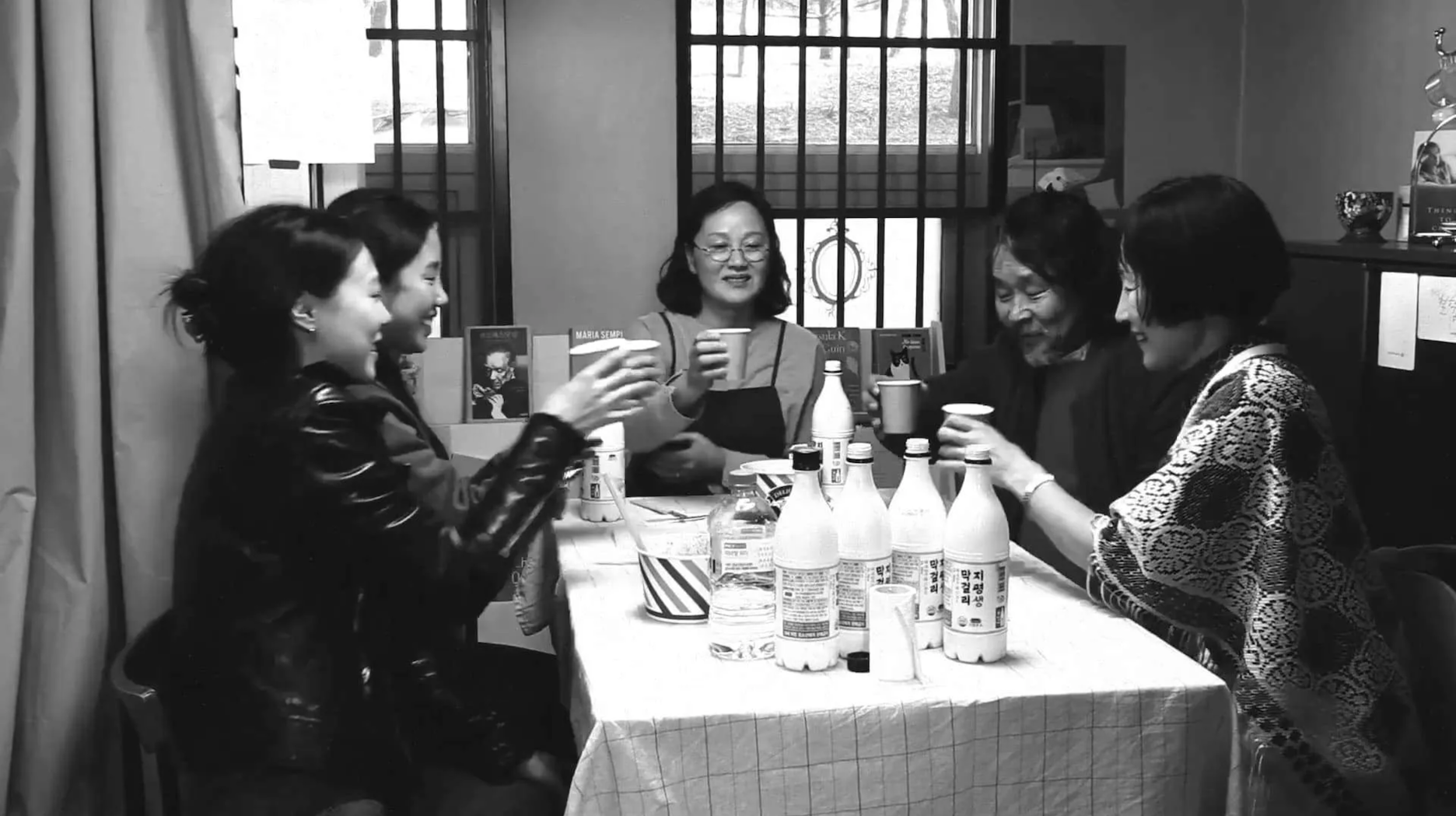
After you’ve watched a few films by Hong Sang-soo, you should know the general outline of what to expect: long, unbroken shots of long, unbroken conversations between characters (who are probably drinking alcohol), with very minimal movement on screen, a few recurring character types, and probably actress Kim Min-hee. But where a number of Hong’s films tend to make excuses for its burdened, self-righteous artist characters, The Novelist’s Film expresses not just a self-awareness of Hong’s usual perspective but a sincere willingness to imagine something beyond himself.
With one of the strongest screenplays he’s had in a long time, unexpected new touches to his usual style, and a powerful lead performance by Lee Hye-young, the film manages to infuse a newfound sense of vitality and vulnerable emotion into tis familiar beats. There’s plenty of humor and light tension to be found in the film’s many conversations about the purpose of art—boiling things down to the most foundational reasons for why we make and respond to creative works in the first place. Whether you’re a longterm fan or longterm skeptic of Hong’s work, The Novelist’s Film adds something undeniably new to his oeuvre.
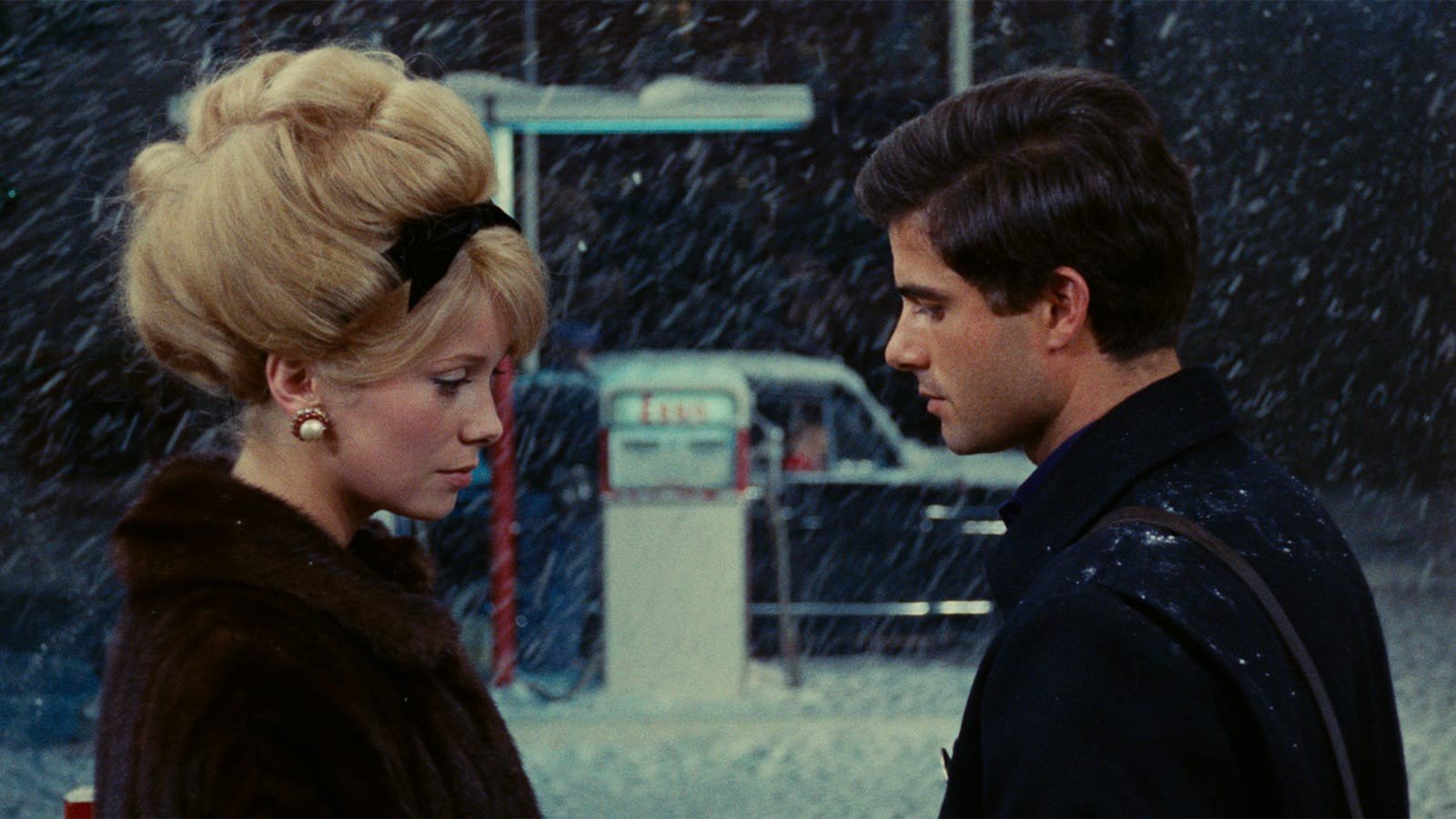
If we were to list down the best of the best movie musicals ever made, most of the titles would probably come from the Golden Age of Hollywood. But we’d be remiss to forget that just a few years later, all the way across the pond, came The Umbrellas of Cherbourg, a French romantic musical from Jacques Demy. It’s certainly in the running for the most gorgeous musical ever made, with the bold, dreamy colors, incredible camera work, stylish costumes, and two beautiful leads front and center, but what makes Cherbourg great is the lush composition made by Michel Legrand. With the sweeping violins and the tragic lyrics of Devant le Garage, to the catchy, jazzy Scène du Garage that starts off the film, Les Parapluies de Cherbourg brings together sublime visuals and sound into one of the greatest musicals ever made.

Based in the 1970s, William Miller is a young high school student who hasn’t experienced much in life partially due to his over-protective mother and also due to his awkwardness. His only escape is through the music he listens to religiously. Senior year he stumbles upon the opportunity of a lifetime to write a story for Rolling Stone Magazine by going on tour with an up-and-coming band. Through his journey he meets new people, friends, and experiences life in a way that could not have been provided for him back at home. Starring Billy Crudup, Kate Hudson, Jason Lee, and Patrick Fugit.
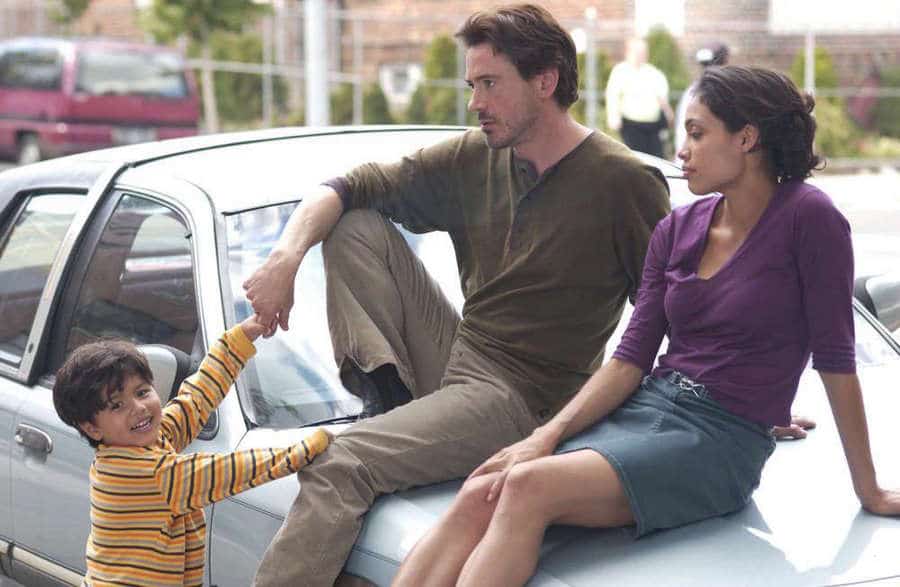
Not only is this multi-award-winning drama seriously star-studded, Robert Downey Jr., Rosario Dawson, Channing Tatum, and Shia LaBeouf also deliver superb performances. With two Sundance Awards and many other nominations in its pocket, A Guide to Recognizing Your Saints is based on the eponymous memoir by author, director, and musician, Dito Montiel, who recalls his violent childhood on the mean streets of Queens in the 1980s (LaBeouf plays the young Dito), as he visits his ailing father after 15 years away in Los Angeles (Downey Jr. plays present-day Dito). It is also real-life Dito’s directorial debut, recalling the loose, improvisational style of 70s cinema a’la Scorcese. The powerful plot is told through flashbacks and fourth-wall bending monologues, while the eccentric directing style makes for a raw and immediate experience. The energy of this coming-of-age drama is off the charts!

Directed and co-written by Craig Johnson (who made The Adolescents with Mark Duplass), The Skeleton Twins is a beautiful piece of drama, dealing with some dark themes. It does so with surprising success, given that the two main actors are seasoned comedians with little to no experience in the genre. And yet, it is precisely the two leads that turn this bleak comedy-drama into a somber, haunting, but beautiful watch. Bill Hader is amazing as the depressed and suicidal gay man, Milo, who is reunited with his estranged twin Maggie (Kristen Wiig) after a series of unfortunate events. Their attempts at repairing their fractured relationship also forces them to confront the trajectory of their own lives, while they rediscover their erstwhile childhood friendship and long-lost camaraderie. Again, don’t expect a traditional comedy, but an honest display of the complexities of sibling relationships, mental health, and how conflict, compassion, and understanding fit into it all.
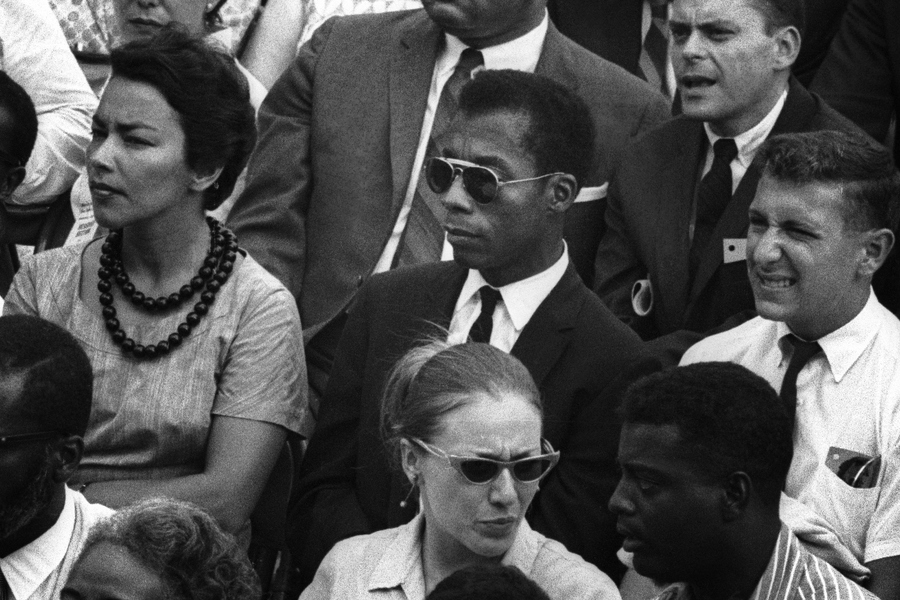
In a stunning and vivid (re-) introduction to the Black intellectual, author, and social critic, James Baldwin, this movie digs very deep into the American subconscious and racial history. It tells the story of America by telling the story of “the negro” in America, based on a book Baldwin started to write, which would have studied the famous assassinations of three of Baldwin’s friends: Medgar Evers, Malcolm X, and Martin Luther King, Jr. He wrote about 30 pages before he passed away in 1987. Haitian director and activist Raoul Peck picked up the project and made it into a movie, earning him an Academy Award nomination. Narrated by none other than Samuel L. Jackson, I Am Not Your Negro highlights, at the same time, Baldwin’s genius, his unique eloquence, and the beauty of his soul as a human being. It is a sad truth that Baldwin’s denouncements feel as relevant today as they did 50 years ago. As such, this movie serves as a sobering reminder of how far America still has to go. A mesmerizing experience!
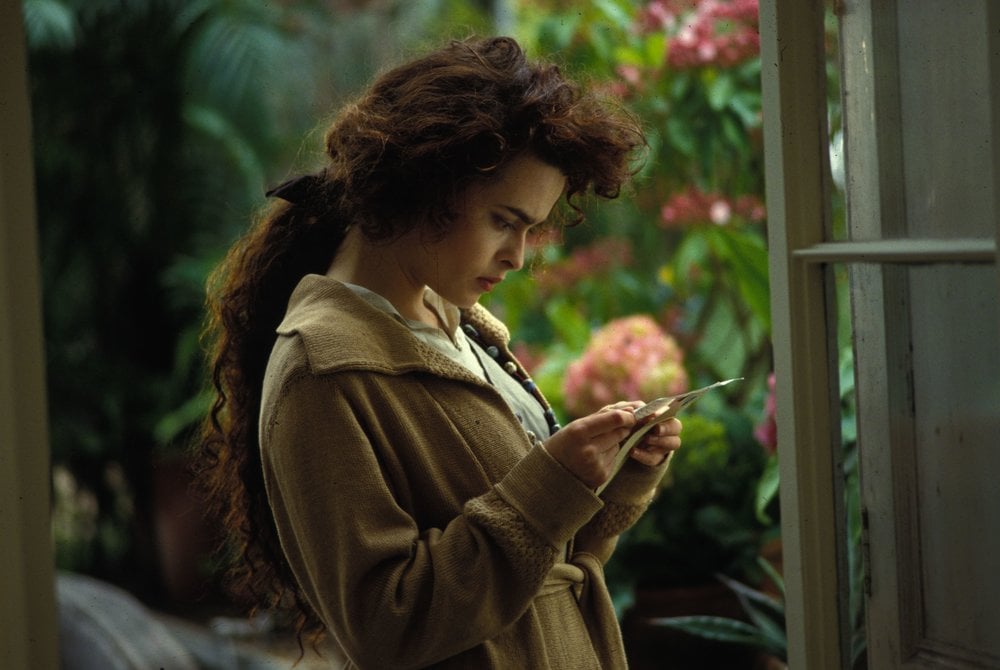
With Howards End, the magic trio of producer Ismail Merchant, director James Ivory, and writer Ruth Prawer Jhabvala converted yet another turn-of-the-19th-century EM Forster novel into exquisite cinematic form. Ravishingly shot and performed to career-best heights by many of its cast, Howards End loses nothing of the elegance we expect from a period drama, and yet it also feels thoroughly modern. The film charts the tragic entwining of three families: the progressive and intellectual middle-class Schlegel sisters, the much more traditionally minded and wealthier Wilcox family, and the Basts, a down-on-their-luck working-class couple. It’s the liberally minded Schlegels who cross the class divide of 1910 London to bring these two distant social circles so close to each other, but it’s the old-world values of the Wilcoxes that make that meeting a tragic one. Simmering with rich emotion and crackling with class politics, Howards End is the crowning glory of the Merchant Ivory powerhouse and the rare perfect period drama.

One of those movies which are actually good for your education; think of it as a book you can read in two hours. It is, however, a very well-cast and well-filmed book. Hotel Rwanda is brutal and disturbing, which is only reasonable since it tells the story of one of the most horrific times in recent history. Led by an astonishing performance from Don Cheadle, it is overwhelmingly sad but an absolute must-watch.

From Korean director Park Chan-wook, who also brought you the far quieter The Handmaiden, comes a movie that is positively terrifying. Its premise alone is enough for any sentient human being to shudder. On his daughter’s birthday, the good-for-nothing Oh Dae-su (played by Choic Min-sik) gets drunk and is arrested by the police. A friend eventually bails him out and, while he is making a phone call, Oh Dae-su disappears. Not knowing why, he is held in the same room for 15 years for no apparent reason. Until, one day, he is released. That’s all that can be revealed about this winner of the Grand Jury Prize at Cannes in 2004 without giving away too much. All we can add here is the way we recommend Oldboy to people admitting to not having seen it yet: “Watch Oldboy. You’re welcome. We’re sorry.” A crazy, twisted film that goes to extremes. A cult classic and a statement.

In a world where mortality has been overcome, people watch in awe as the as the 118-year-old Nemo Nobody, the last mortal on Earth, nears his end. He is interviewed about his life, recounting it at three points in time: as a 9-year-old after his parents divorced, when he first fell in love at 15, and as an adult at 34. The three stories seemingly contradict each other. Utilizing non-linear cinematography, Belgian director Jaco Van Dormael presents each of these branching pathways as a version of what could have been. The result is a complex, entangled narrative. That and the movie’s ensemble cast, featuring Jared Leto, Sarah Polley, and Diane Kruger, have turned Mr. Nobody into a cult classic. The soundtrack, featuring several of the beautifully restrained music by Eric Satie, is also considered a masterpiece. While it is surely not for everybody, this is trippy, intimate, and existential sci-fi at its best.
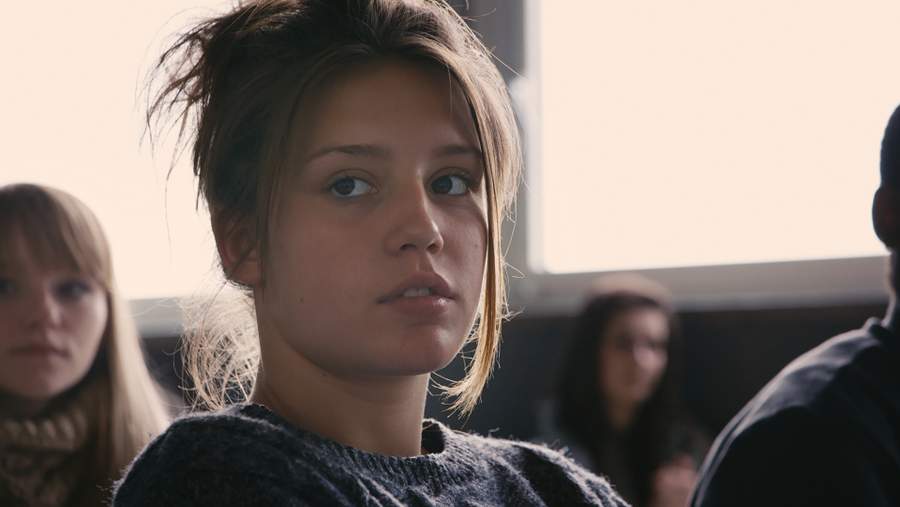
More simply called La Vie d’Adèle in its native language, this French coming-of-age movie was hugely successful when it came out and was probably one of the most talked-about films of the time. On the one hand, the usual puritans came to the fore, criticizing the lengthy and graphic sex scenes. On the other hand, Julie Maroh, who wrote the source material that inspired the script, denounced Franco-Tunisian filmmaker Abdellatif Kechiche for directing with his d*ck, if you don’t mind me saying so, while also being an on-set tyrant. Whatever you make of this in hindsight, the only way to know is to watch this powerfully acted drama about the titular Adèle (Adèle Exarchopoulos), and her infatuation with Emma, a free-spirited girl with blue hair, played by Léa Seydoux. The film beautifully and realistically portrays Adele’s evolution from a teenage high-school girl to a grown, confident woman. As their relationship matures, so does Adèle, and she slowly begins to outgrow her sexual and philosophical mentor. Whatever your final verdict on the controversial sex scene, Blue Is the Warmest Color is without doubt an outstanding film as are the performances from Exarchopoulos and Séydoux.
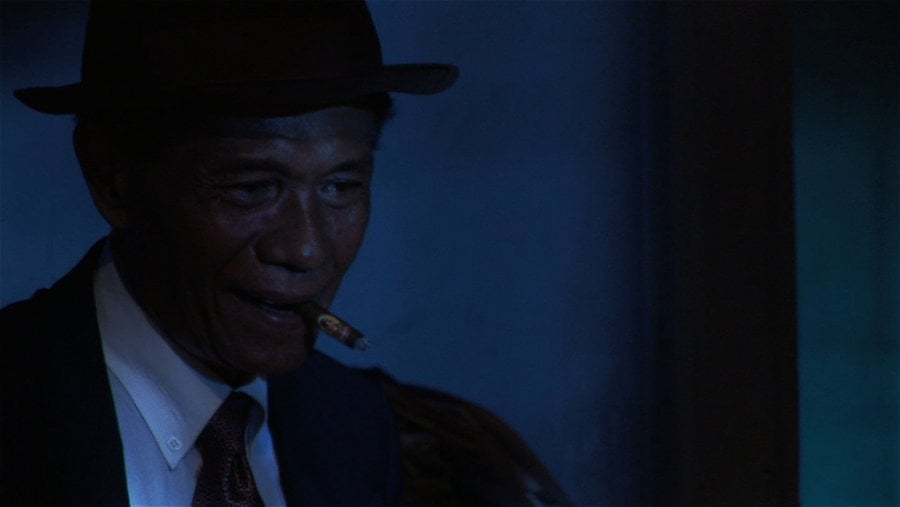
Joshua Oppenheimer’s daring feat is a documentary unlike anything ever done. Despite it being one of the most difficult things to watch for any human being (or because of it), The Act of Killing received praise across the board, including an Academy Award nomination. Without Oppenheimer’s efforts, you might have never heard of the unspeakable events that happened when, in 1965-66, Suharto overthrew the then-president of Indonesia and a gangster-led death squad killed almost a million people. Did they pay for their crimes? Quite the contrary: said gangsters went on becoming political mainstays in modern-day Indonesia, are still now heralded as heroes, and admit to all these crimes with a smile and not a hint of regret. The gruesome twist of this documentary is that Oppenheimer asks them to re-enact the killings in surreal, sadistic snuff movies inspired by the murderer’s favorite action movies. You are forced to stand idly by as they re-create brutal mass murder and joke about raping a 14-year-old. However, somewhere amidst this terrifying farce, the killers, too, have fleeting moments of realization that what they’re doing is wrong. If you make it through this in one piece, try watching its more victim-focused follow-up The Look of Silence. Bone-chilling but very powerful stuff.
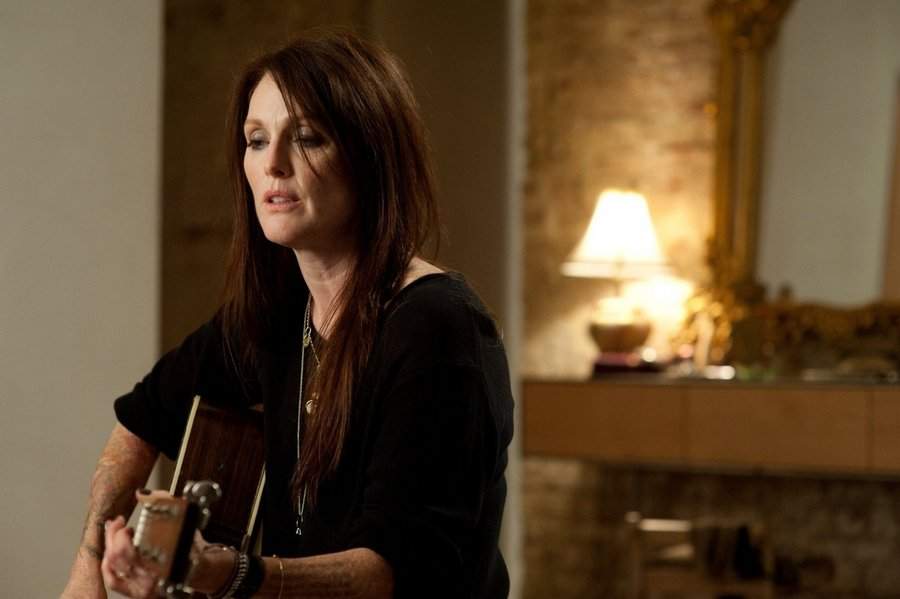
From the producers of The Kids Are Alright comes another excellent family drama starring Juliane Moore. She plays a hot-headed rock singer who battles her divorced husband, a narcissistic art dealer, expertly played by the unlikely Steeve Coogan, for custody of her daughter Maisie. When one of them marries the girl’s nanny, the other rushes into marriage as well. Based on Henry James’ titular novel from 1897, it tells the story of a quiet, sensitive young girl coping with being used as a pawn by egotistical parents who spite each other. It is sometimes hard to watch the girl get caught up in all this but the young actress playing Maisie, Onata Aprile, plays the part brilliantly. The screenplay adaption of the ahead-of-its-time material of the book by Nancy Doyne and Carroll Cartwright also hits every note with passion. A harrowing but powerful film.
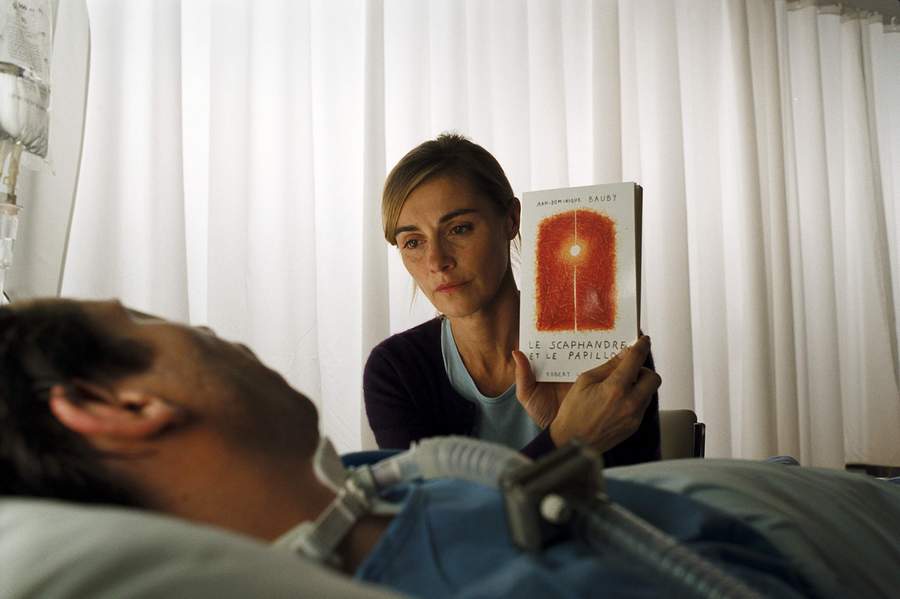
Directed by celebrated artist-turned-filmmaker Julian Schnabel, who won an award in Cannes for it, The Diving Bell and the Butterfly is the true story of the Parisian journalist and fashion editor Jean-Dominique Bauby (Mathieu Amalric), who suffered a devastating stroke at the age of 43. Paralyzed almost completely by what is termed locked-in syndrome, his left eye was the only part of his body that he was still able to move. In a Herculean effort, Bauby learned to blink in an alphabet code that eventually enabled him to communicate. The film alternates between Bauby’s interaction with his visitors and caretakers (including painstakingly dictating his memoir, the titular Le Scaphandre et le Papillon) and dream-like fantasies and memories of his life prior to paralysis. The title alludes to this juxtaposition: the diving bell representing his final state of isolation, akin to a deep-sea diver under a bell, and the butterfly as a symbol for his blinking eye and the freedom he has in his mind, dreams, and imagination. Shot from Bauby’s perspective, we see what he sees. Be it his divorced but loyal wife and his family visiting him, or his old father, played by Max von Sydow, which is probably the scene in this fascinating movie that will make you lose it and weep like the rest of us.
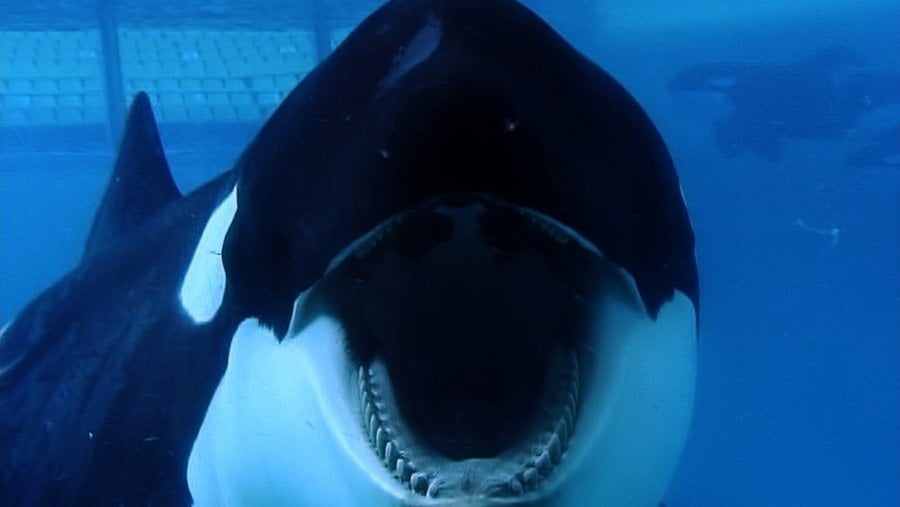
Orcas killing people? Saving whales? There was indeed a time when these issues were frontpage news and that might be the reason why this sounds like a 90s cliché to you. You might agree that this issue should be staunchly dealt with once you’ve watched Gabriela Cowperthwaite’s 2013 documentary. Orcas still being held captive by marine parks like SeaWorld to perform stunts and to parade around swimming pools to entertain ticket-buying families. Blackfish is the story of one of them in particular: a bull Orca named Tilikum, who has killed several people as a result of their immoral imprisonment. Similar incidents tend to be covered up by the parks’ operators and management. They are, however, attributable to the fact that the animals are quiet simply driven mad by the unnatural conditions they are subjected to. They are not born as killers, they are turned into them. First-hand accounts by former whale trainers and experts deliver fascinating truths about Tilikum and the species as whole, elaborating on their remarkable intelligence and social behaviors. For those unaware of this, this passionate documentary makes for a chilling watch.

When asked about this film, Quentin Tarantino goes so far as to say, “If there’s any movie that’s been made since I’ve been making movies that I wish I had made, it’s that one.” Kinji Fukasaku’s cult classic follows an alternative reality set in Japan, where a random high school class is forced onto a remote island to fight to the death. While it does follow the quintessential ‘only one shall leave’ scenario (complete with over-the-top, almost comedic murder scenes), the raw emotion and character depth cuts far deeper than traditional action thrillers. The film will leave you out of breath but still satisfied with how the narrative plays out.
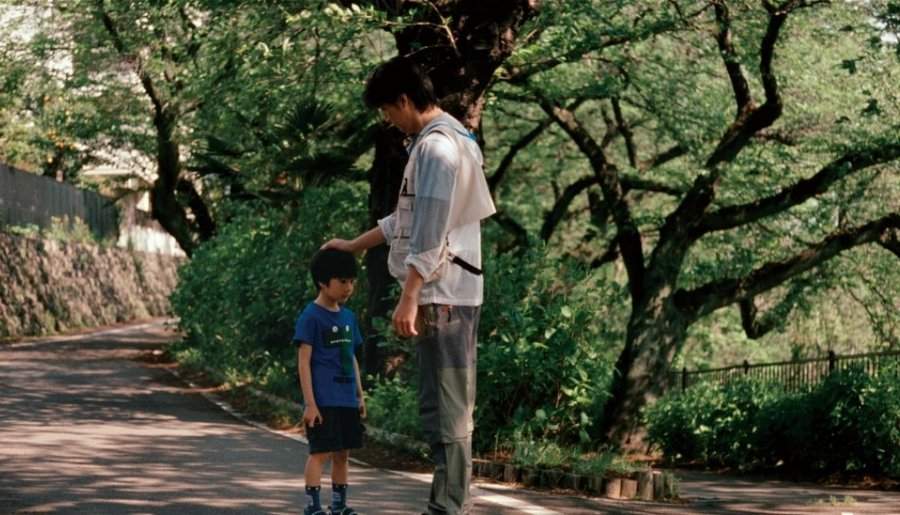
Koreeda’s troubled childhood often serves as the inspiration for his poignant Japanese dramas that deal with loss, the meaning of being a child, and of being parent. In Like Father, Like Son, Ryota Nonomiya (Masaharu Fukuyama), a hard-working architect, who is married to his work, comes home from work. He receives a call from the hospital where his son Keita was born and learns that he was switched at birth with their biological son Ryūsei. His wife and him are not only faced with the prospect of having to switch the two six-year-olds back, but also with the rickety family his ‘real’ son grew up in—and his aversion to what they stand for. But who is real and who isn’t? Must they be switched back? The age-old question of nature vs. nurture and the relationship of love and biology is at the heart of the parent’s struggle. As always with Koreeda’s works, the result is soft-spoken, sensitive, and symphonically directed. Winner of the Jury Prize at Cannes.
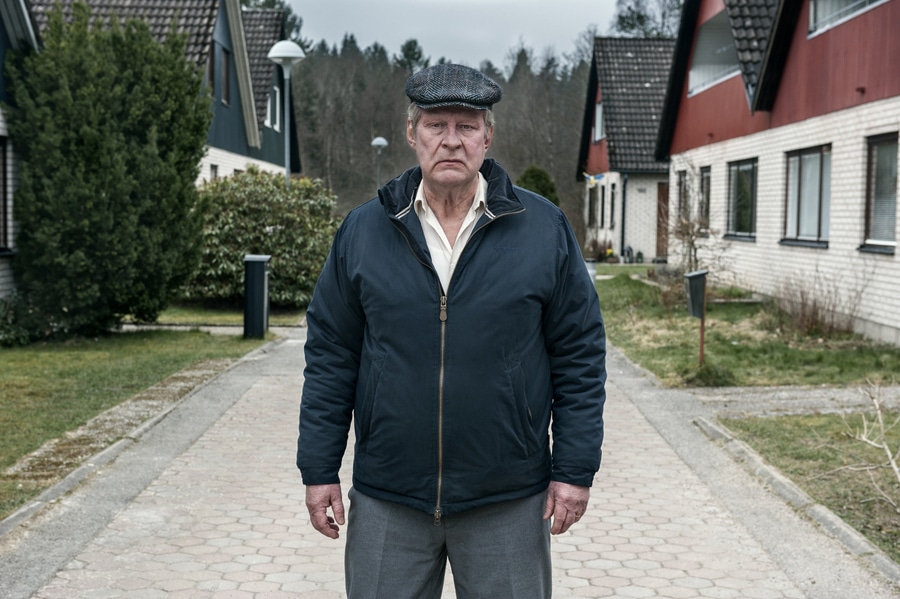
Based on Fredrick Backman’s 2012 best-selling book of the same name, this Swedish hit comedy-drama introduces us to Ove, an elderly man who feels like his life is over. After losing his wife, the short-fused retiree spends his days grumpily enforcing block association rules in his neighborhood. He is your typical unhappy, old neighbor, somebody you would try to avoid. One new family does not give up and befriends Ove, played by an impeccable Rolf Lassgård, despite his best intentions to put them off. As the plot unfolds, however, you learn more about the story behind the man, and, in classic walk-a-mile-in-his-shoes fashion, start to find him rather loveable. After all, nobody is born grumpy and cynical. Naturally, this is a sweet and sentimental film. But an amazing lead performance and a charming, darkly funny script rescue it from drifting too far off the shore. The result is a wholesome, fun, and thoughtful dramedy with a beautiful message.
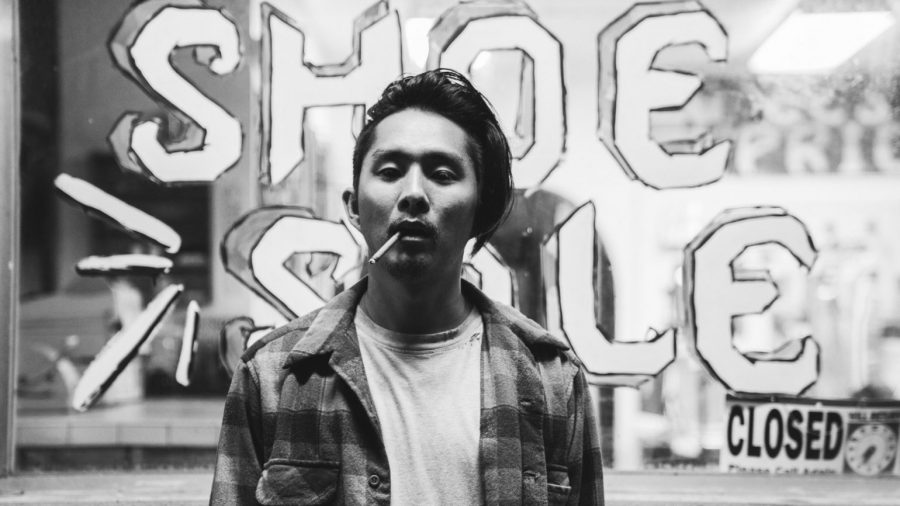
Named after a slur for people of Asian descent, this 2017 film put Justin Chon on the map as a director. More than that, he also starred as the main lead in this raw and uncompromising period drama about Asian-Americans and the LA riots in 1992. Shot completely in black and white, it tells the story of Eli, a scrawny Korean-American, who runs his family shoe store with his brother, Daniel (David So), in several vignettes. They strike up an unlikely friendship with Kamilla (Simone Baker), a black kid from around the way, whose family is not happy with her hanging out with the two brothers. Amidst the ubiquitous violence in LA at the time, the Rodney King riots as well as a tragic shooting of a black teenager by a Korean convenience store owner, it shines the light on America’s intra-minority race relations and the more unseen stories behind them. A topic that has come back to haunt America in the 2020s. The film is fierce as it is funny, harsh as it is playful. Uplifting and unsettling.
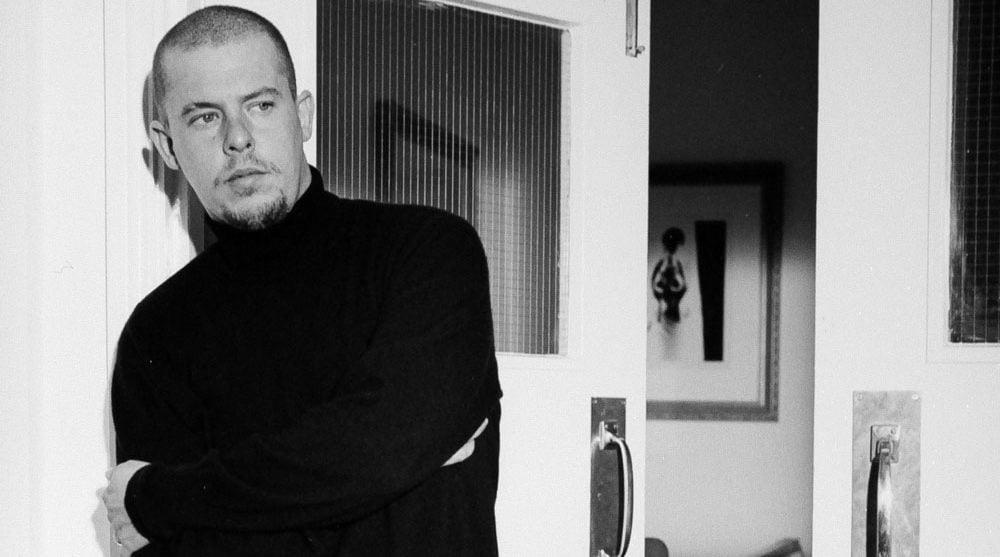
If you don’t know much about him or high fashion, don’t fret because this intelligent and informative film by Ian Bonhôte and Peter Ettedgui will chaperone you into this world with ease. Simply titled McQueen, this documentary is a poignant portrait of the British fashion icon that goes to great lengths to do him justice. With a reputation for shock tactics and controversy, McQueen grew from humble beginnings in a British council flat with three sisters into a world-famous enfant terrible of the 1990s for his quote unquote unwearable fashion and extravagant shows. Music fans might recognise his designs from Bjork’s album Homogenic or the music video to her song Alarm Call. Despite the documentary’s scope and depth, this is the type of film that leaves you wanting more and you might find yourself browsing through Wikipedia and YouTube for another hour to stay in the vibe. Alexander McQueen died of suicide in 2010.
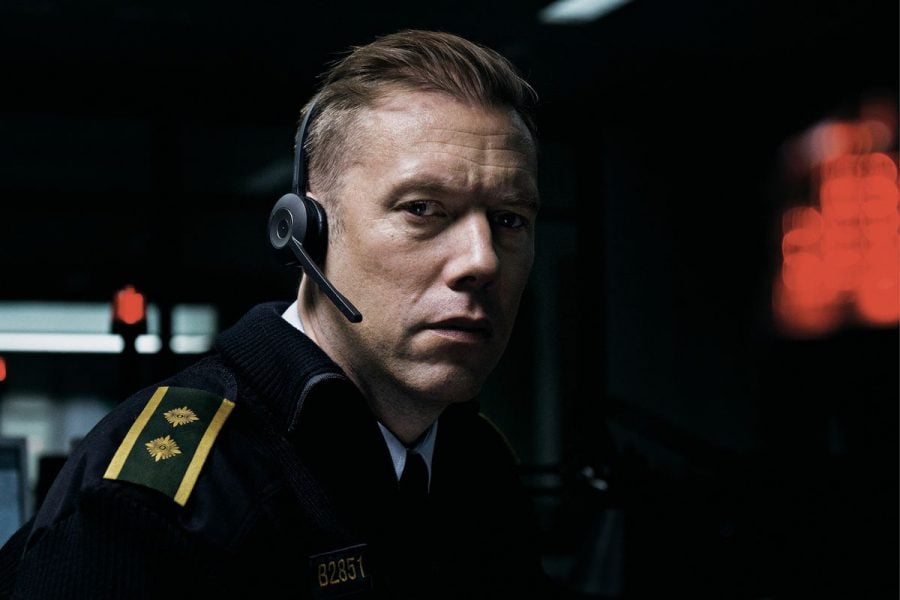
Before you press play on this movie, we highly recommend you take a few very deep breaths. This 2018 thriller is wound so tight, you will need the extra oxygen to get through it without fainting. In his directorial debut, Swedish-danish filmmaker Gustav Möller uses very little in terms of resources to create this breath-taking atmosphere. While The Guilty feels like it was made on a $100 million budget, all it physically brings to the table is one man in a dark room. It plays with our imagination instead of blinding it with special effects. Similarly, the plot is also short and sweet: a police officer is temporarily sent to do emergency dispatch, when he receives a call that turns an ordinary shift into a hell ride. This is all we are going to give away before you’ve completed your breathing exercises. The movie’s minimalist approach is held together by great acting from Jakob Cedergre, a screenplay to match, and incredible sound design. A real white-knuckle ride.
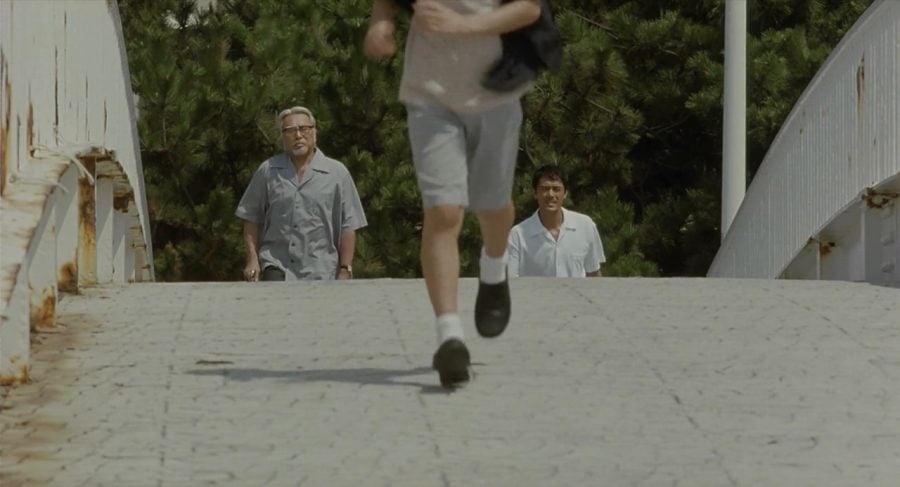
Koreeda is a master of the tender gaze. He deals so softly, elegantly, and emphatically with the characters in his films, it will make you feel like you’re watching life itself in all its complex, emotional splendor. Maybe this is particularly true for this movie because it has been inspired by Koreeda’s memories of his own childhood and the passing of his mother. Still Walking is a quietly toned movie spanning a period of 24 hours in the life of the Yokoyama family, as they gather to commemorate the passing of their eldest son. At the center of the story is the father, an emotionally distant man who commands respect both from his family and community. Opposite from him sits the other son, the black sheep, who seeks his father’s validation. Directed, written, and edited by Koreeda, this dynamic is one of many in this slice-of-life movie about how families deal with loss. And, however distant the culture or setting in Japan may seem to the outsider, you’re bound to recognize either yourself or your family among the tender scenes of this masterful drama.
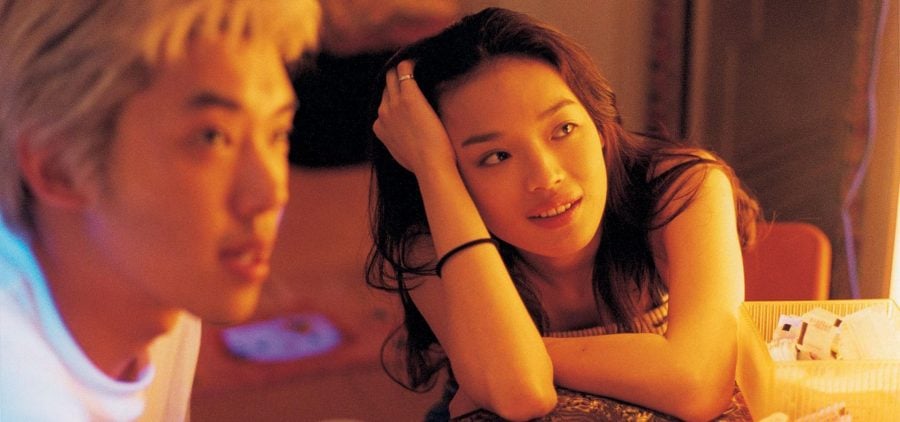
The atmosphere in Millennium Mambo is magical. The opening scene alone will leave you enchanted, with long walks through a tunnel-like space and dreamy techno music playing in the background. We are misled into thinking that this will be a movie full of colors and dance, and to some degree, this is true, as it portrays Taipei and its neon colors of green, pink, and blue, featuring dance sequences in a bar that serves flashy drinks. But as the movie develops, a chilling shadow is cast as we become entangled in a brutal relationship that is as full of cruelty as it is of love and lust. Narrated from the future, the story shows how the present-day protagonist, Vicky, grapples with her identity as she looks back upon her past self from ten years ago.
Chaotic, messy, but also peppered with moments of serenity and shot with flawless camerawork and cinematography, Millennium Mambo makes time feel fluid, and serves as a reminder that no matter how rough the journey may be, everything is always okay in the end.
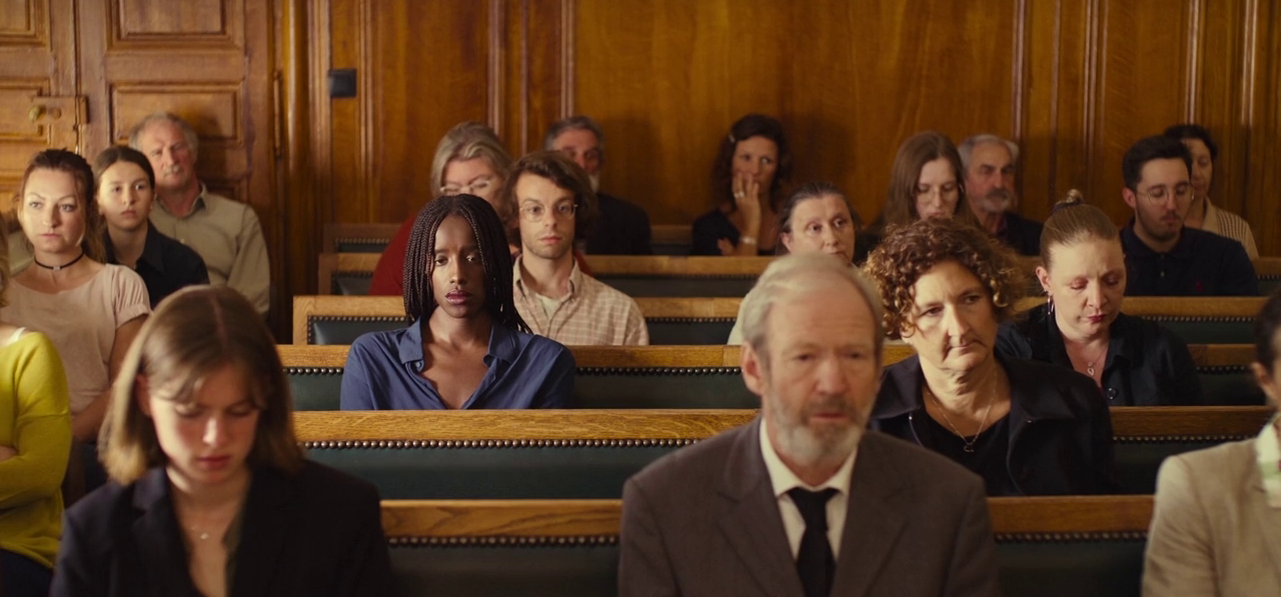
Nothing about Saint Omer is easy. A female Senegalese migrant (Guslagie Malanga) is put to trial for committing infanticide, but throughout the film, it becomes clear how much of a victim she is too, of an uncaring and deeply prejudiced society. “What drove her to madness?” Her attorney asks at one point. We’re not sure. We’re not necessarily asked to side with her, nor answer the many hard-hitting questions brought up in the film, but we sit with the uneasiness of it all and, in that silence, confront our ideas about motherhood, womanhood, personhood.
This confusion is what makes the film so compelling. Despite the court’s best efforts, Laurence isn’t meant to be understood. She’s meant to be an example of the ever-ambiguous, forever-complicated, always-hurt person. It’s human nature after all to be this complex and messed up. The film shows us that the best that we can do in situations like this is to listen, understand, and as our protagonist Rama (Kayije Kagame) does, make peace with the noise.
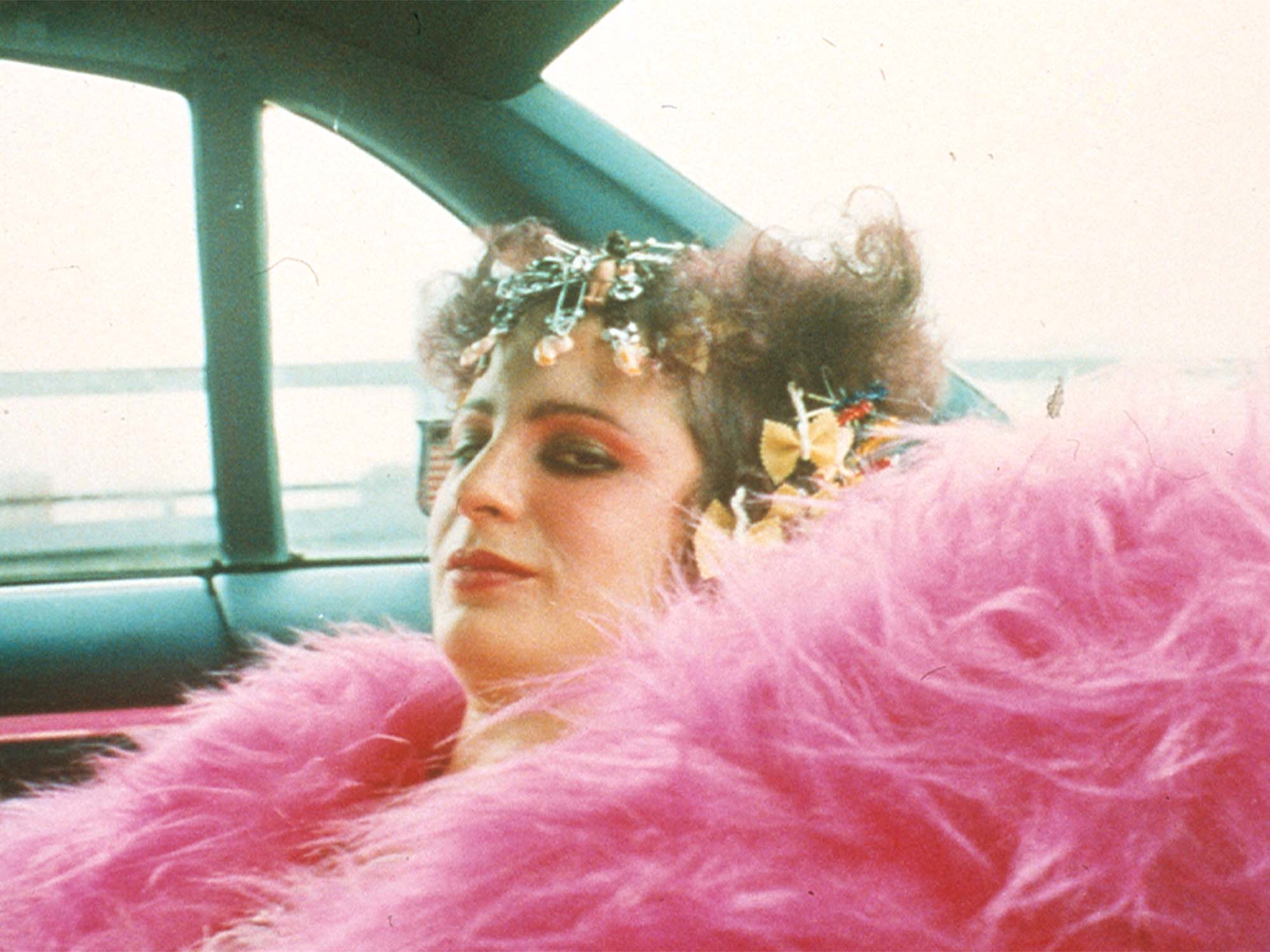
In All the Beauty and the Bloodshed, documentarist Laura Poitras (Citizenfour, My Country, My Country) lends her empathetic and incisive lens to a subject so passionate and imaginative, she ends up collaborating with Poitras to co-create the documentary about her life. The subject is Nan Goldin, one of the most influential photographers of the late 20th century.
The documentary captures Goldin’s work as a queer artist and anti-opioids activist, intertwining both aspects to tell a nuanced and incredibly important story about freedom, identity, and self-expression. This incredibly complex, encompassing, and vibrant feature won the top award at the Venice Film Festival, besting 19 other films from around the world.
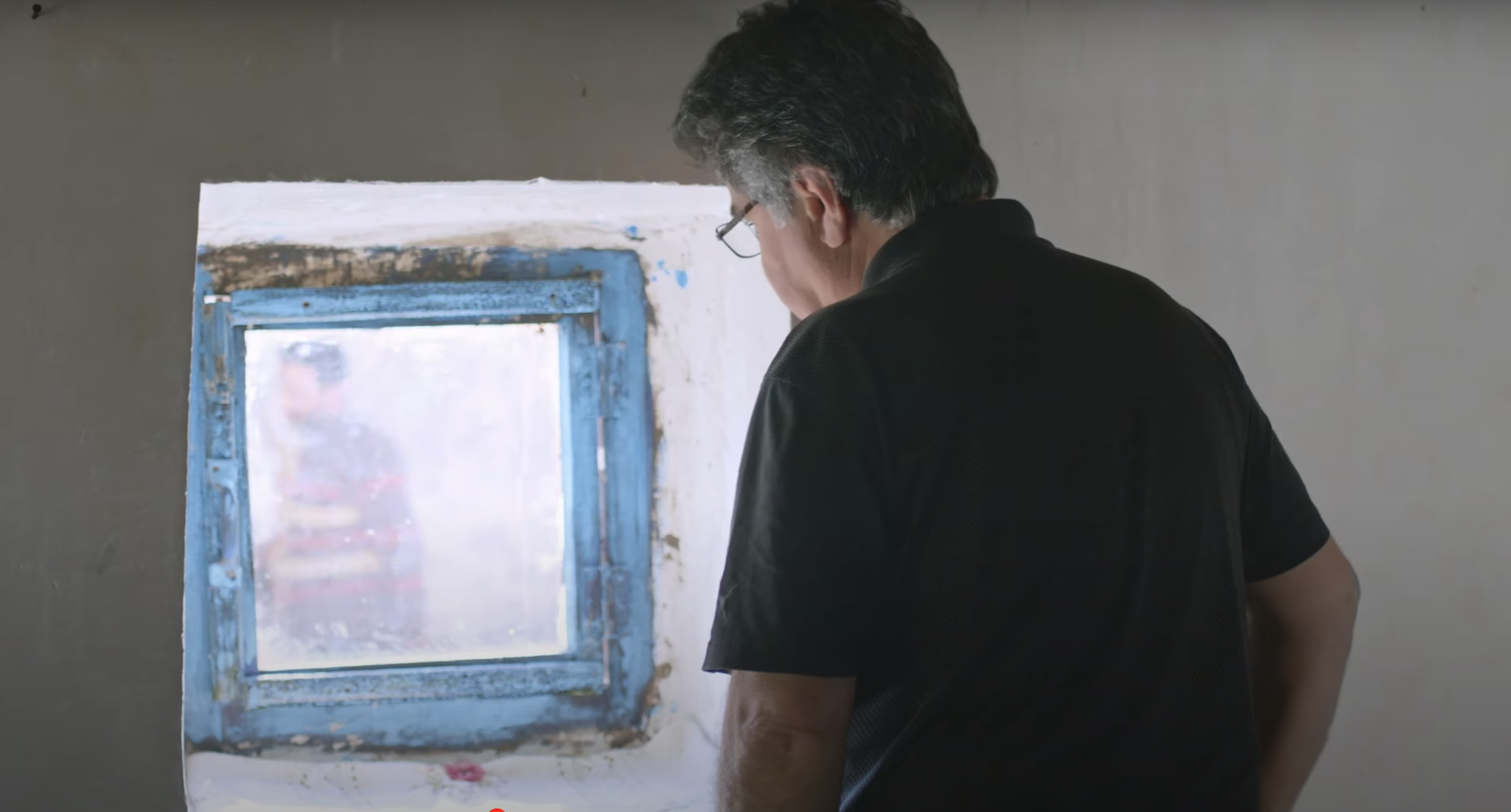
The Iranian director Jafar Panahi has faced constant persecution from his country’s government for over a decade, for his career of sharply political films speaking truth to power. In fact, No Bears—which was shot in secret, in defiance of the government banning him from filmmaking for 20 years—had its initial festival run in 2022 while Panahi was in prison. Evidence of Panahi’s drive to keep making his movies, no matter what, are clear in this film’s limited resources and occasionally inconsistent video quality. But even those obstacles can’t get in the way of his vaulting ambition.
No Bears operates on several different layers that all express Panahi’s growing frustration with—but also his commitment to—making art that only ever seems to put himself and other people in harm’s way. At its base level, this is a suspenseful small-town thriller, as an exiled Jafar Panahi (playing himself) tries to evade suspicion from the villagers around him. At the same time, Jafar is struggling to direct a film remotely, which creates a strain on his production crew. On top of that, the characters in his film undergo their own drama, seeking asylum out of Turkey. All of this is edited together under a stirring screenplay written with heart, humor, and the hope that the institutions that try to scare us will never keep us in the dark forever.
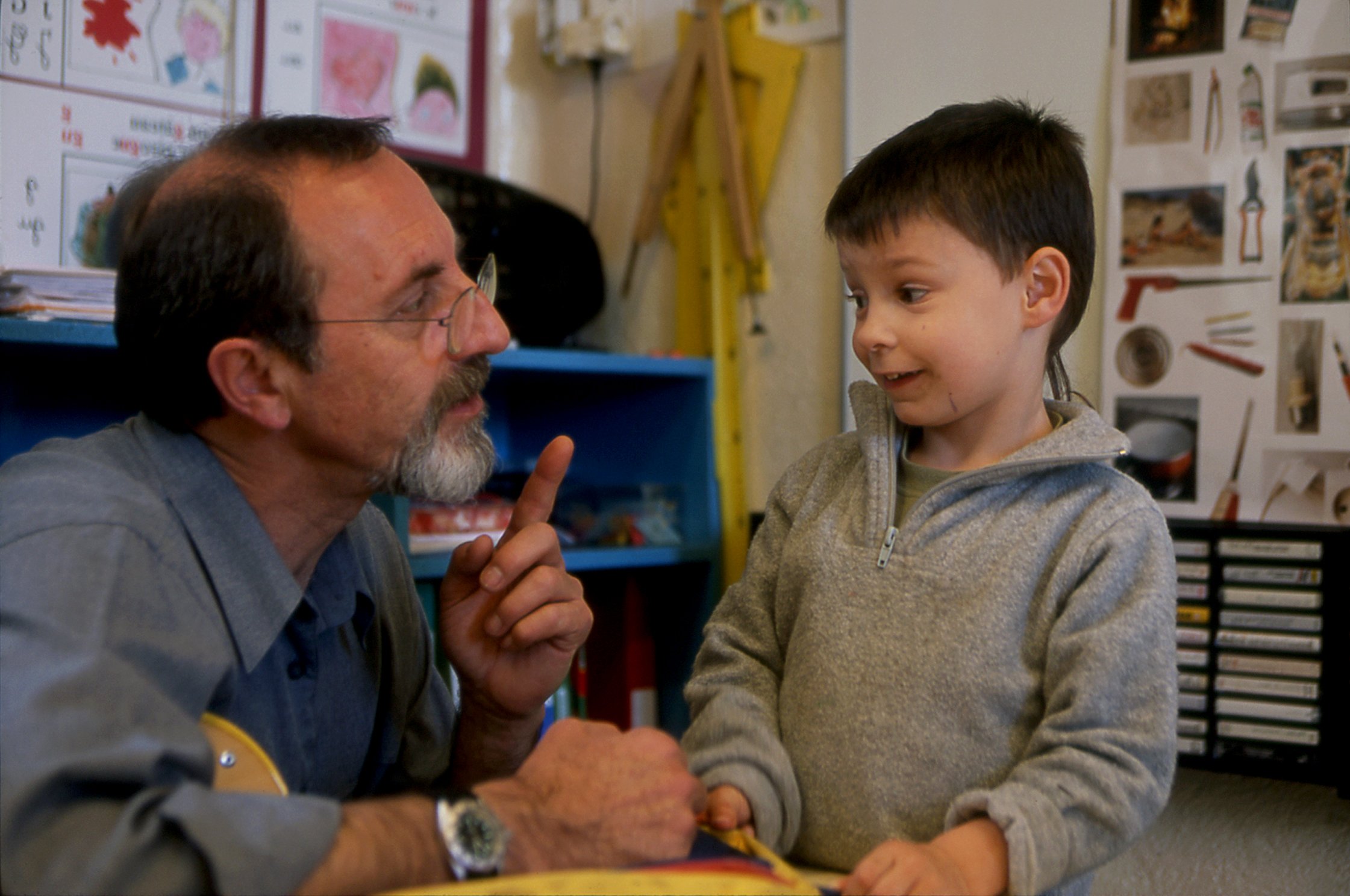
This gorgeous documentary opens on the snowy fields of its rural French setting, but the single classroom it spends much of its time in couldn’t be warmer or more inviting. That comforting atmosphere — which the film imbibes, too — is all thanks to the kindness and patience of Monsieur Lopez, the man responsible for the education of all of the village’s kids (up to age 11). Chronicling the final year of his career before retirement, this doc shares the instinctive empathy its chief subject has for his pupils and, accordingly, shoots them quite simply, trusting that the high drama of their little lives is enough to sustain the film.
And it is: from the cheeky antics of happy-go-lucky four-year-old Jojo to the crippling anxiety of older kids grappling with parental illness and the terrifying move to middle school, we’re plunged deep into a full spectrum of raw emotion. Inspiringly, Monsieur Lopez doesn’t just teach the kids maths and spelling — he also gently coaches them in off-syllabus skills, like talking about feelings and reconciling differences (even turning a fraught relationship between two boys into loyal friendship by the end of the year). There’s so much to learn from him and his perpetually wonderstruck kids here.
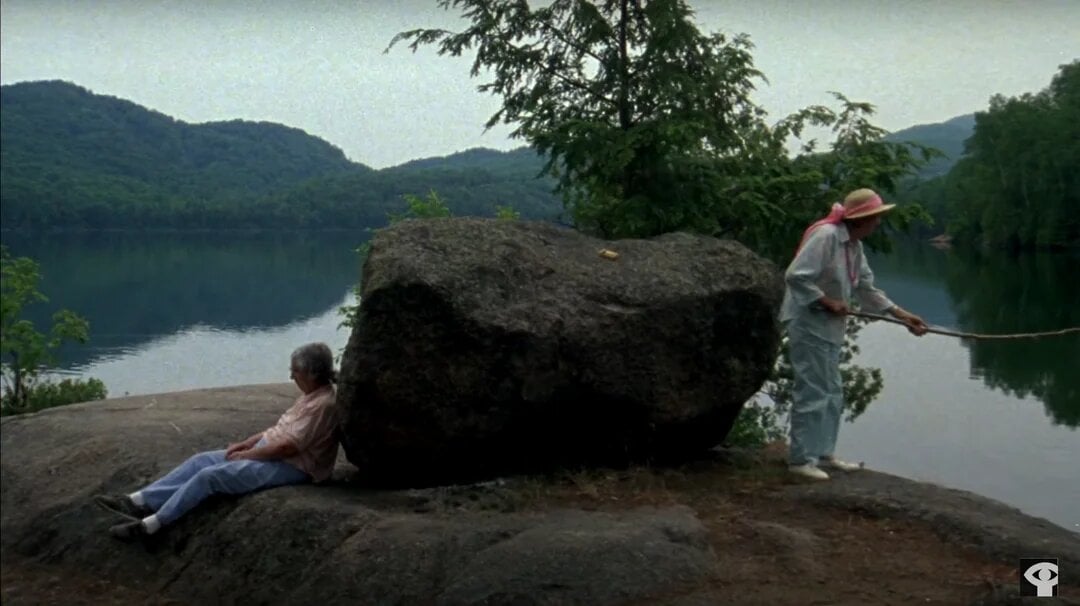
It’s hard to overstate just how lovely — and quietly radical — this largely improvised Canadian docudrama is. The scenario (seven elderly women and their tour bus driver are stranded in the Canadian wilderness for a few days) is contrived, but the rich, lively conversations that feature are all drawn from the women’s real lives. As they hunker down and get on with the business of surviving with meager food — something they manage to do largely thanks to the bushcraft skills of Mohawk elder Alice — the strangers reflect on their long lives and open up to each other about their lingering fears and still-burning hopes.
They’re a diverse bunch — featuring Cockney transplants, lesbian pioneers, and nuns — and the film’s brief cuts to real photos from the women’s earlier years both underscore the rawness of what they’re saying and serve as testaments to the rich fullness of their lives. The Company of Strangers grants these women the kind of serious consideration and space that they’re denied in so many public spaces, but it never feels like a strained exercise in redressing that imbalance. Instead, this is simply a gentle, gorgeous, and profoundly moving portrait of women who aren’t done living yet.
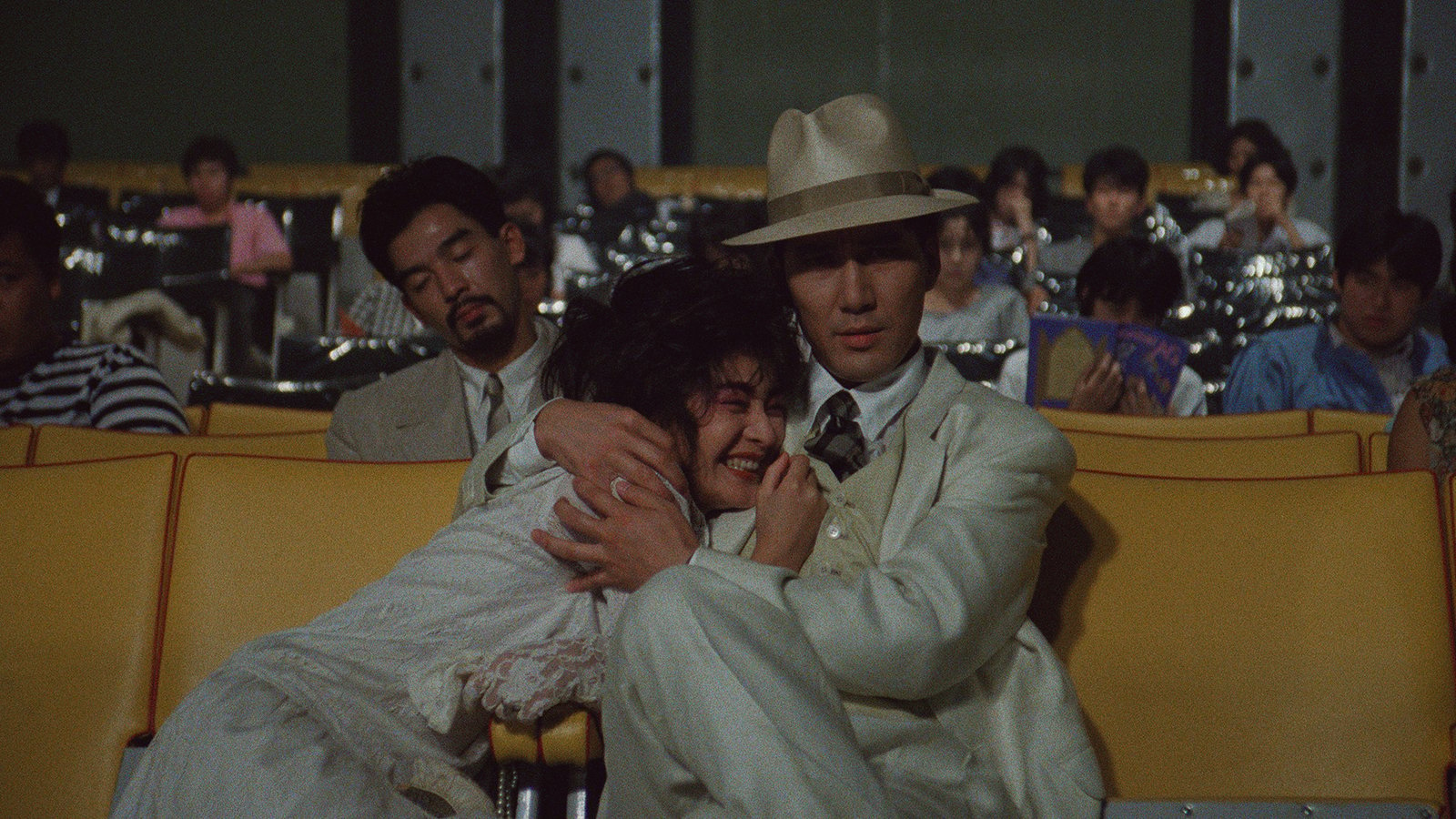
While billed as a “ramen western”, Tampopo satirizes plenty of other American genres, including, but not limited to: 1) the inspirational sports film, with Tampopo’s diligent training, 2) the erotic, arthouse drama through its egg yolk kiss, 3) the witty, social comedy pointing out the absurd in dinnertime tables, and 4) the melodramatic mafia romance with its room-serviced hotel getaway. But the film doesn’t buckle under the weight of carrying all these genres– instead, the customer vignettes are all delicately plated to balance out the hearty journey of a store owner learning about ramen and the bemused, yet cohesive contemplation about food. Tampopo is one of a kind.
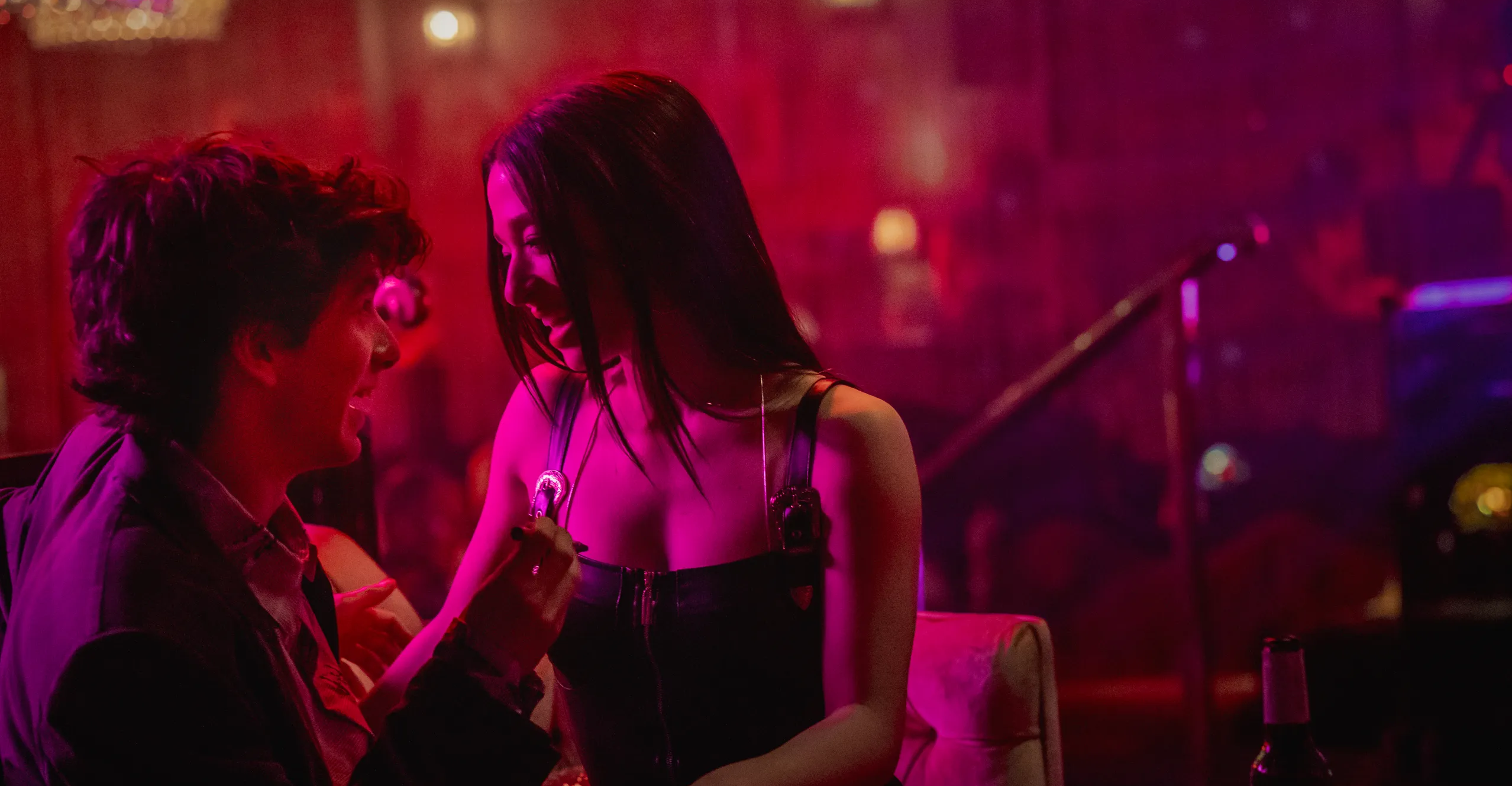
One thing about director Sean Baker’s movies is that everything is rooted in class. Anora might charm as a romance, delight as a comedy, and dazzle as a realistic look into sex work, but at the end of the day, it’s a movie about labor, specifically exploitation labor, making the movie as painfully realistic as it is hopelessly romantic. It’s like the anti-Pretty Woman in that way. There’s no doubt it will have the same cultural impact (it’s already starting heated discourses on the internet) and will be remembered for just as long. The heated performances, breathtaking cinematography, and subtly hilarious script are all bonuses to this gem of a film.
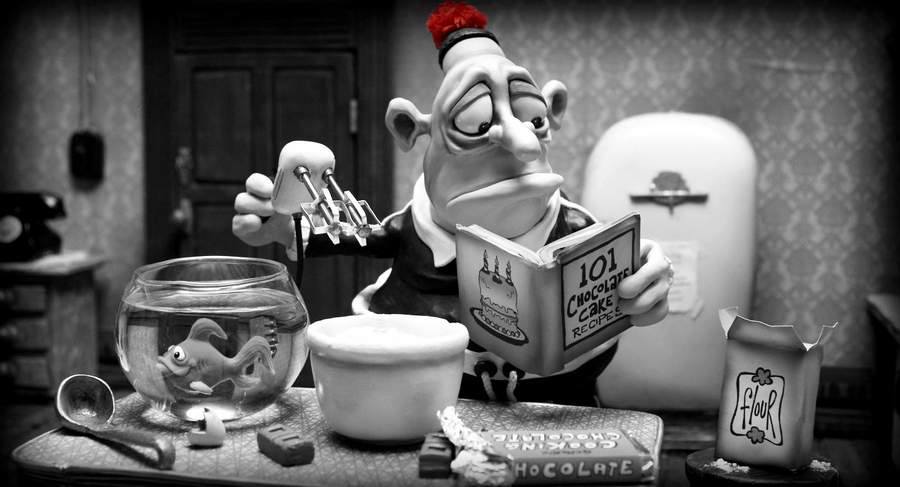
Mary and Max is the tale of an overlooked 8-year-old girl from Australia starting an unlikely friendship via mail with a middle-aged Jewish man from New York. Shot completely in monocromatic claymotion, it is the first feature film by Australian stop-motion animation writer, Adam Elliot, and the first ever animated film to score the opening slot at Sundance Festival. In all its playful absurdity, Mary and Max is an emotional and wise gem of a film that examines the human condition through the eyes of a troubled child and an autistic American. In contrast to its clay-based animation, it deals with some pretty dark and adult themes, but succeeds in balancing those with happiness and absurd humor. Moreover, Elliott gathered an ensemble cast to do the voice-overs, which includes Philip Seymour Hoffman, Toni Collette, and Eric Bana. We recommend it 8 condensed milks out of 10.

Memento is a right of passage movie – the kind of movie 19 year olds watch and decide, “holy hell, cinema is cool.” Call it the most cinematic mainstream film or the most mainstream serious film of the last 20 years, Memento also marks the beginning of the reign of Christopher Nolan. A deep and gripping meditation on forgetting helmed by a technical virtuoso, Memento is a puzzling emotional trip.

Bittersweet like Belgian chocolate, this is a coming-home movie. It will leave you raw and empty as well as full of life, and it will most certainly have you appreciate the mournfulness of bluegrass music. Based on a play co-written by Johan Heldenbergh, who also stars as Didier, the male lead, this is intricately written, thoughtfully directed, viscerally acted cinema. Bluegrass enthusiast and band leader Didier falls passionately in love with Elise, a spirited tattoo artist. They sing together, start a life together. But when their little girl falls gravely ill, everything changes. Because this gem of a film by director Felix van Groeningen excels at creating intimacy and empathy between us viewers and this beautiful family’s fate, you will feel everything you see. Incredibly well-made and gut-wrenching drama.
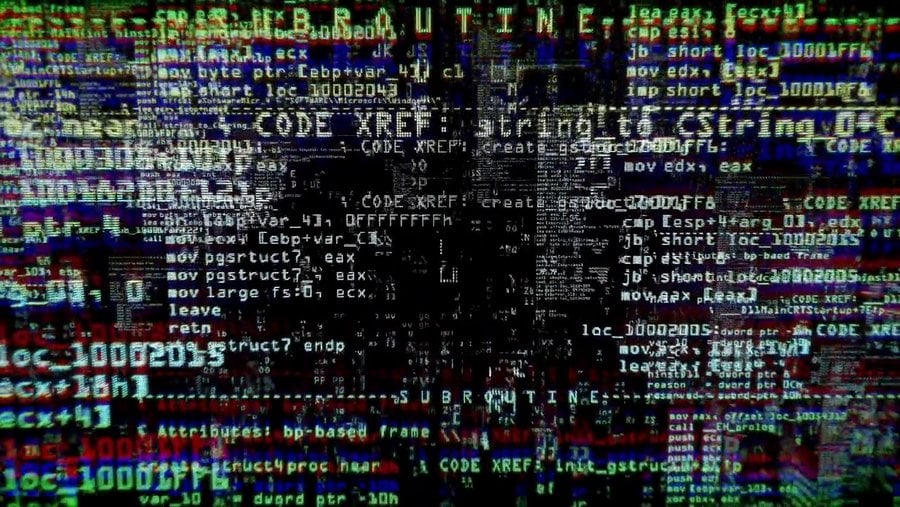
Told in urgent fashion with first-hand accounts from cyber professionals from around the globe, Zero Days is a fascinating and alarming documentary about the Stuxnet computer virus. Originally codenamed “Olympic Games” by the people that fathered the worm, Stuxnet is a virus in the true sense of the word. It not only maliciously feeds off the host, but it also replicates itself as soon as it is implanted, which is exactly what it did when it was used by the US and Israeli secret services to sabotage centrifuges inside Iran’s Natanz nuclear plant—making them spin out of control. All this is brilliantly unpacked by renowned documentary maker Alex Gibney (Going Clear, Enron: The Smartest Guys in the Room), who manages not only to detail the complexities of advanced coding in a remarkably evocative manner, but also to send out a well-researched alarm call about the future of war. Ultimately, the message here is that cyber warfare is very much part of our new shared reality. This film deserves to be seen by anyone who is even remotely concerned about global security in the 21st century.
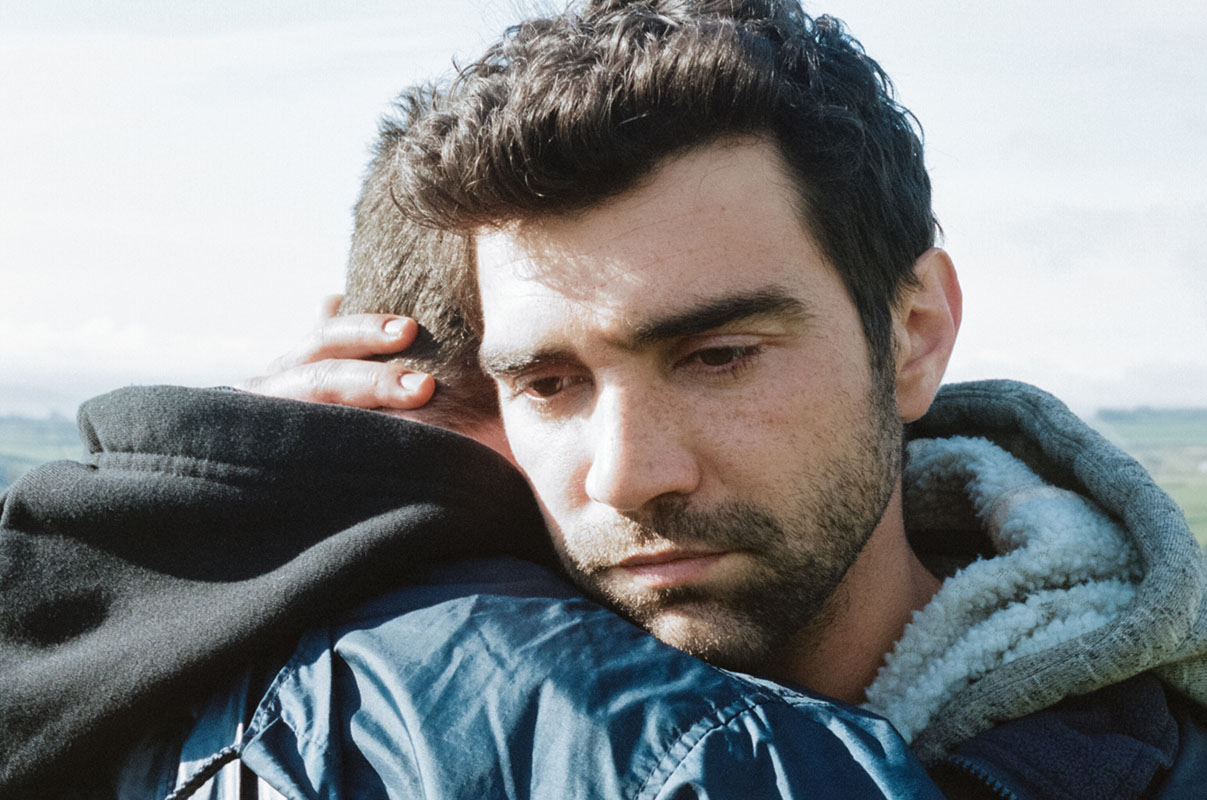
You might call Francis Lee’s spellbinding debut a Call me By Your Name without the privilege and pretentiousness, and we think it’s a better movie because of it. God’s Own Country tells the story of Johnny Saxby (Josh O’Connor), a farmer’s son who is trapped working on the family farm, who dulls his frustration and misery with binging at the pub and aggressive sex with strange men—his true desire is not so much repressed by society’s rampant homophobia here, but by his family’s emotional callousness. When his strict and icy father suffers a stroke, things get worse for him still. Then, during lambing season, help arrives in the shape of watchful, radiant, and strikingly handsome Romanian seasonal worker, Gheorghe (Alec Secareanu), whose warmth of character and professional competence feels threatening to Johnny at first. But when they withdraw to the hills to repair a stone wall, Johnny’s aggression gives way to passion as Gheorghe helps him to feel, to love, and to see beauty in the country around him. God’s own country. A beautiful, stirring, and passionate debut!
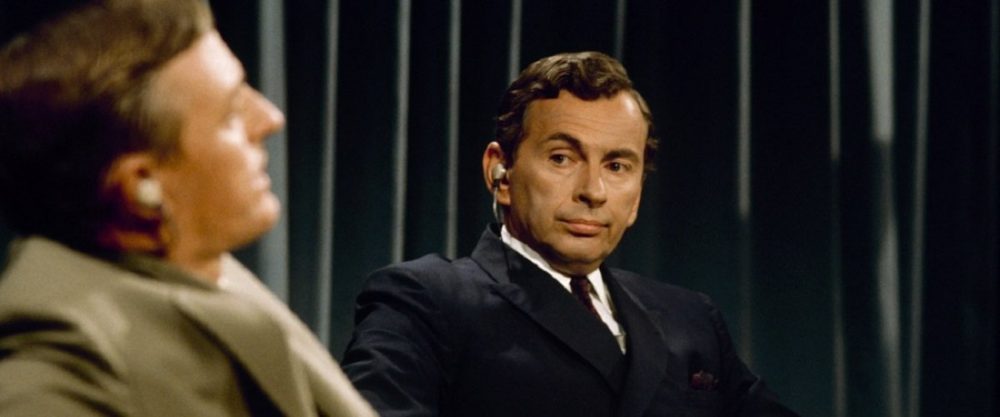
Do today’s political talk shows often feel like meek, scripted, and predictable affairs to you? Would you rather have that euphoric feeling you get when watching someone smart and eloquent talk about important ideas? Multiply that by two and you get Best of Enemies. In 1968, ABC covered the Republican National Convention in Miami Beach and the historic Democratic National Convention in Chicago by airing a 10-part series of nationally televised debates between two ideologically opposed and sharp-minded public intellectuals: Gore Vidal and William F. Buckley. The former was an ardent and openly bisexual liberal and progressive. The latter an elitist cultural conservative, whose magazine, National Review, vowed to always support the most far-right candidate viable for office. This confrontational set-up is not only credited with ushering in an era of pundit politics, but also with producing some of the most entertaining intellectual debate ever to be seen on TV. When’s the last time you saw anybody unironically being called a “crypto-Nazi” on national television?
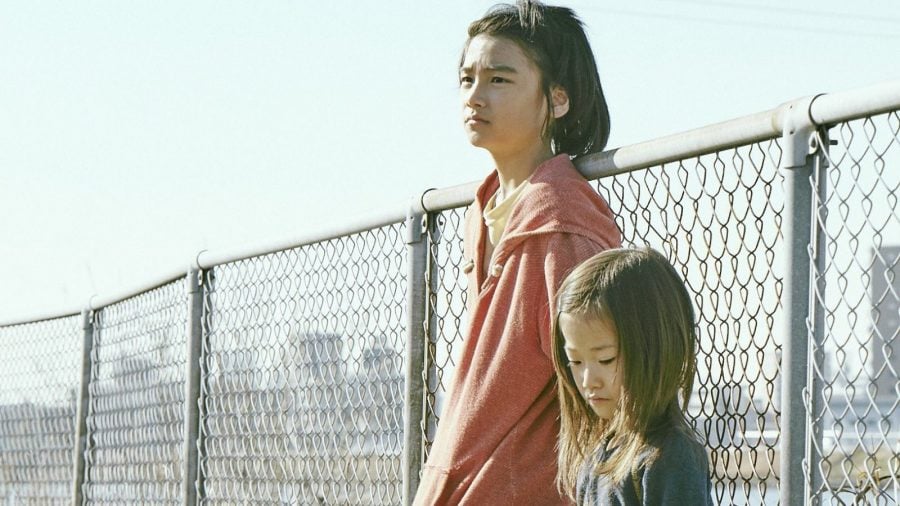
The title of this 2018 Palme D’or winner is not to be taken metaphorically: Shoplifters is about a marginalized family of day workers, crooks, and small-time outlaws, who live on the fringes of Japanese society. Osamu (Lily Franky) and Nobuyo (Sakura Andô) both have jobs but spruce up their low-wage income by committing petty crimes. One day in winter, Osamu takes in a bruised girl he finds outside in the cold and introduces her to the family in his ramshackle house. But when the second-youngest member of the family, Shota (Kairi Jyo), finds himself teaching her how to shoplift, he faces a moral dilemma that threatens to unravel the family’s fabric. If you were hitherto unfamiliar with the unique storytelling and social realism of Hirokazu Koreeda, we really recommend checking it out—as well as his other movies, namely, Still Walking, Like Father, Like Son, I Wish, and After the Storm. His 2018 outing features the last ever performance of Kirin Kiki, who plays the elderly matriarch and passed away that same year. Like many of Koreeda’s works, Shoplifters is an understated, beautiful, and mysterious study of the effects of poverty and trauma and a delicate portrait of a family in Japan’s urban underbelly.
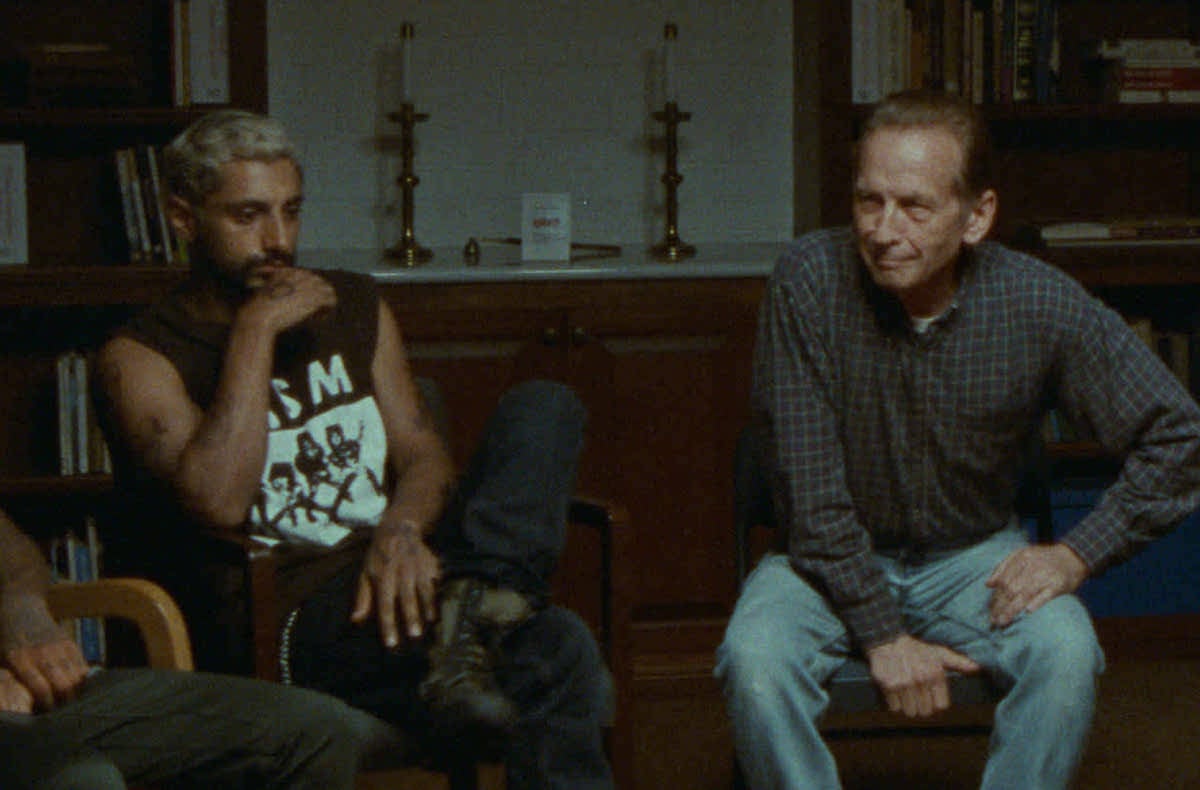
Ahmed plays Ruben Stone, a heavy metal drummer, who plays in a band and lives in a tour bus with his girlfriend Lou (Olivia Cooke). Quickly after meeting the couple, we witness the touring musician drastically losing his hearing. As recovering addicts with little financial means, they soon run out of options. Lou desperately wants to prevent Ruben’s relapse into addiction and so she helps him retreat to a deaf community group home, run by the illustrious Joe, a truly amazing character played by the equally amazing Paul Raci, himself the hearing son of deaf parents. There is something deeper going on though: the question of what disability is, and how, despite how it drastically changes Ruben’s life, it might not be his biggest problem. In addition to the stellar acting and delicate writing, we experience his condition through the incredible sound design used by director Darius Marder, complete with muffled conversations, garbled noises, and piercing silence. This is a movie to be taken in completely. Above all, it’s about Riz Ahmed’s performance. He learned to play drums, sign language, and studied deafness ahead of the shooting, and he does not strike a wrong note.
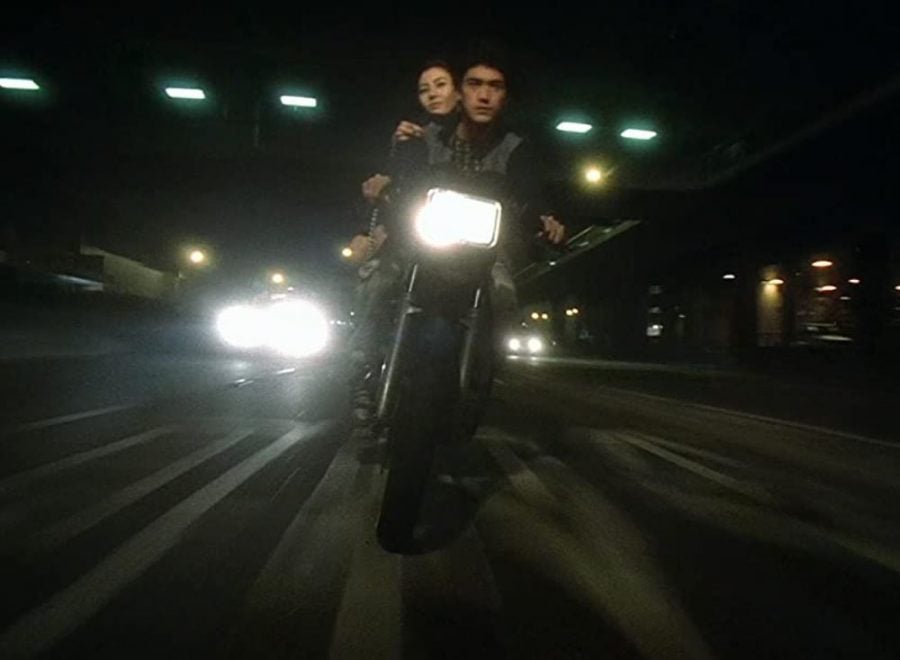
Wong Kar-wai’s dreamlike masterpiece is a perfect portrayal of the wilderness of a city at night. A hitman trying to get his job done, a woman hunting the prostitute who stole her boyfriend, and a mute who loves his father’s cooking: each of the characters in Fallen Angels is eccentric and interesting in their own way. Along the watch, you may find yourself overwhelmed by all the events taking place as each character fights to stay alive and satisfy their desire, but this is exactly where the beauty lies. A hazy view of Hong Kong is the backdrop for the characters’ riveting stories, blending loneliness, lust, as well as missed opportunities. Fallen Angels is a remarkably balanced film that not only exposes the coldness of people in the city, but also their warmth.
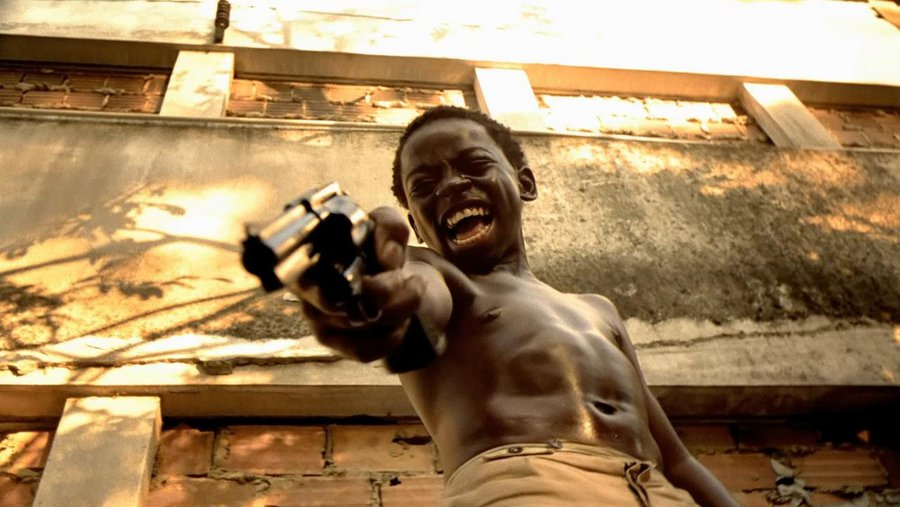
This movie will punch, kick and slap the crap out of you. Something that will be hard to believe after you watch it – it is based on a true story. Filmed and set in the poverty-stricken favelas of Rio de Janeiro, it follows two young men who choose two opposite paths; one an aspiring drug leader and the other an aspiring photographer. City of God is their story; a movie filled with great performances (from mostly non-professionals), and an experience that is as compelling as it is adrenaline-inducing.
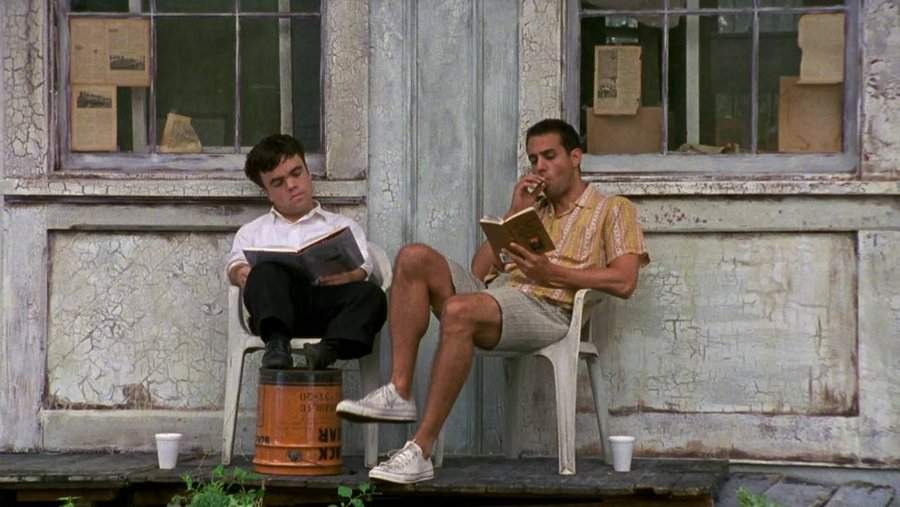
The Station Agent is about loneliness, change and friendship. Sounds corny right? It’s not. The characters are developed, they have their own reasons for the choices they make and nothing feels forced, neither actions or conversations. It’s a small and wonderful movie about a little man that moves out of the city and his comfort zone when his only friend dies, moves to said friend’s old train station and sets his life there. From there on it follows his social interactions with a slew of people, the relationships he forms with them. Oh, and the little man? Peter Dinklage (Tyrion Lannister), who pulls off a great performance, albeit a quiet one.
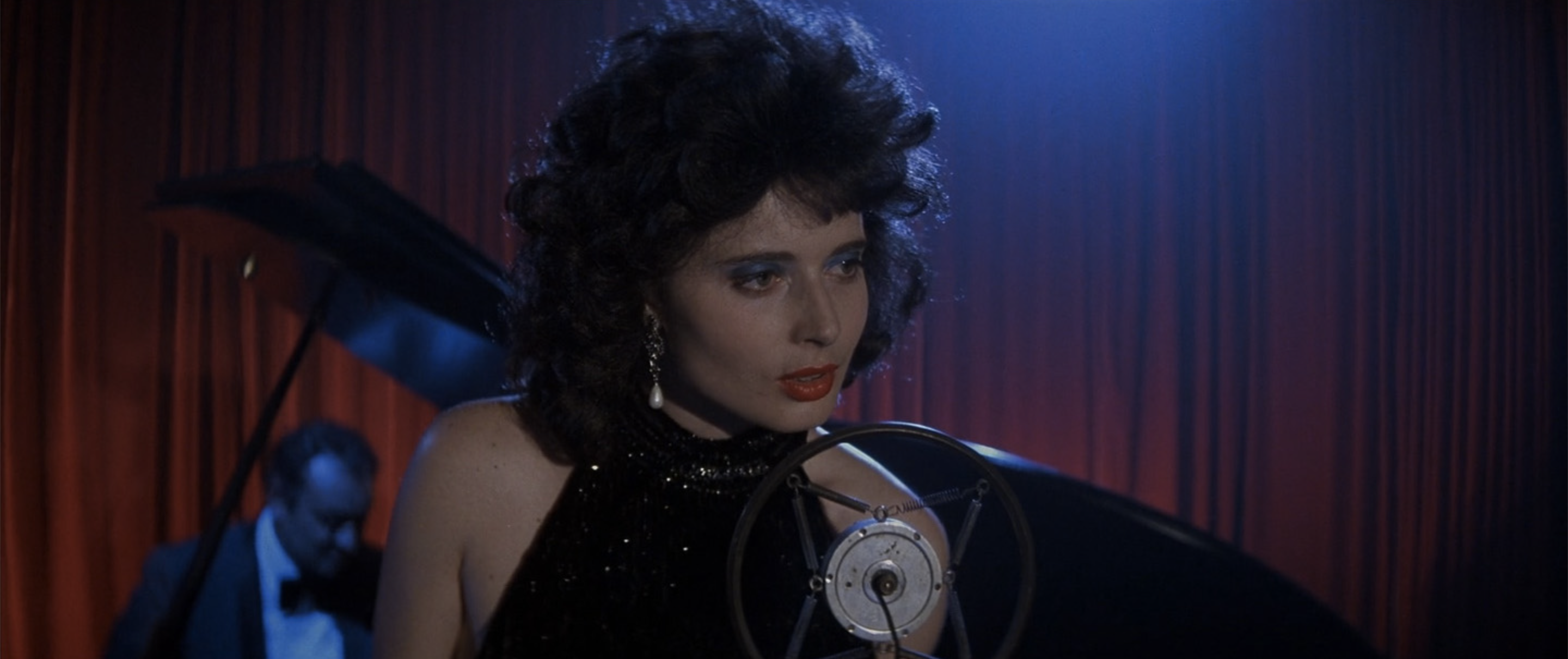
David Lynch’s star-studded provocation Blue Velvet was both revered and criticised upon its release because of how heavily it leans on sexuality and violence to advance its plot, but today the film’s hailed as a contemporary masterpiece. Still, scenes with that kind of content are quite hard to stomach in combination with Isabella Rossellini’s depiction of an unstable, delicate singer named Dorothy. But Dorothy is surely not in Kansas anymore… It takes a young college student (Jeffrey Beaumont played by Kyle McLachlan) who becomes fascinated with her as part of his self-appointed detective quest, to uncover deep-rooted conspiracies. In his endeavours, Jeffrey is joined by butter blonde Sandy (Laura Dern), and the twisted love triangle they form with Dorothy in the middle is one for the ages. Dennis Hooper stars as one of the most terrifying men on screen and Lynch regular Angelo Badalamenti scores the film with an eerie precision like no other.
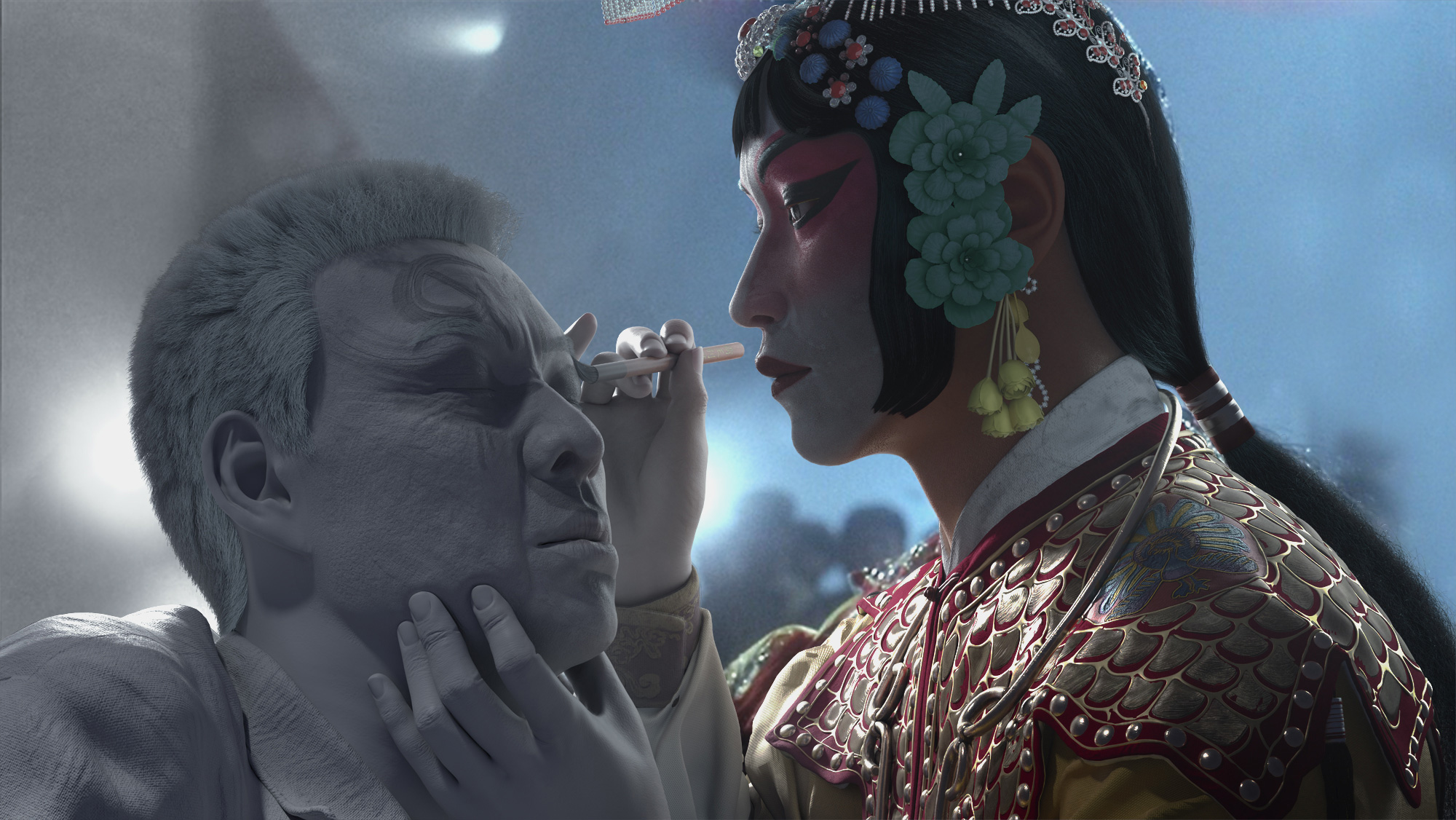
Thirty years after its release, the first ever Chinese language Palme d’Or winner has finally been made more accessible through Criterion Channel through its uncut 4K restoration. Farewell My Concubine is one of those classical epics that is considered essential viewing, but even with its near 3 hour runtime, the film still holds up all these decades later with its startlingly heartrending love story and depiction of the tumultuous shifts of 20th century China. Director Chen Kaige masterfully balances both sides, tapping into the pain Dieyi (Leslie Chung) chooses as he clings to the classical opera, the very art form that allows him a sliver of his unrequited love to be realized, but that is also limited depending on whichever government is in charge at the moment. It’s possibly one of the most beautiful and most miserable films ever made.
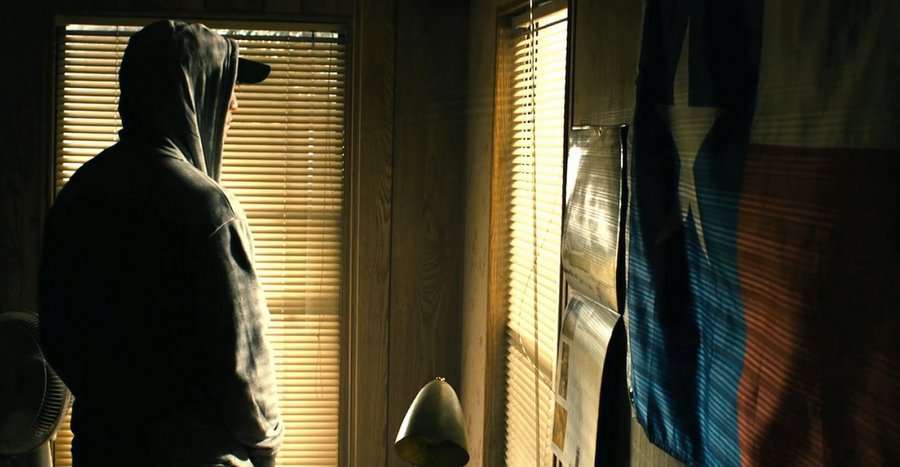
Simply titled The Imposter, this film by English documentary maker Bart Layton tells an unbelievable tale. Any plot summary doing this film justice has to err on the side of brevity, which is why it will be only one line long: this is the story of Frederic Bourdin, a serial imposter nicknamed “The Chameleon”, who at one time claimed to be the missing son of a family from Texas. The film is so well-shot that it is hard to tell fact from fiction at times and it will force you to remind yourself that this is in fact real life. Expect twists and turns at every corner and brilliant storytelling from real people. If Christopher Nolan created a 48-hour story, it would pale in comparison to this film.
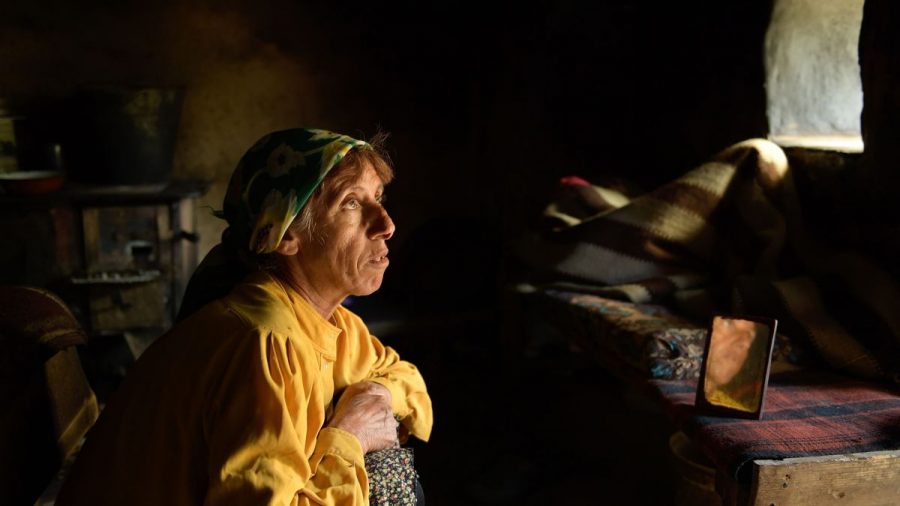
The first movie to be nominated for both the Documentary and Foreign-Language Oscar categories and the most awarded film of the 2019 Sundance Festival, Honeyland quietly accompanies the last wild beekeepers in Europe over three years. It portrays the lonely and primordial life of Muratova, which is centered around harvesting honey according to the rules of her ancient ancestors and caring for her ailing mother.
Originally planned as an environmental documentary, this film evolved into something completely different, as it often goes with immersive documentaries, when the Macedonian directors Tamara Kotevska and Ljubomir Stefanov met beekeeper Hatidže. The film takes another sudden turn when Muratova’s life is upended by a nomadic family settling next door, threatening her tradition, her way of life, and her natural environment.
This unbelievable cinematic journey is a feast for the eyes thanks to the amazing work done by cinematographer Samir Ljuma. However, despite the awe-inspiring imagery, Honeyland never imposes on its subject, creating an incredible intimacy with Hatidže’s life and her natural environment. Breathtaking!

Daniel Day Lewis absolutely dominates the screen as Daniel Plainview, an oil man whose voice and means of business evokes a sense of calmness and confidence mixed with a terrifying presence. He goes through life by adopting a son, building oil fields near churches and religious people, and getting his way by any means necessary. However, over time, his true feelings, attitude, and his greed come to surface through the slick, mucky, and thick oil of his shell. Featuring an equally impressive performance from Paul Dano, the assured and expert direction and tremendous screenplay of Paul Thomas Anderson, Robert Elswit’s gritty award-winning cinematography; and the score from Radiohead’s Jonny Greenwood, There Will Be Blood is considered by many to be the best film of 2007, and the 2000’s, in general.
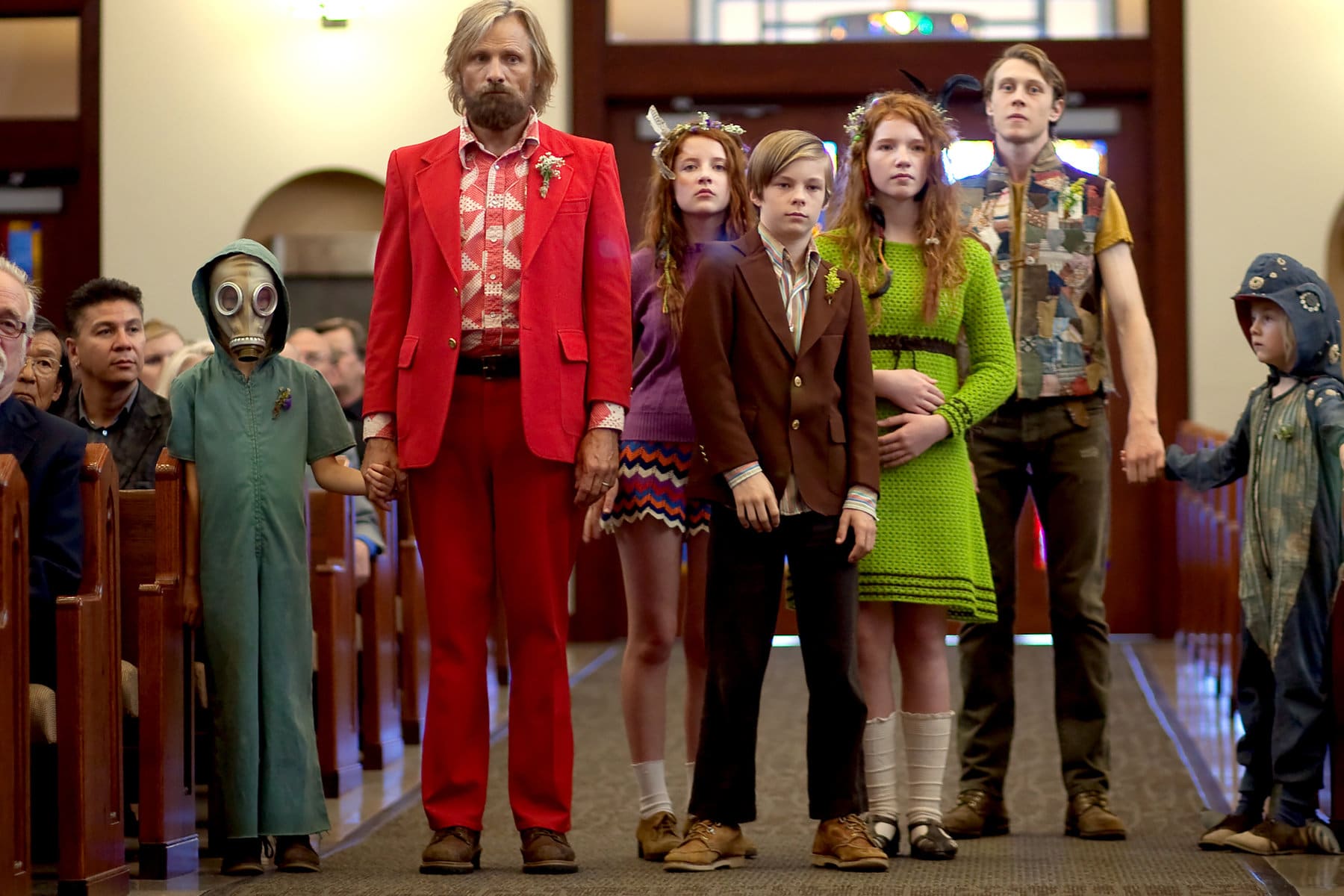
Former activists Ben Cash (Viggo Mortensen) and his wife Leslie drop out from modern consumerist society to raise their six children in the wilderness of the Pacific Northwest. They teach them how to raise and kill their own food, to survive in nature through boot-camp-like workouts, and homeschool them in literature, music, and left-wing philosophy. Instead of Christmas, they celebrate Noam Chomsky’s birthday. Then, one day, this unusual family life is shaken by a phone call and they are forced to leave their life of adventure to reintegrate into American life.
Directed by Matt Ross, who also brought you Good Night, and Good Luck, the film offers a poignant look at alternative living, the effects of modern technology, and the nature of good parenting. Viggo Mortensen is indeed fantastic as the grizzled father and was rightly nominated for a Golden Globe and the Academy Award for Best Actor. George MacKay and the entire cast of “children” also deliver terrific performances. As emotionally raw and thought-provoking as it is funny, Captain Fantastic will have the viewer decide if Ben Cash is the best father in the world or the worst.
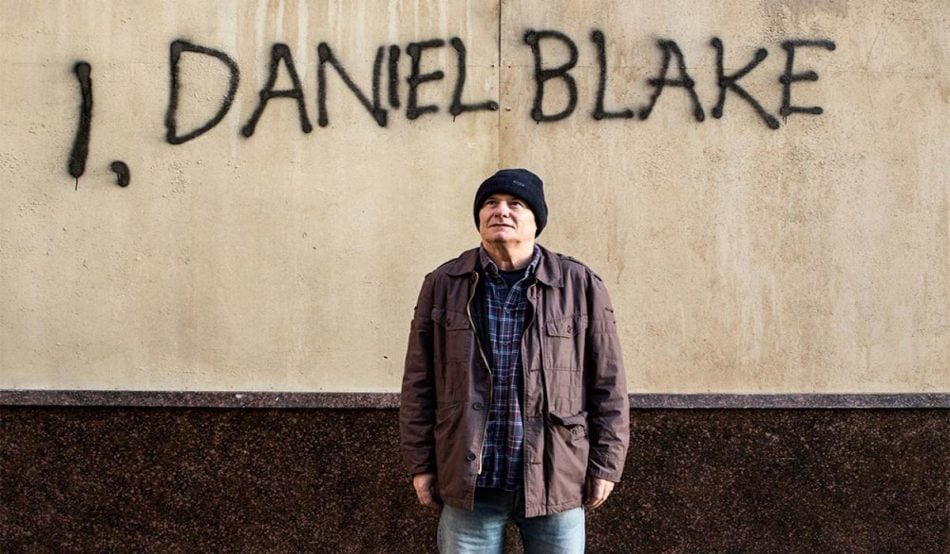
Revealing the gaps in the social safety net, I, Daniel Blake, is a tale centered around a blue collar worker navigating the welfare system in England. At a time where class and social mobility could not be more politically salient, this film calls into question the notion of the “citizen” and exposes the inaccessibility to the social protections in which one presumes entitlement.
At the forefront of this, is a heart-warming parable of paternal companionship between Daniel (played by Dave Johns) and a single mother – Katie – (played by Hayley Squires) who is wading through similar terrain. The acting in the film is unfathomably raw which cultivates the deepest source of gut wrenching compassion. Ken Loach has created a film that exposes the true power of empathy, leaving you feeling helplessly human.
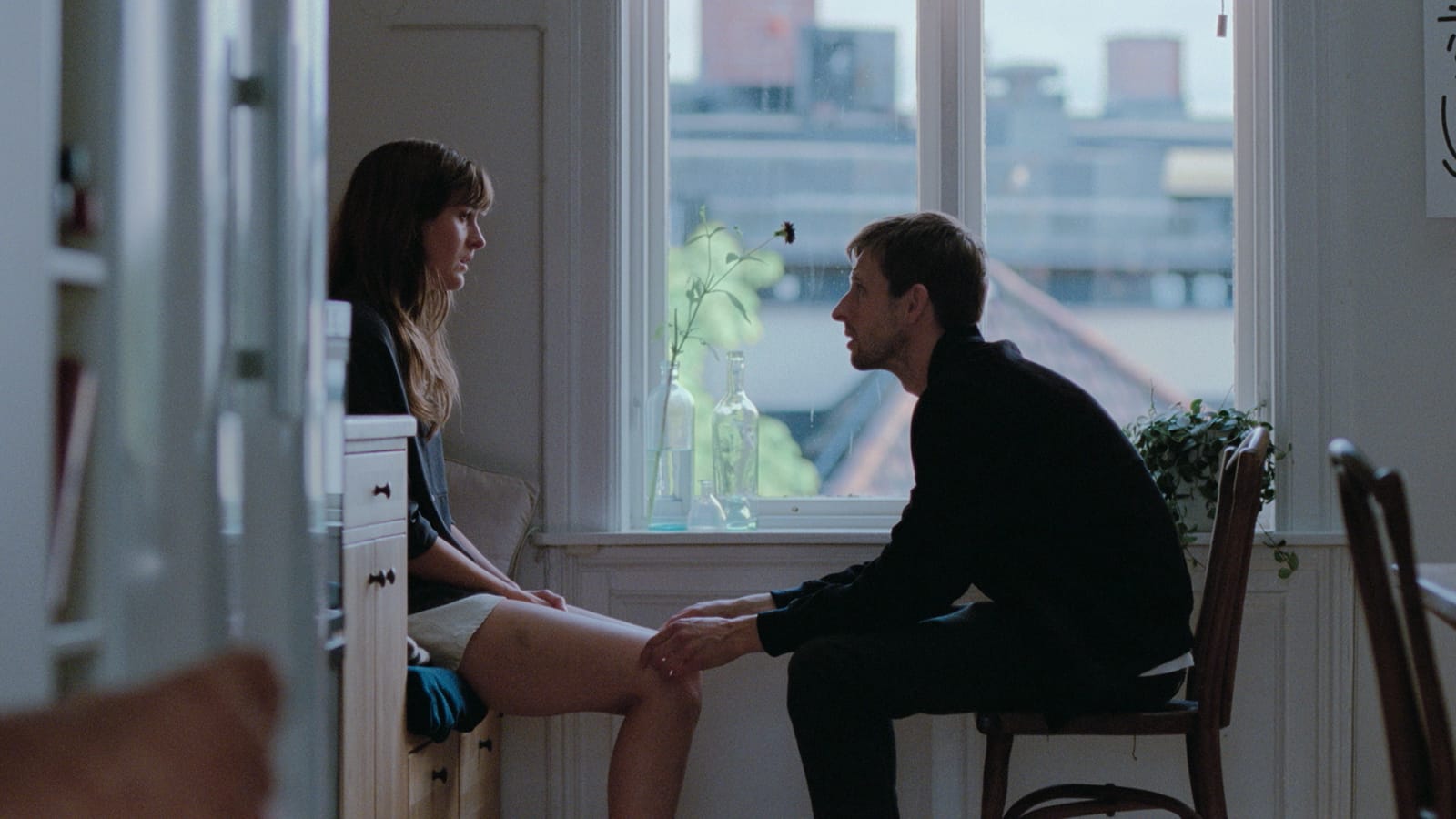
The film opens with Julie in her early twenties, longing to pursue a career in medical school. But after briefly testing the waters, she switches over to psychology, only to drop completely out of school and transform her hobby of photography into a professional career. This indecisiveness carries over in most aspects of her life, including and especially in romance, where impulse and desire drive her to run after what she believes to be love. The movie follows Julie as she navigates adulthood in modern Oslo—at once a specific yet universally relatable story about the growing pains of growing up.
With The Worst Person in the World, Joachim Trier scores again with another life-changing Norwegian drama about longing, love, grief, and finding your place in the world. His films can be quite sad but amidst all the drama, moments of happiness and hope are scattered throughout, as it is in real life.
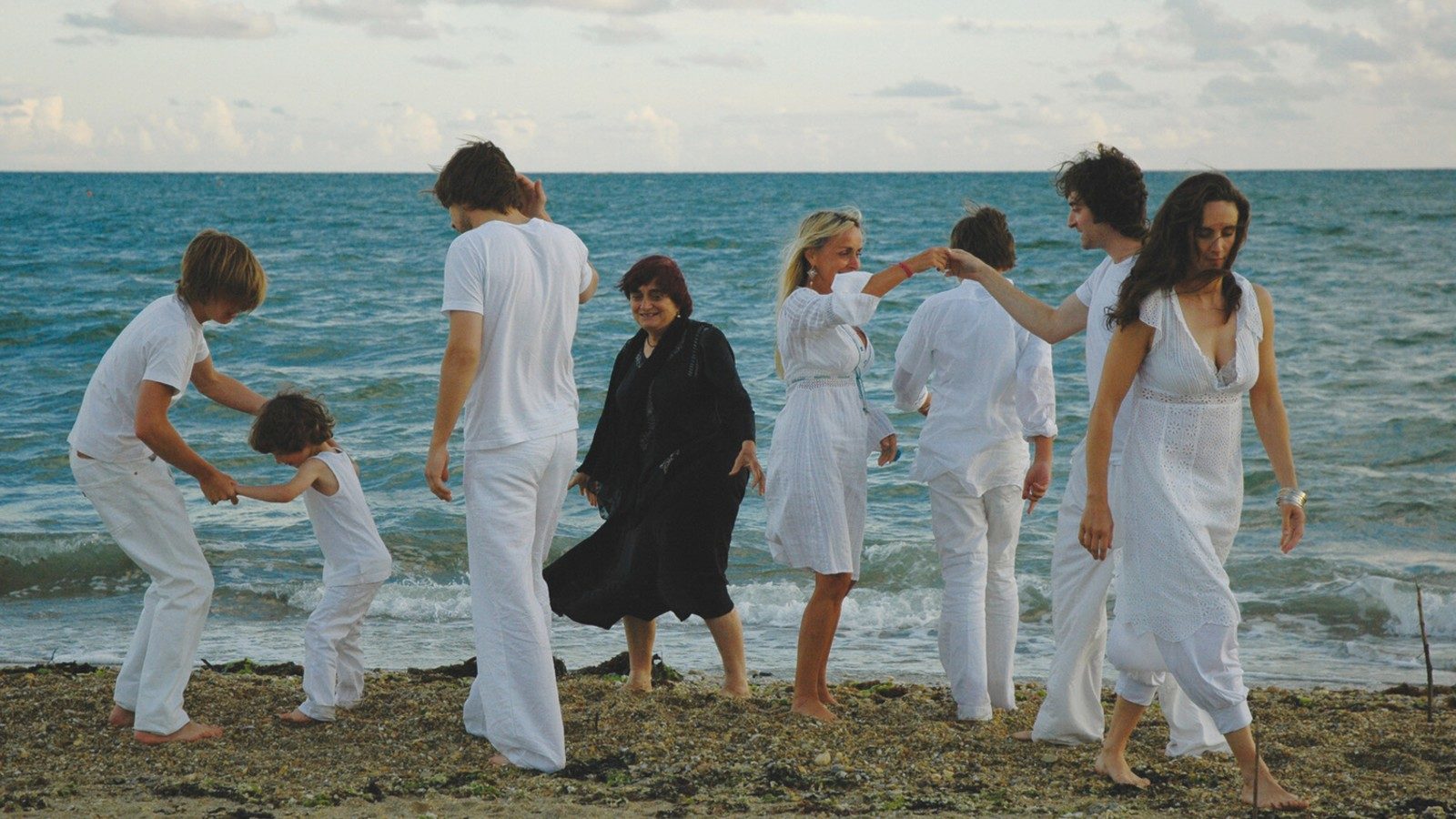
It’s a testament to Agnès Varda’s remarkable ability to glean so much raw beauty and truth from the world that this autobiographical documentary is such a rewarding watch, even for people unfamiliar with her. The Beaches finds the pioneering director in reflective mode as she looks back at her work and life, but her artistic impulses are by no means stagnant: she approaches the past with the same — if not more of the — generous candor and youthful spirit that colored her career.
It’s also a testament to Varda’s inimitable artistic touch that she turns a usually-bleak subject — mortality — into something this life-affirming. The Beaches was made when she was 81, aware of her own ticking clock and still nursing the decades-long loss of so many loved ones (chiefly, husband Jacques Demy). Just as her grief-stricken reflections don’t overwhelm the film with sadness, the whimsical impulses she indulges here — like constructing a beach on the street in front of her office — don’t blunt the sharpness of her candor. The overall effect is bittersweet and profoundly inspiring: as with the mirrors she places in front of the tide in the film’s first scene, she’s showing us it’s possible to face the inescapable with a twinkle in your eye.
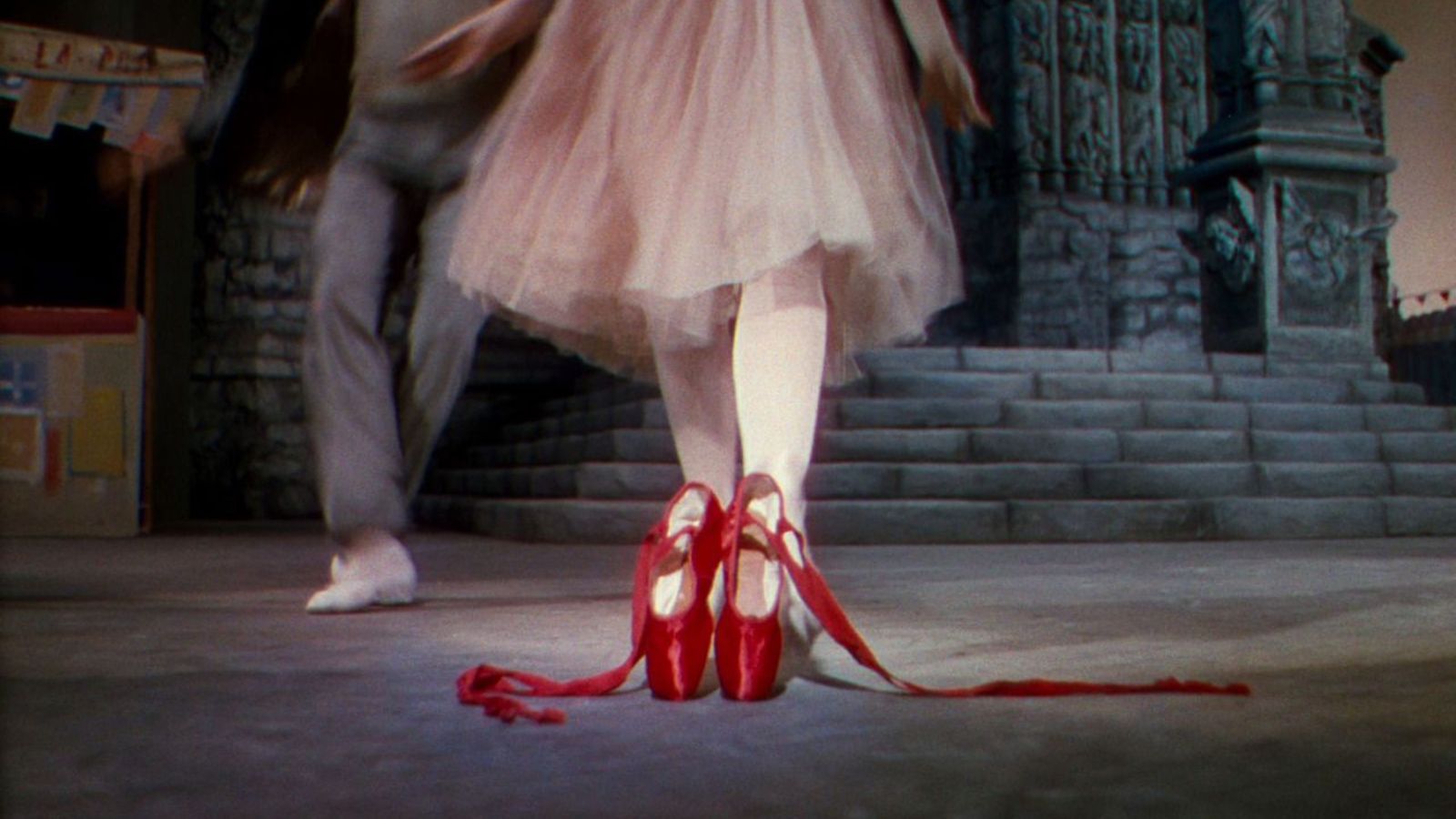
While today’s moviegoers would likely pick Black Swan as the ballet film of choice, there is one film classic that brings the title of the best ballet film in contention. That is The Red Shoes. It first divided critics of film and ballet alike, but as time went by, the spectacular drama from Michael Powell and Emeric Pressburger deservedly garnered acclaim for the brilliant, novel ways of bridging the gap between art forms. Of course, the most obvious of these is the lush, stunning 17-minute dance sequence that first incorporated dynamic camera movement to the choreography, and captured Han Christian Andersen’s story to its essentials. But aside from just depicting the dance, The Archers reconfigured every other single aspect of film to bend toward the movement without breaking the beauty of every shot– the scoring, the casting, the production design, and the ballet-within-a-film plotline. It’s because of this that The Red Shoes garnered a legacy of being one of the best ballet films, one of the best British films, and even one of the greatest films ever made.
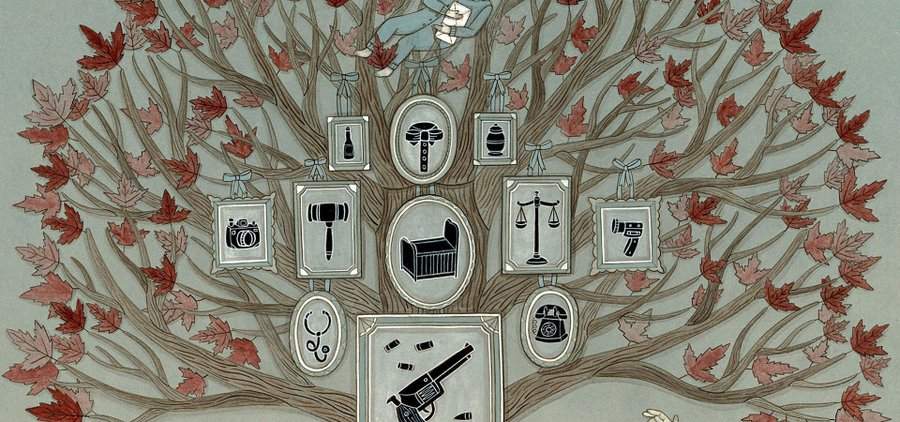
Get ready to cry your eyes out, scream in anger, but also rejoice at the powerful love that exists in our world. We will not spoiler the premise of this documentary and urge you not to do so yourself. Instead, we recommend watching it and prepare to be changed forever. Call it true crime if you will, but this documentary is much more. Hailed as one of the most important documentaries of the 2000s, it is a testament to friendship and love, a real-life thriller, and a political denouncement all in one.
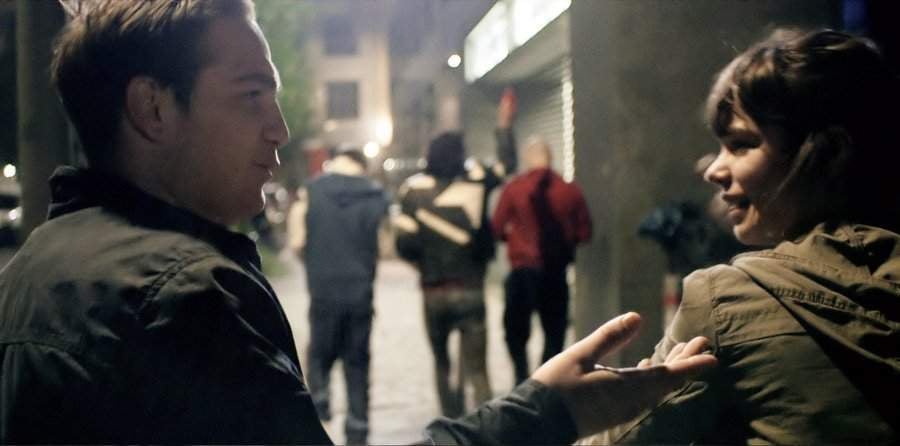
Much like Berlin’s infamous nightlife, which serves as the backdrop to the plot, this daring German real-time drama will eat you up and spit you out. After leaving a nightclub at 4am, Victoria, a runaway Spanish girl, befriends a gang of four raucous young men, climbing rooftops and drinking beers among the city’s moon-lit streets. The gang’s light-hearted banter is impressively improvised from a skeleton script, offset by Niels Frahm’s ominous original score.
But what starts out as late-night high jinks swerves into darker territory. Driven by her infatuation with the pack leader Sonne, played by Frederick Lau, Victoria ends up being recruited as a get-away driver for an ill-prepared bank robbery and loses herself in a sinister spiral of events. What sounds like a standard-issue crime drama is, in fact, a staggering cinematic experiment.
Filmed in one take, on location, and in real time, the movie’s production is indeed a gamble, but director Sebastian Schipper more than pulls it off. The claustrophobic camerawork of cinematographer Sturla Brandth Grøvlen leaves the viewer feeling like a hapless accomplice to Victoria’s plight. With Laia Costa giving an awe-striking lead performance, the high wire acting of the entire main cast only adds to this effect. Victoria is a stellar directorial debut, heart-stopping drama, and a truly immersive experience.
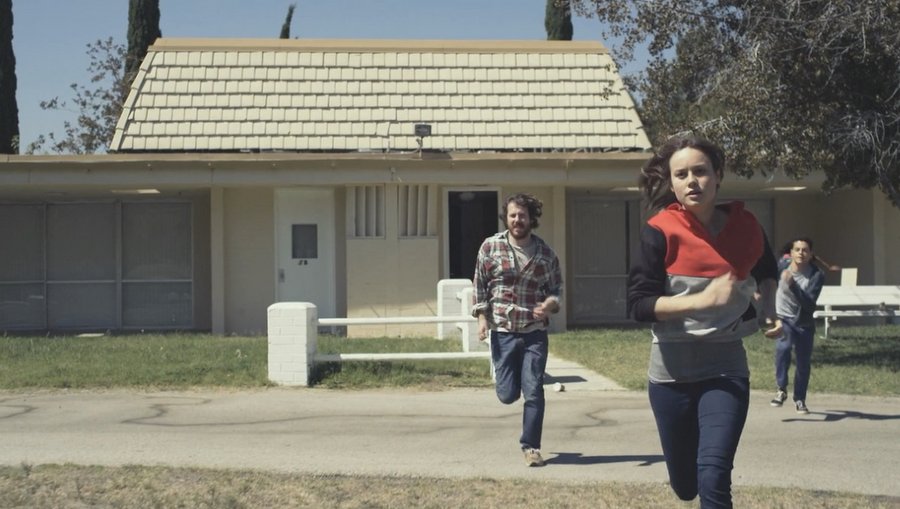
Understated in budget but lavished with praise, this semi-autobiographical drama by Daniel Destin Cretton flings its audience into the chaotic lives and personal crises of at-risk youths and the passionate social workers that aid them. In his first feature film, the young director draws the viewers into the storm of events and the emotional ups-and-downs of social work in America, going from uplifting to depressing and back – and every emotion in-between.
Set in the real-life and eponymous group home Short Term 12, devoted but troubled foster-care worker Grace is played by Brie Larson, whose shining performance in her first leading role was lauded by critics. Fans will also recognize the supporting actors Lakeith Stanfield and Rami Malek, who broke out in this movie. Short Term 12 is now considered one of the most important movies of 2013 – some say of the decade – owing to its immaculate writing, intimate camerawork, and gripping performances.

